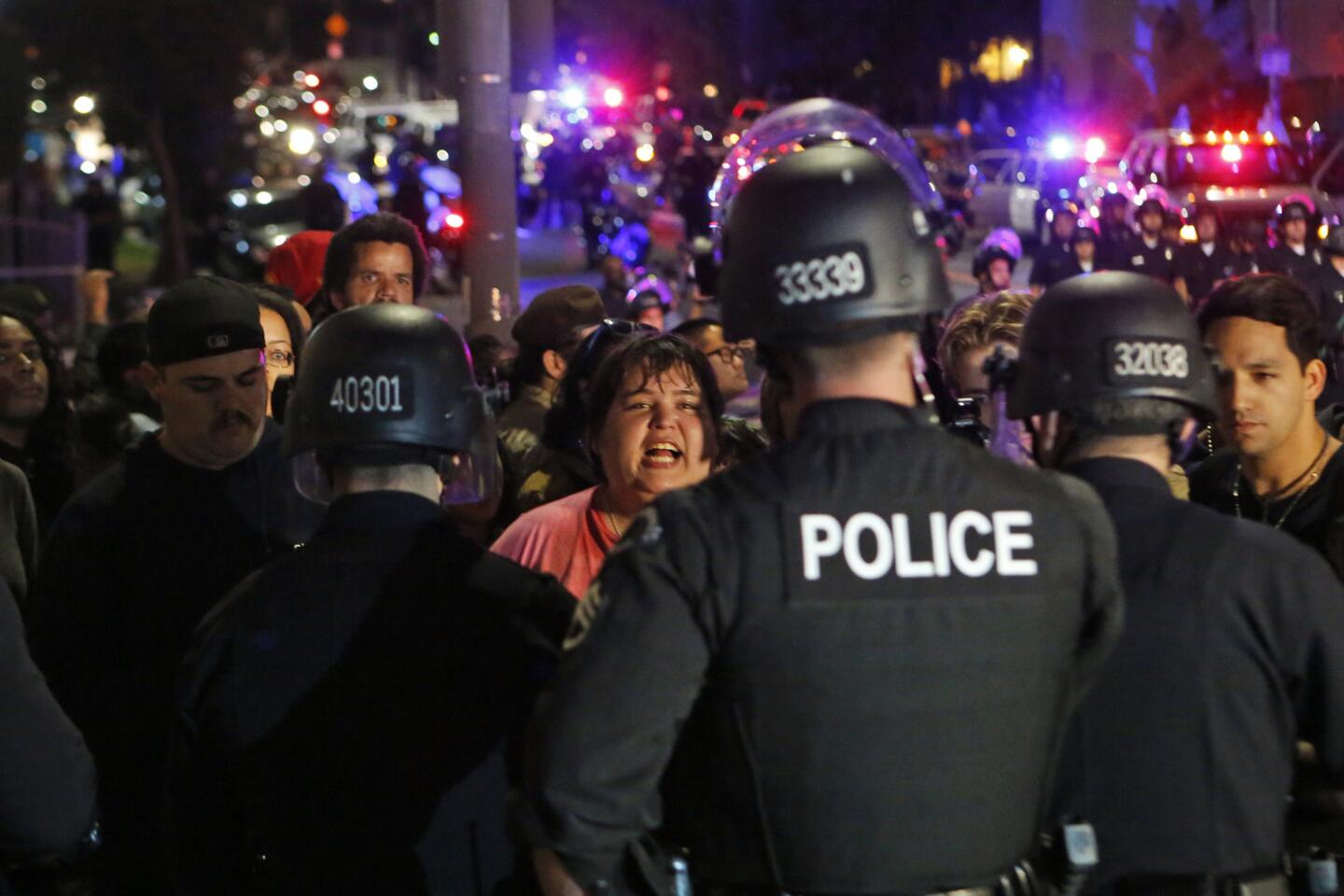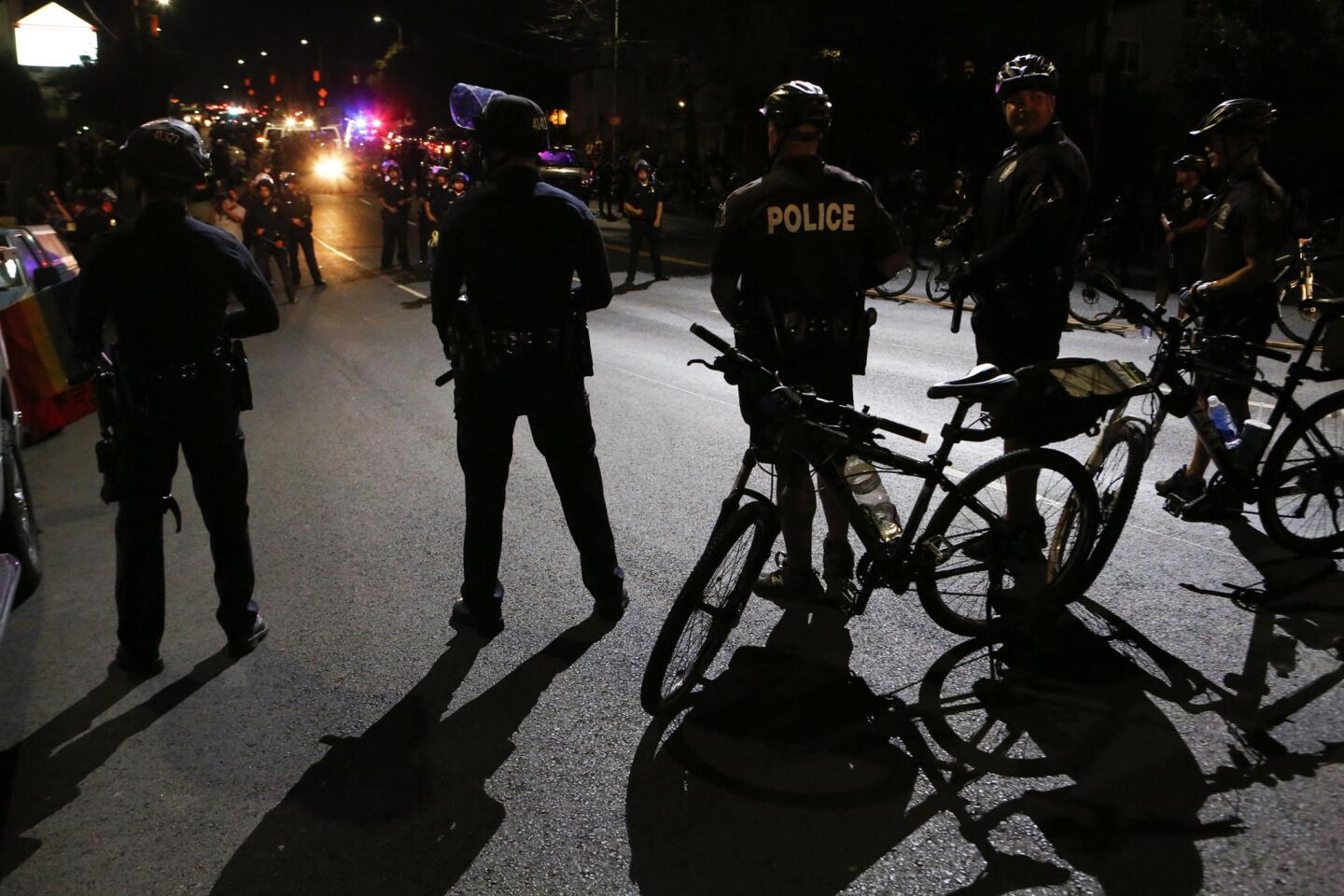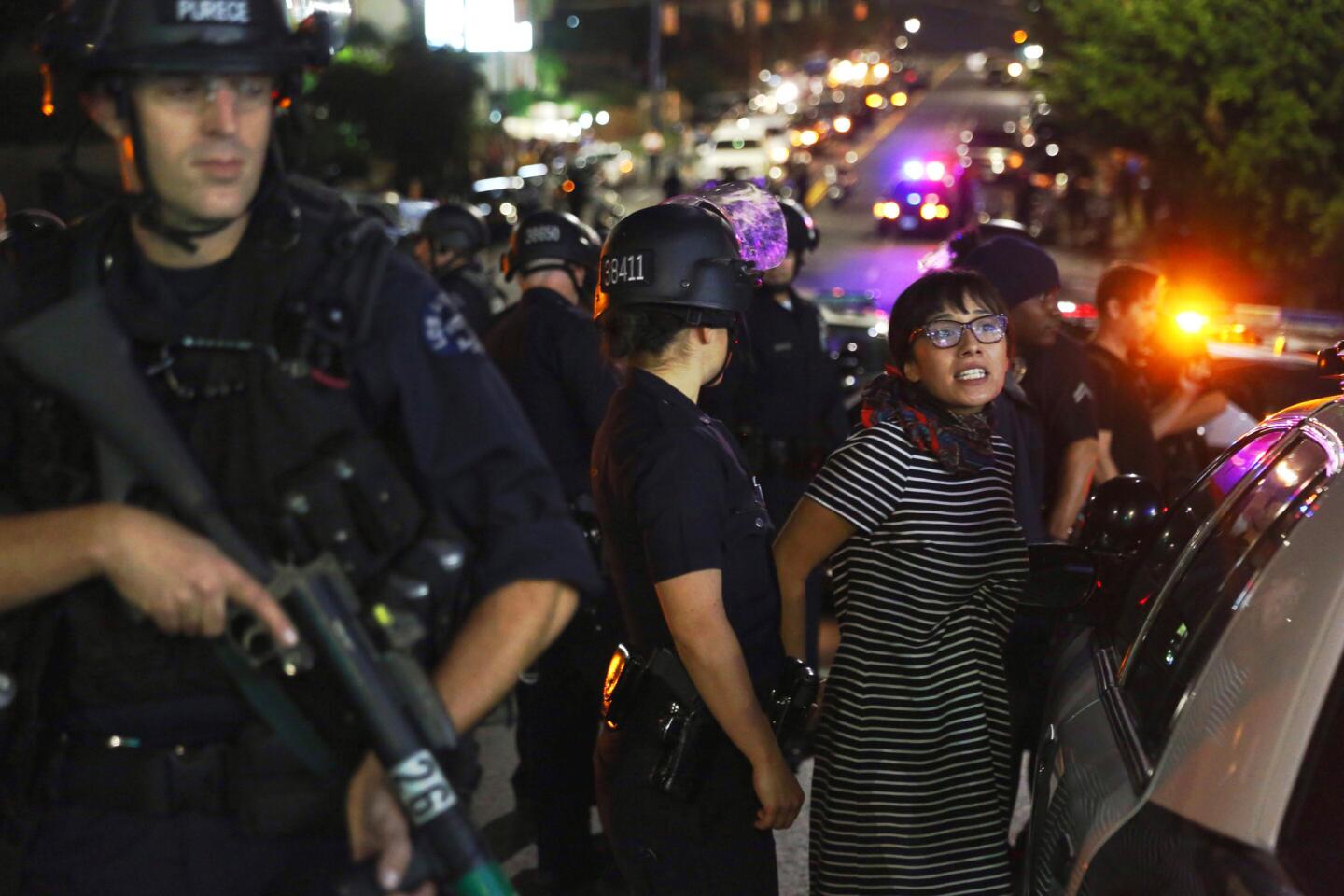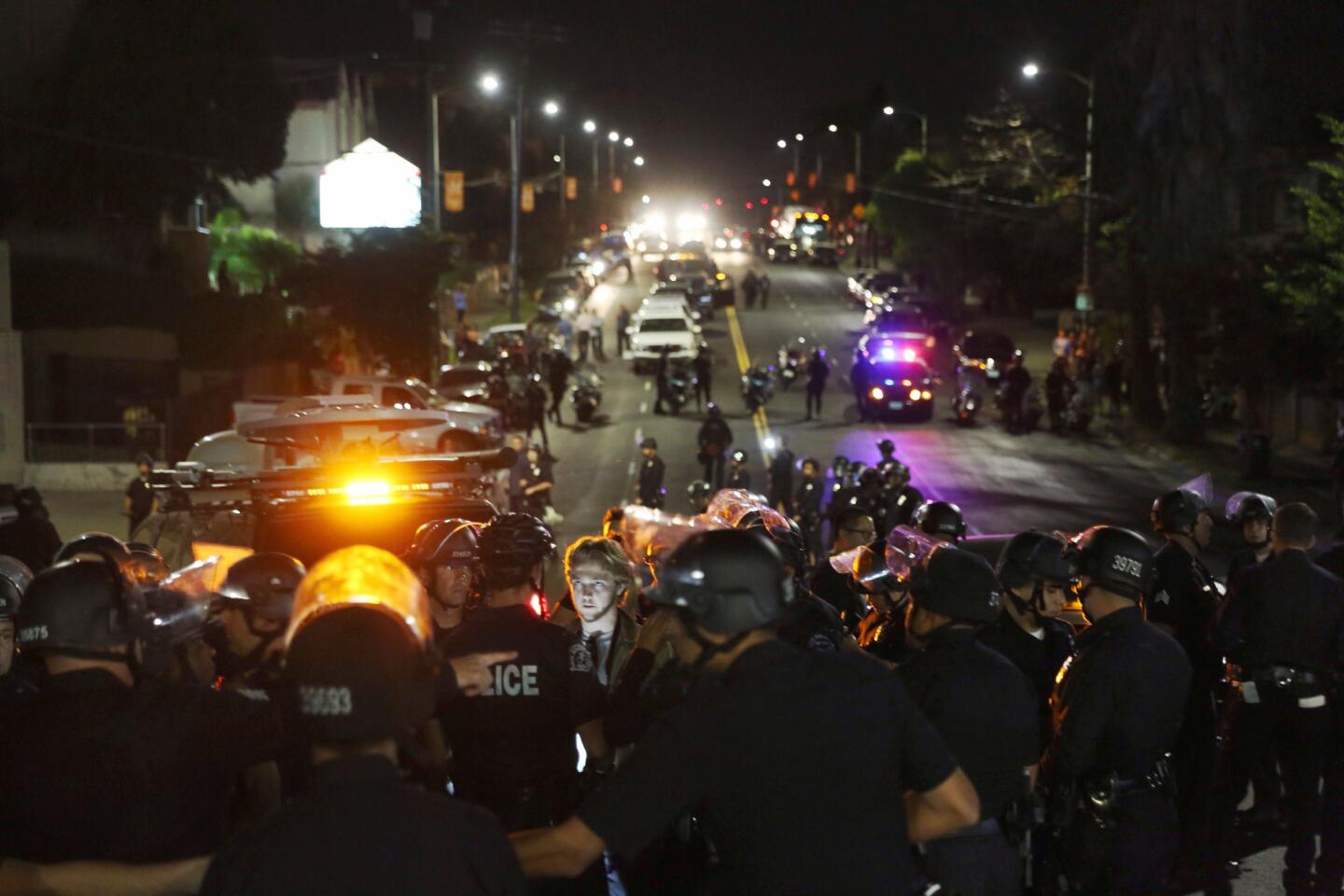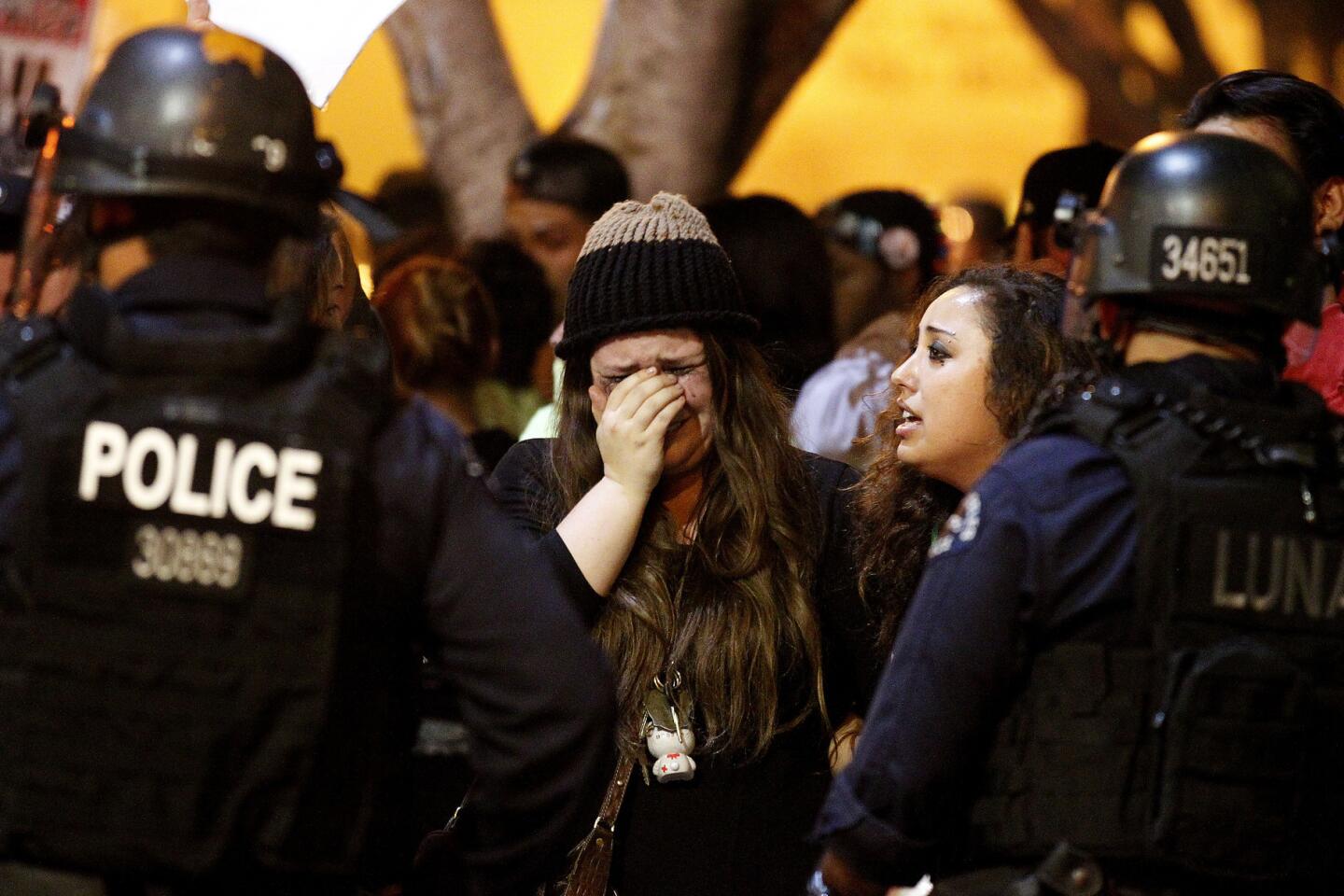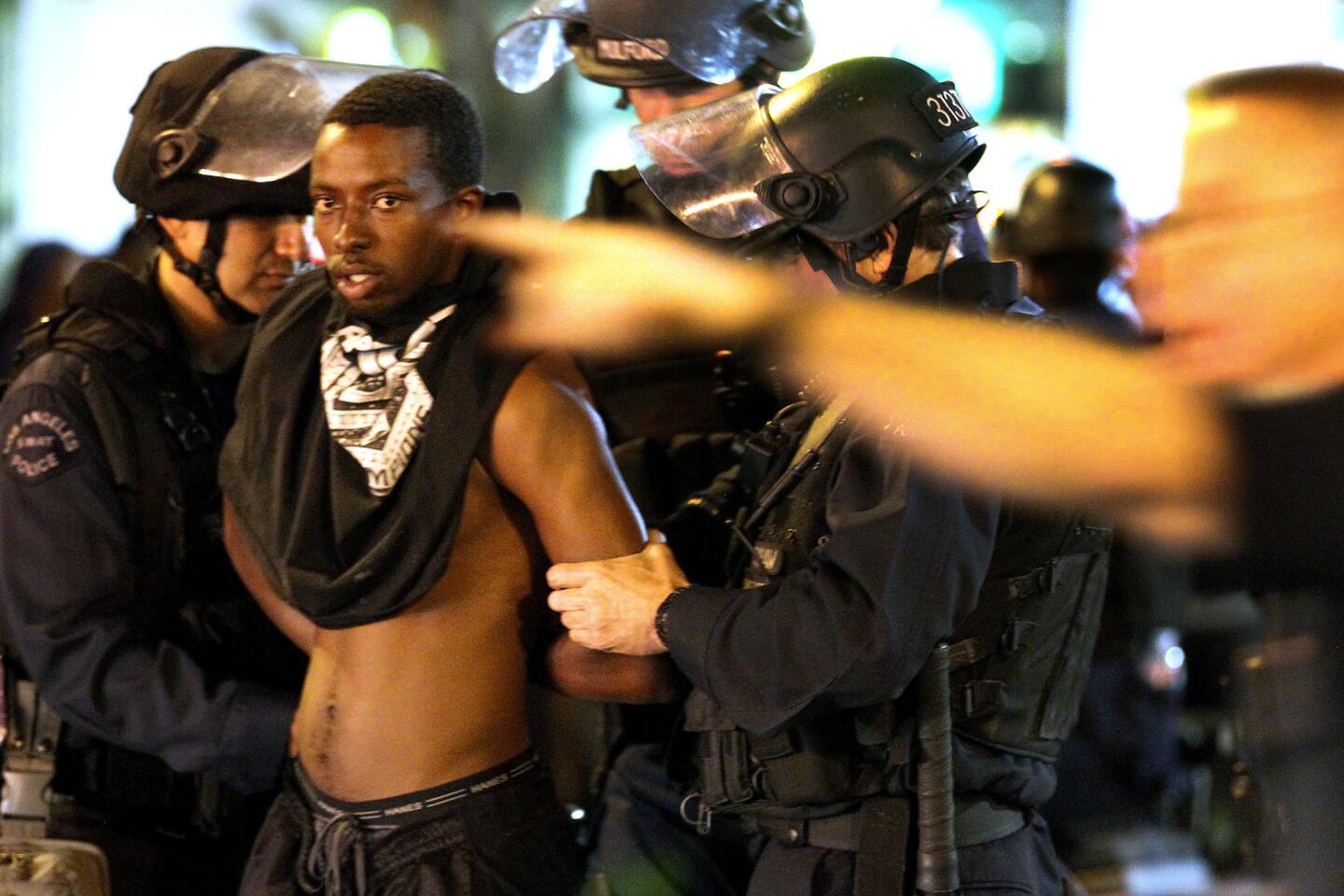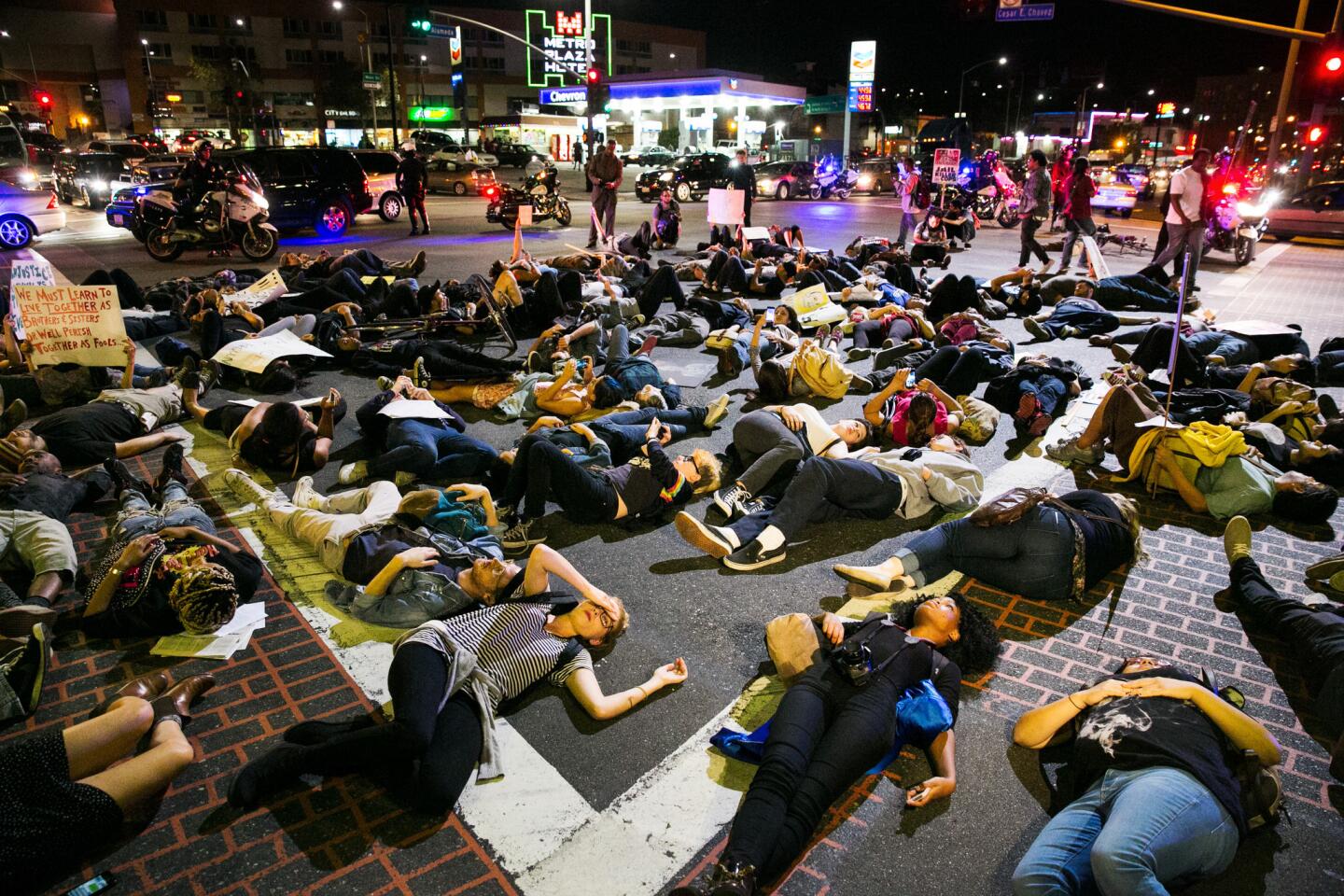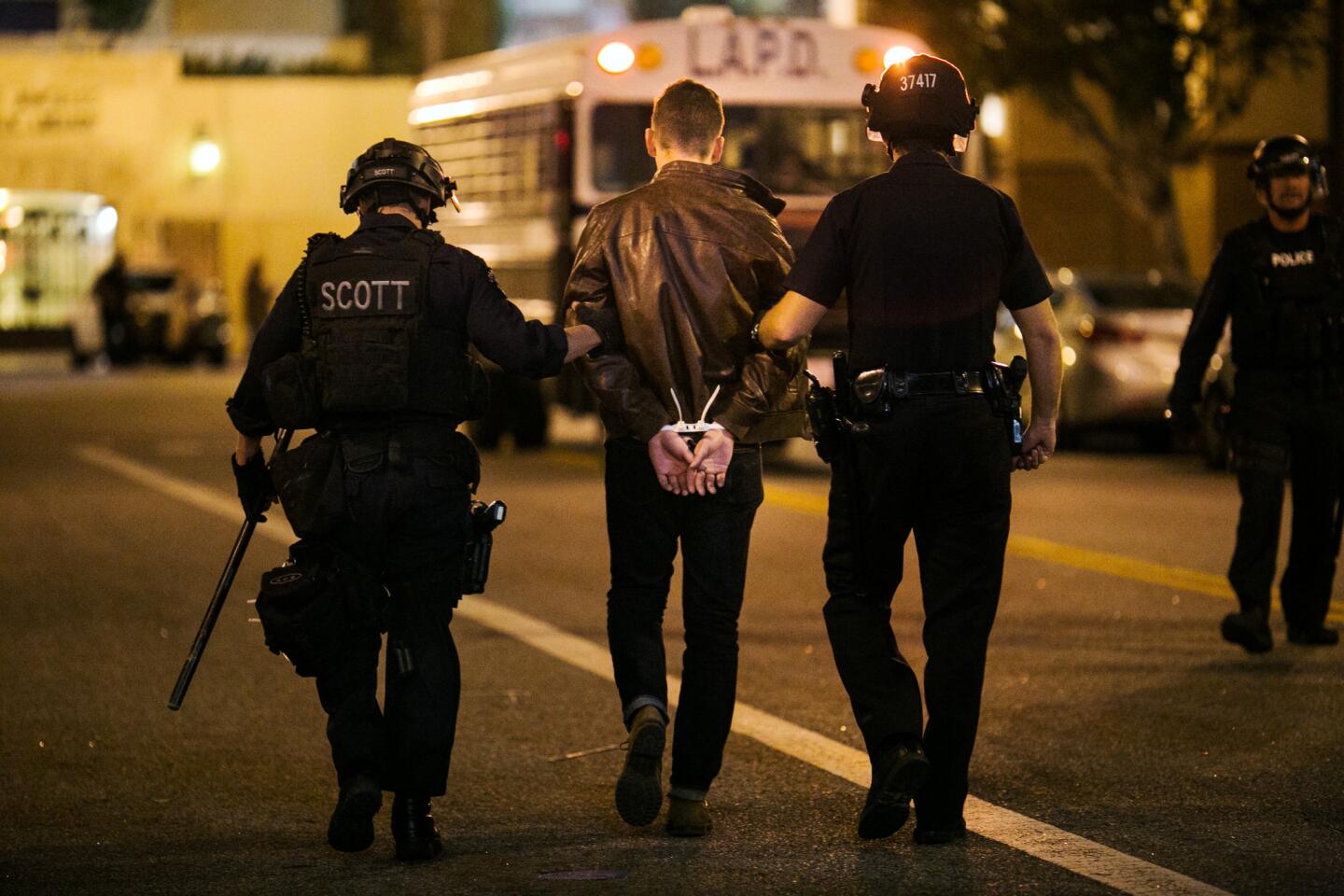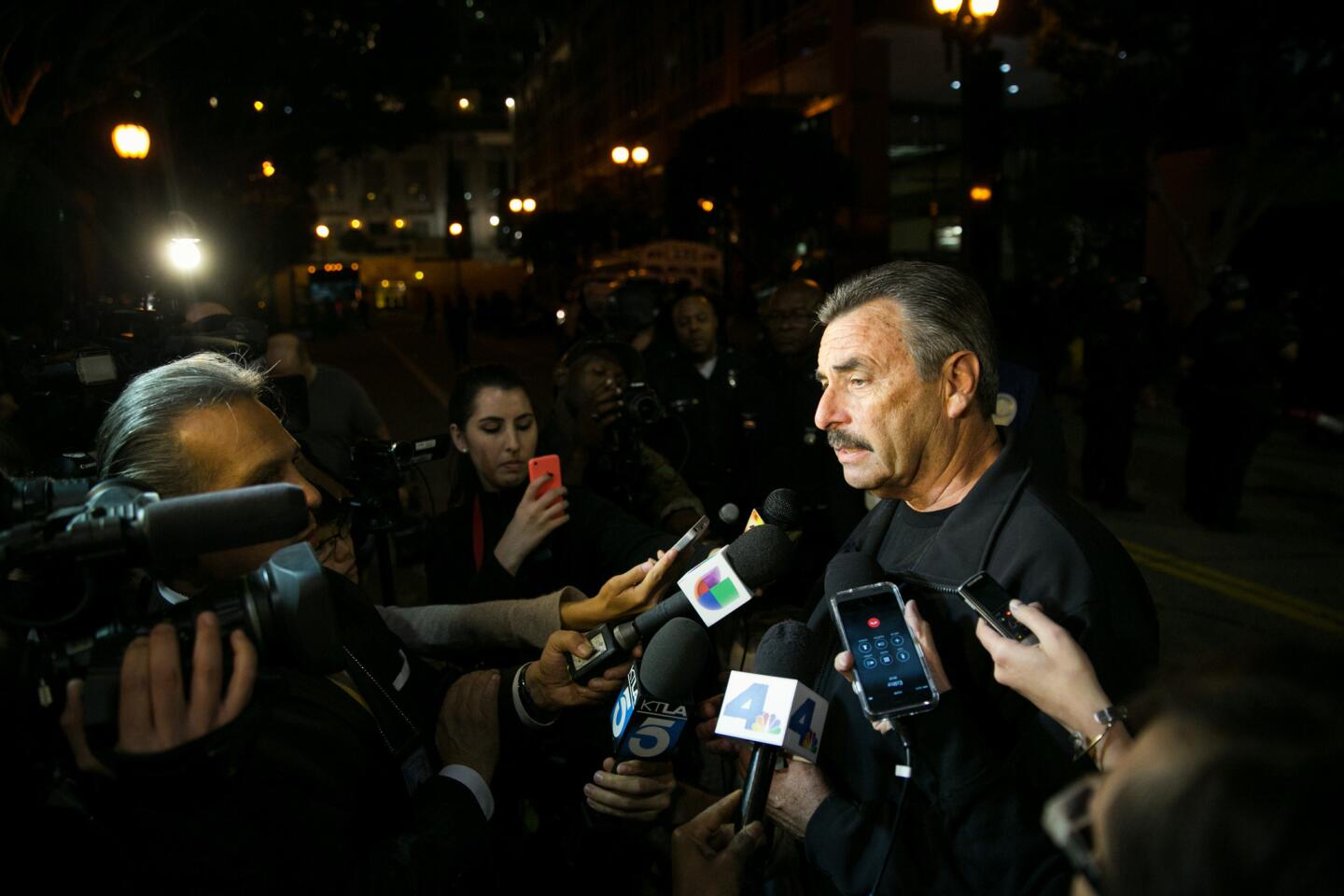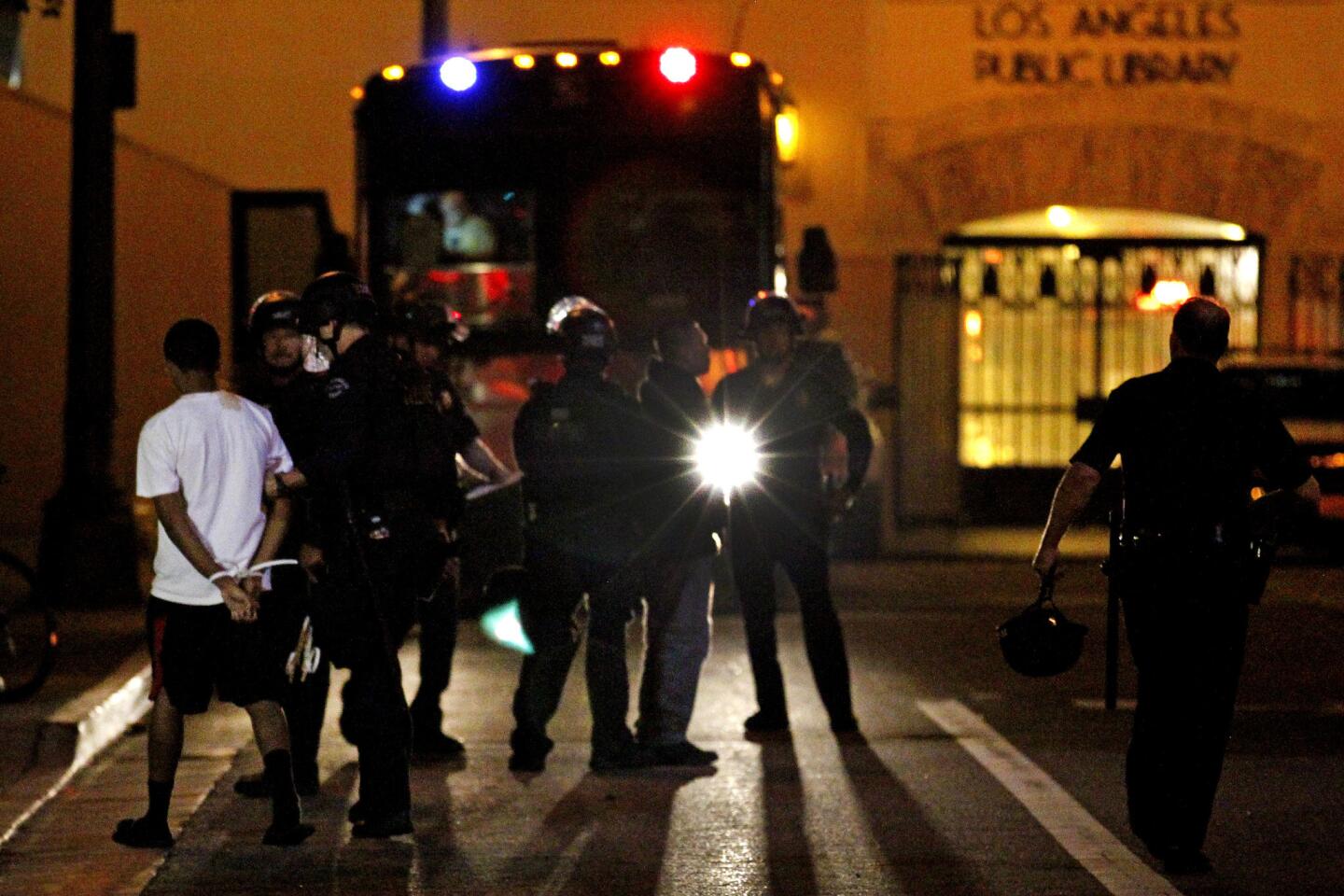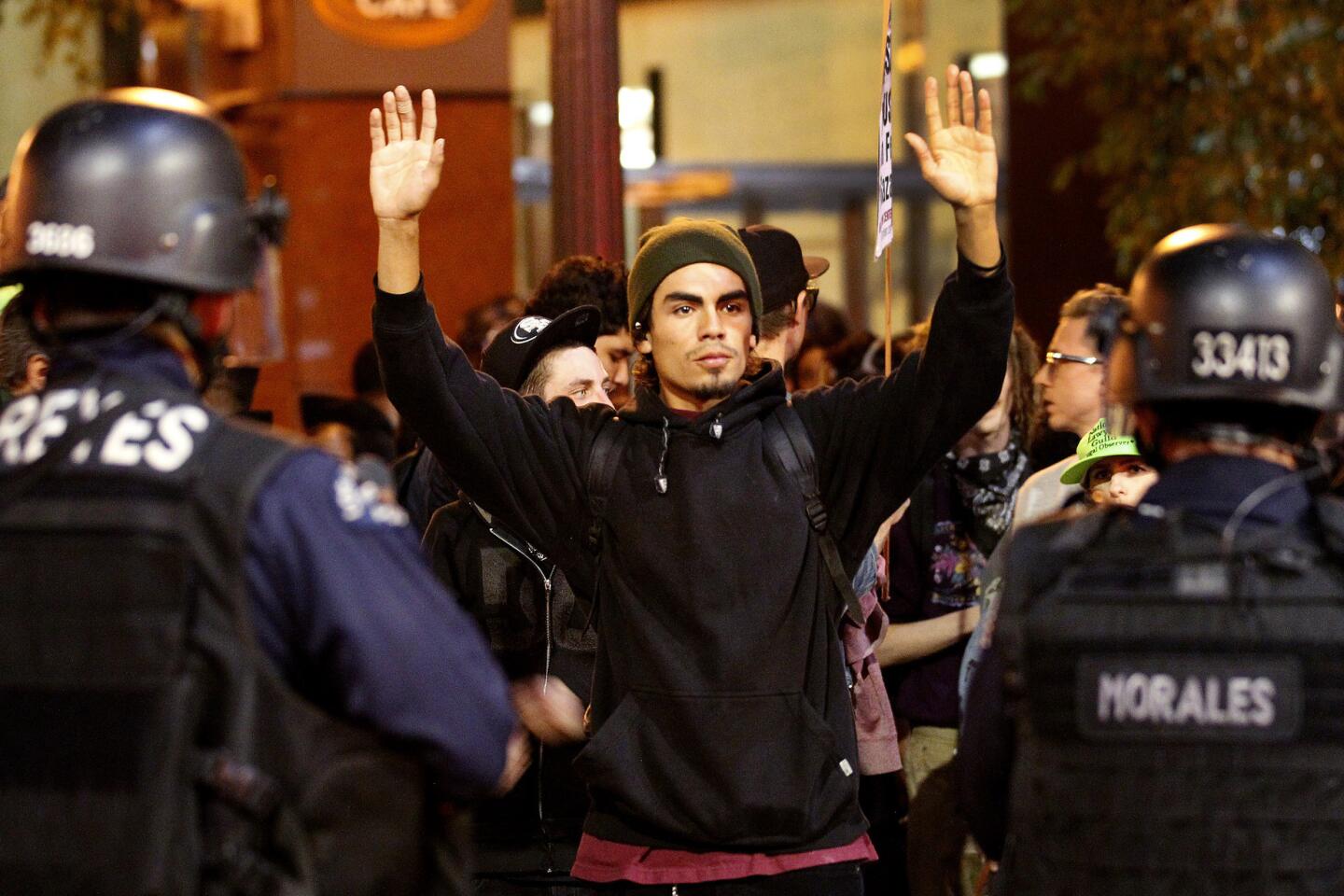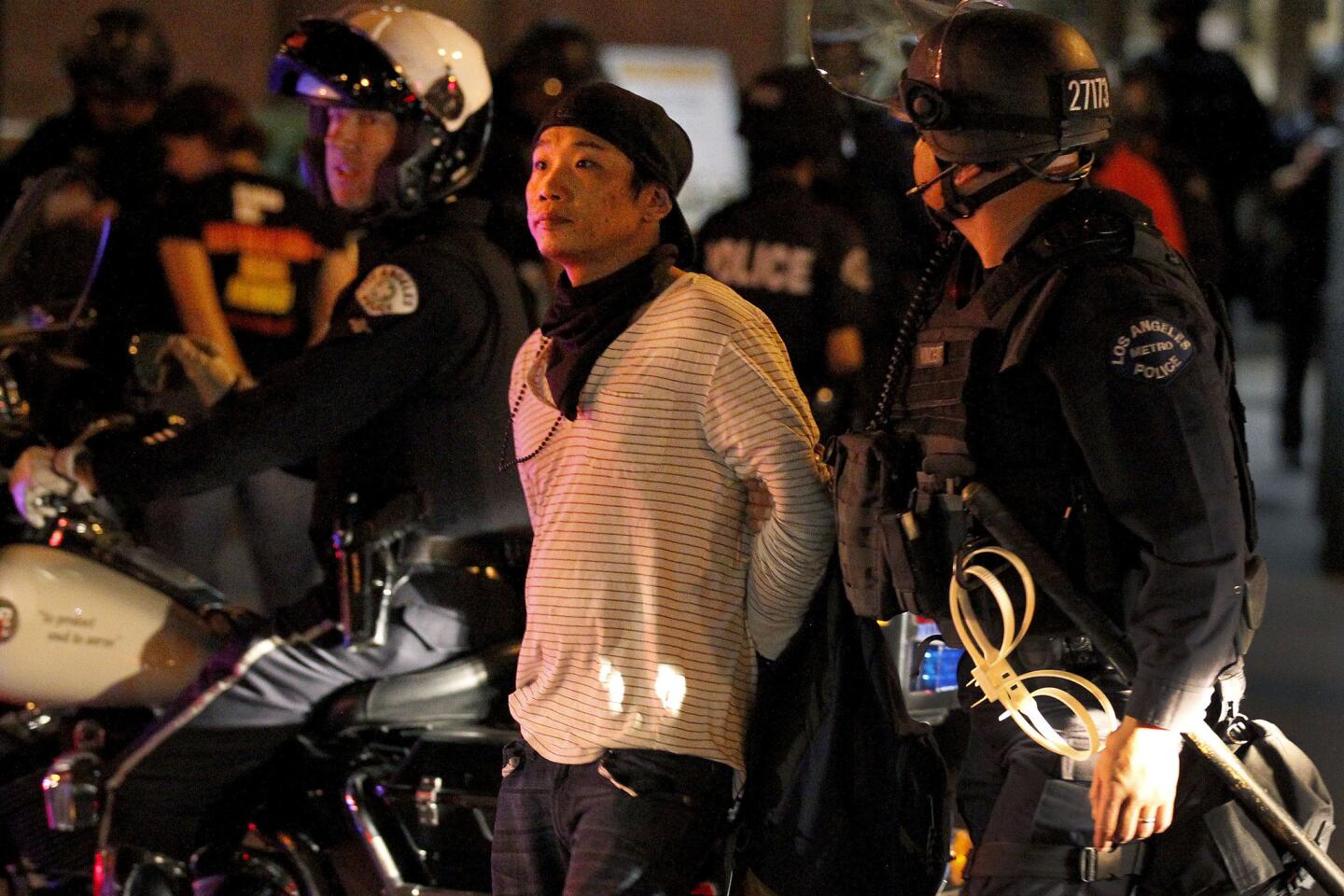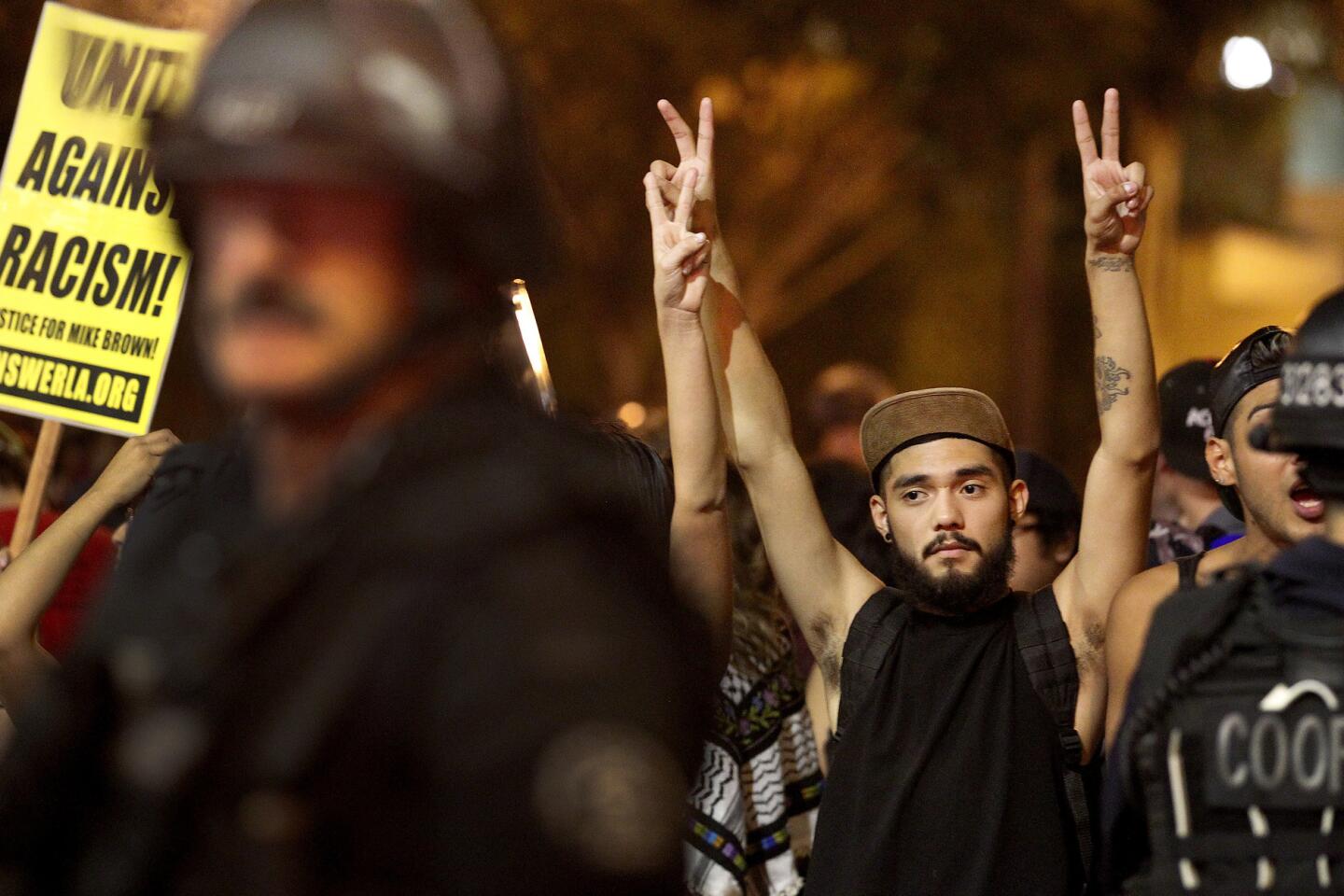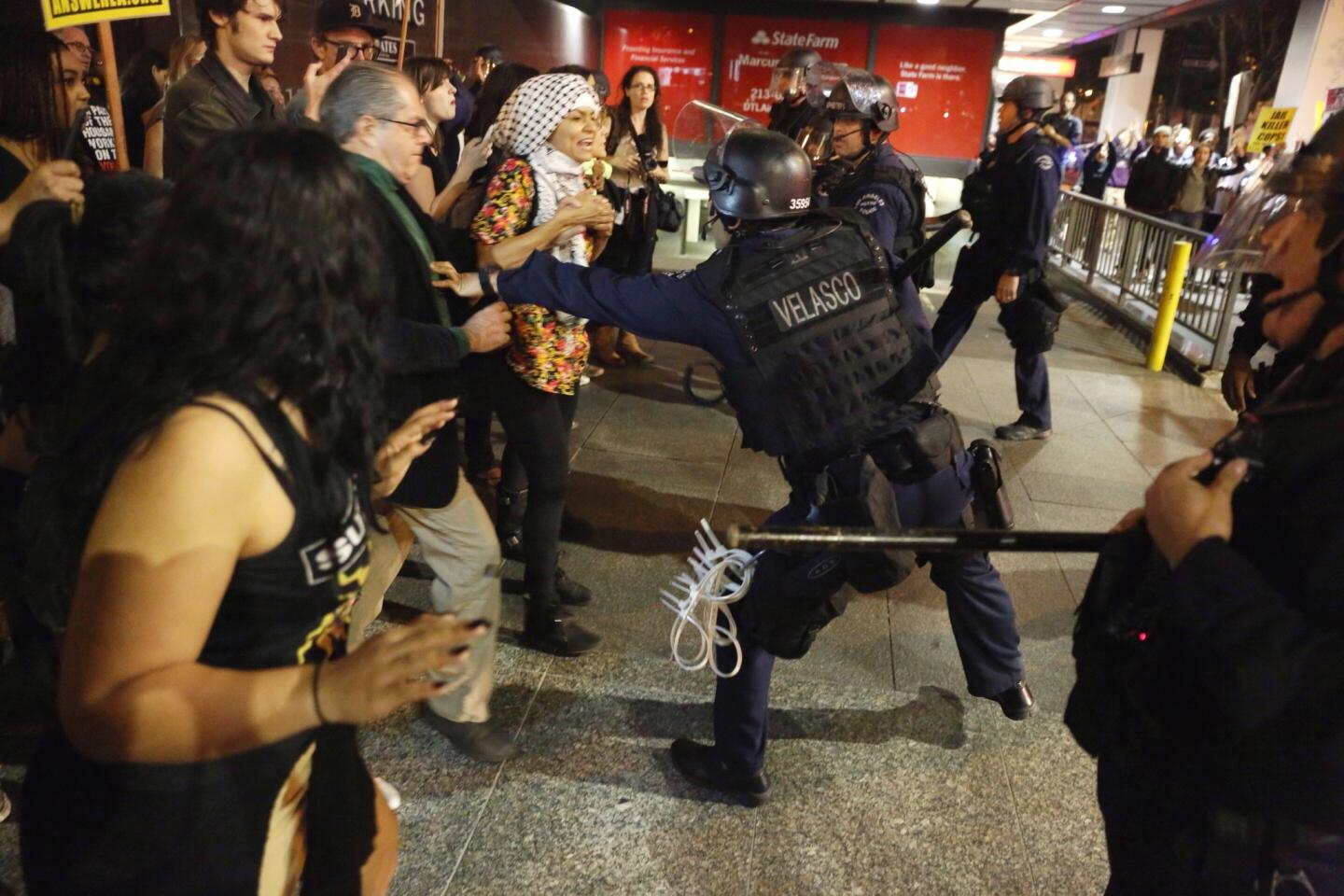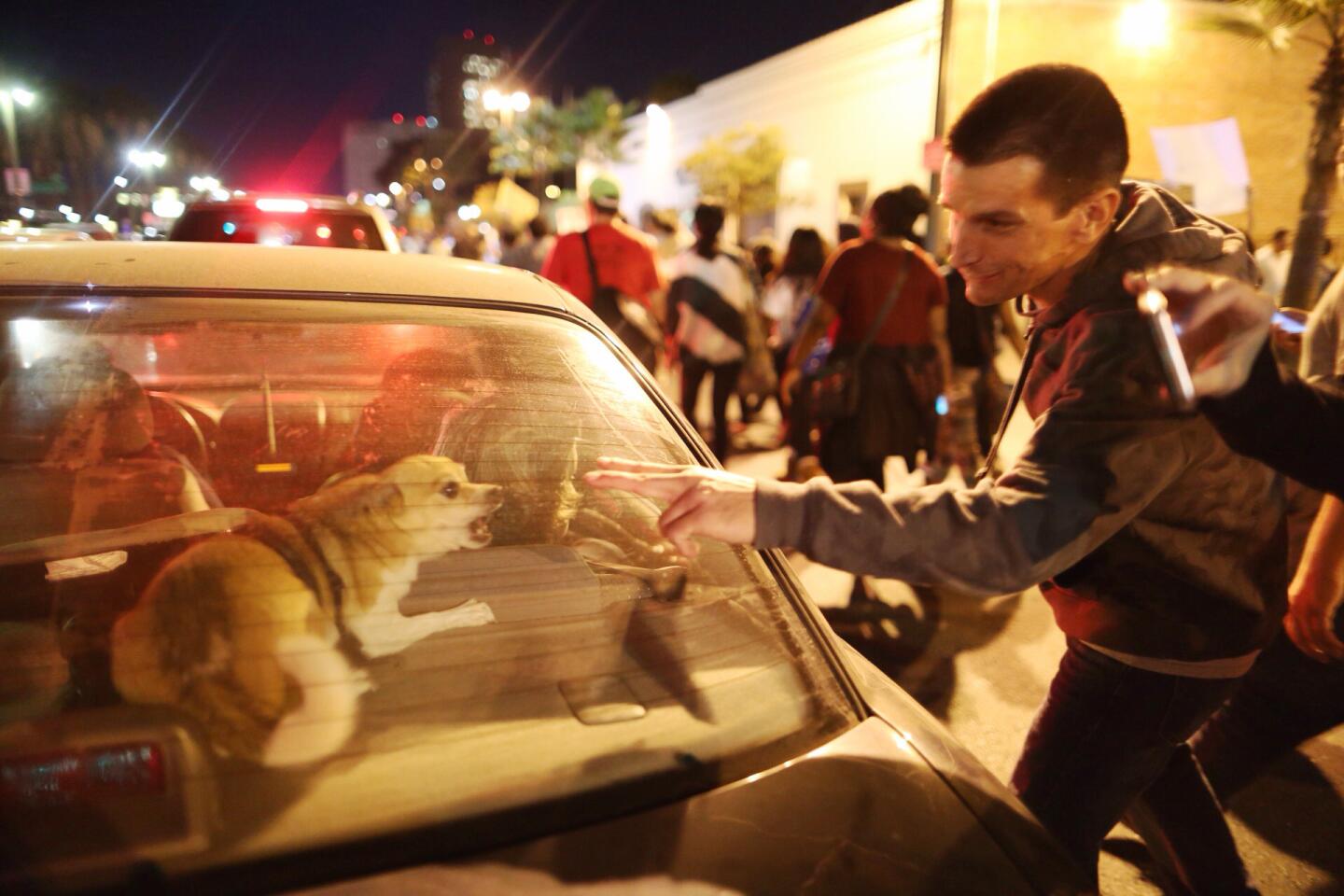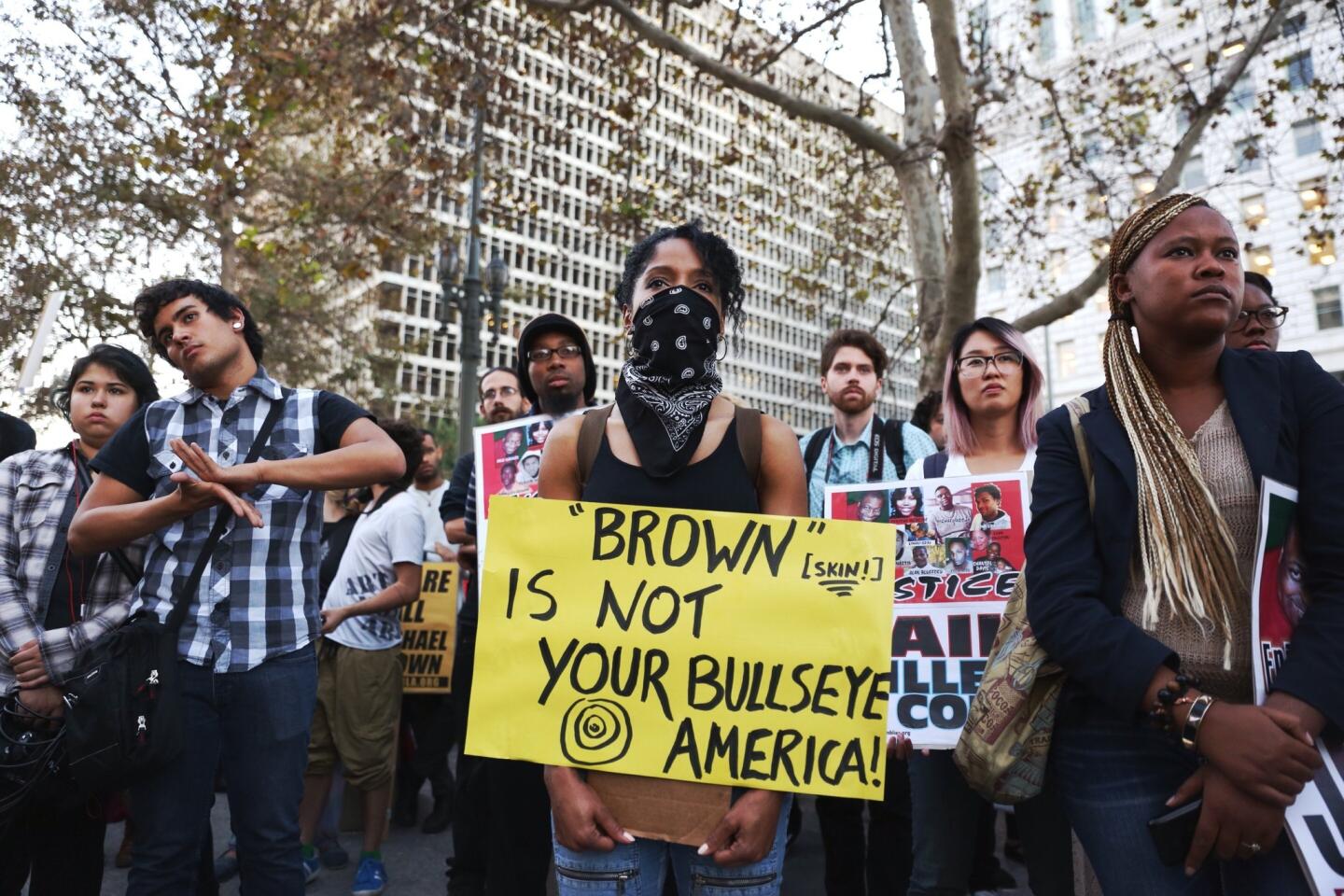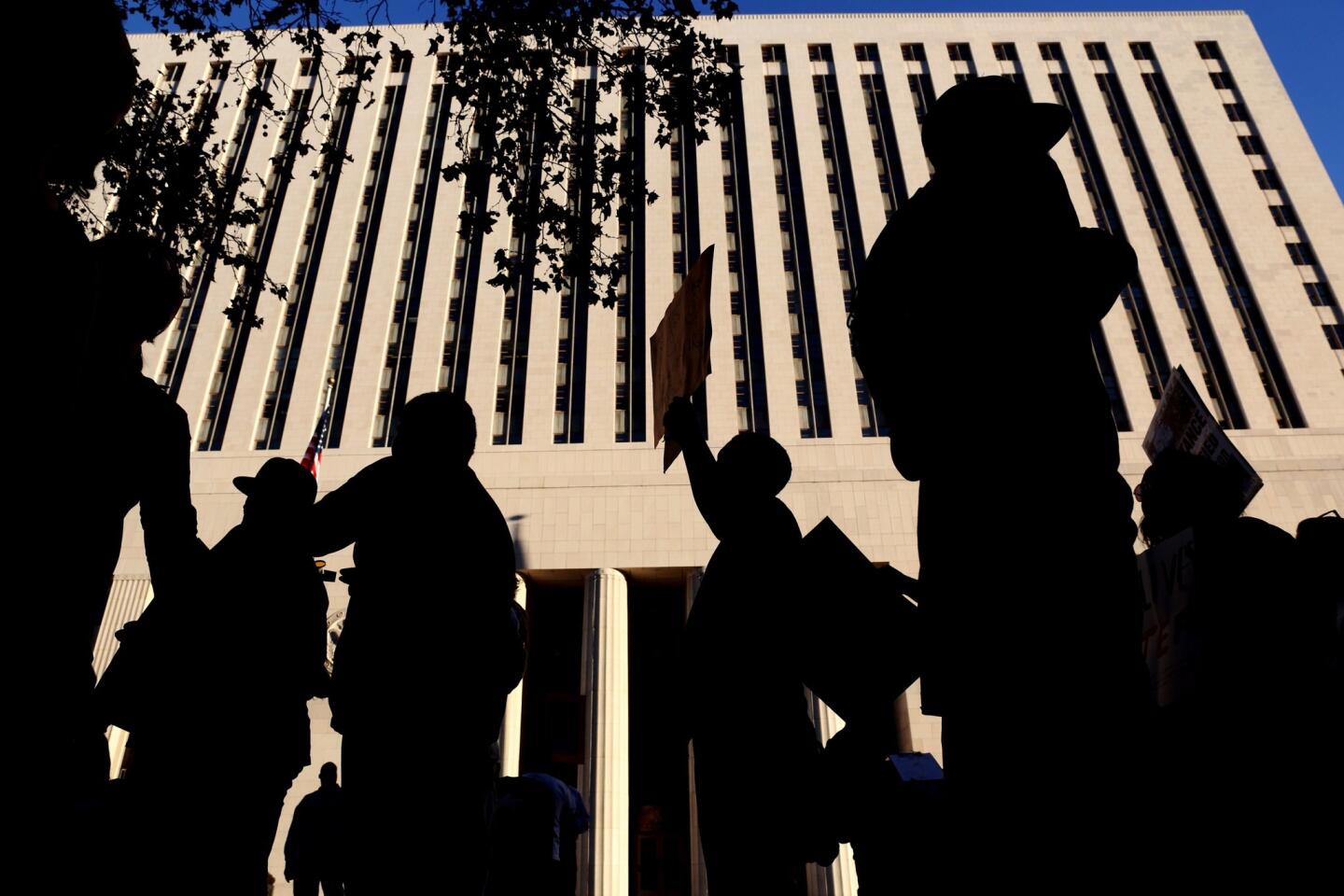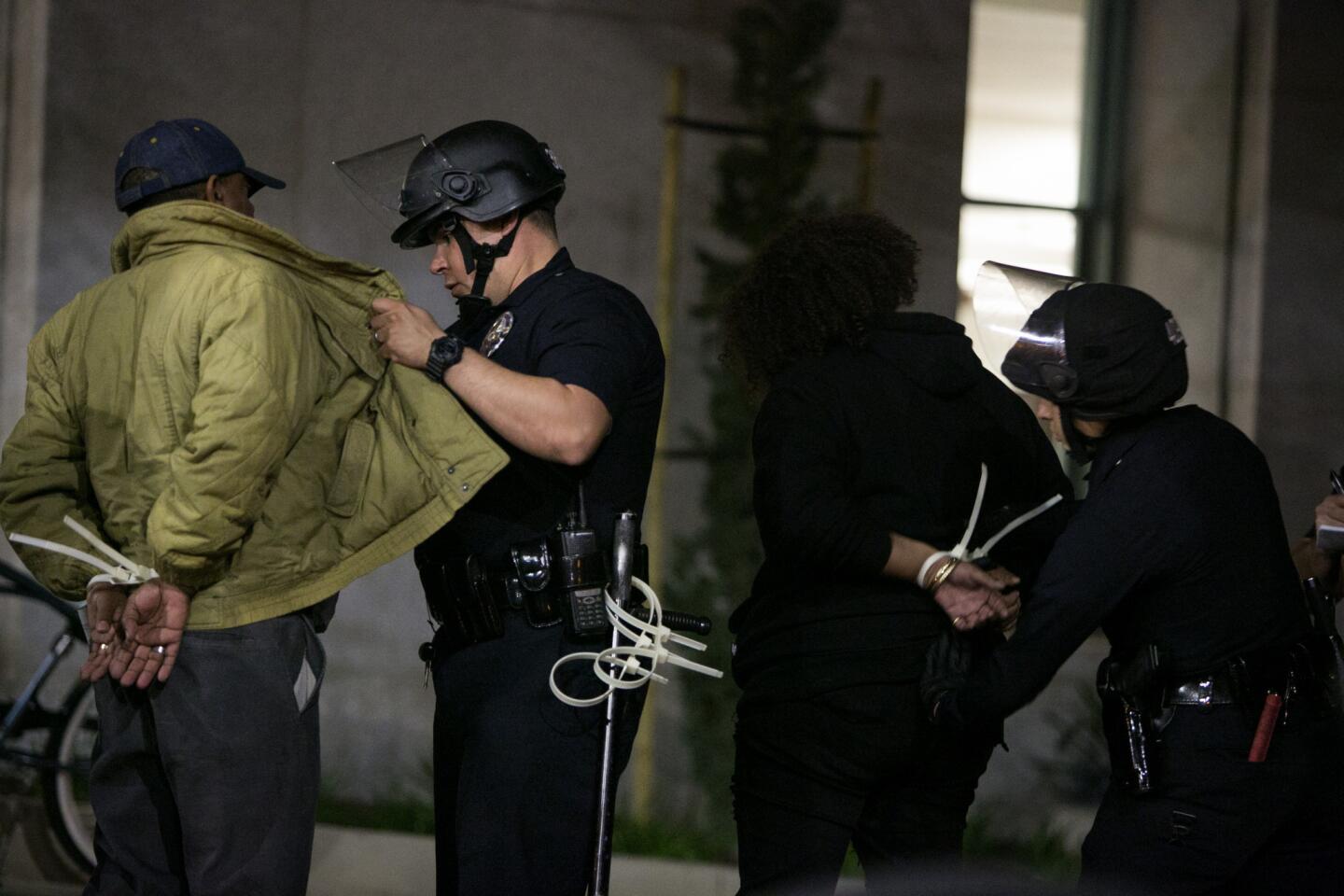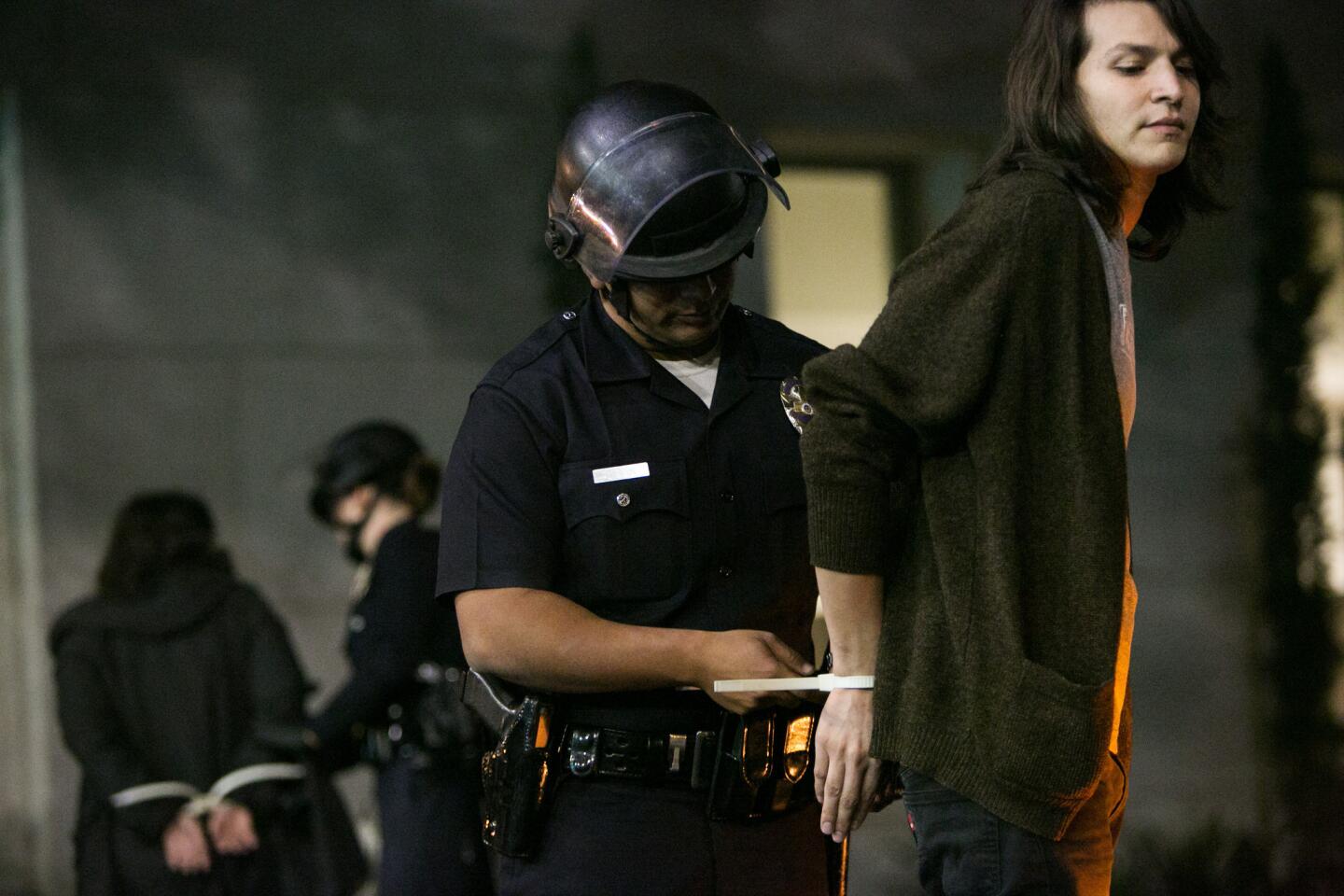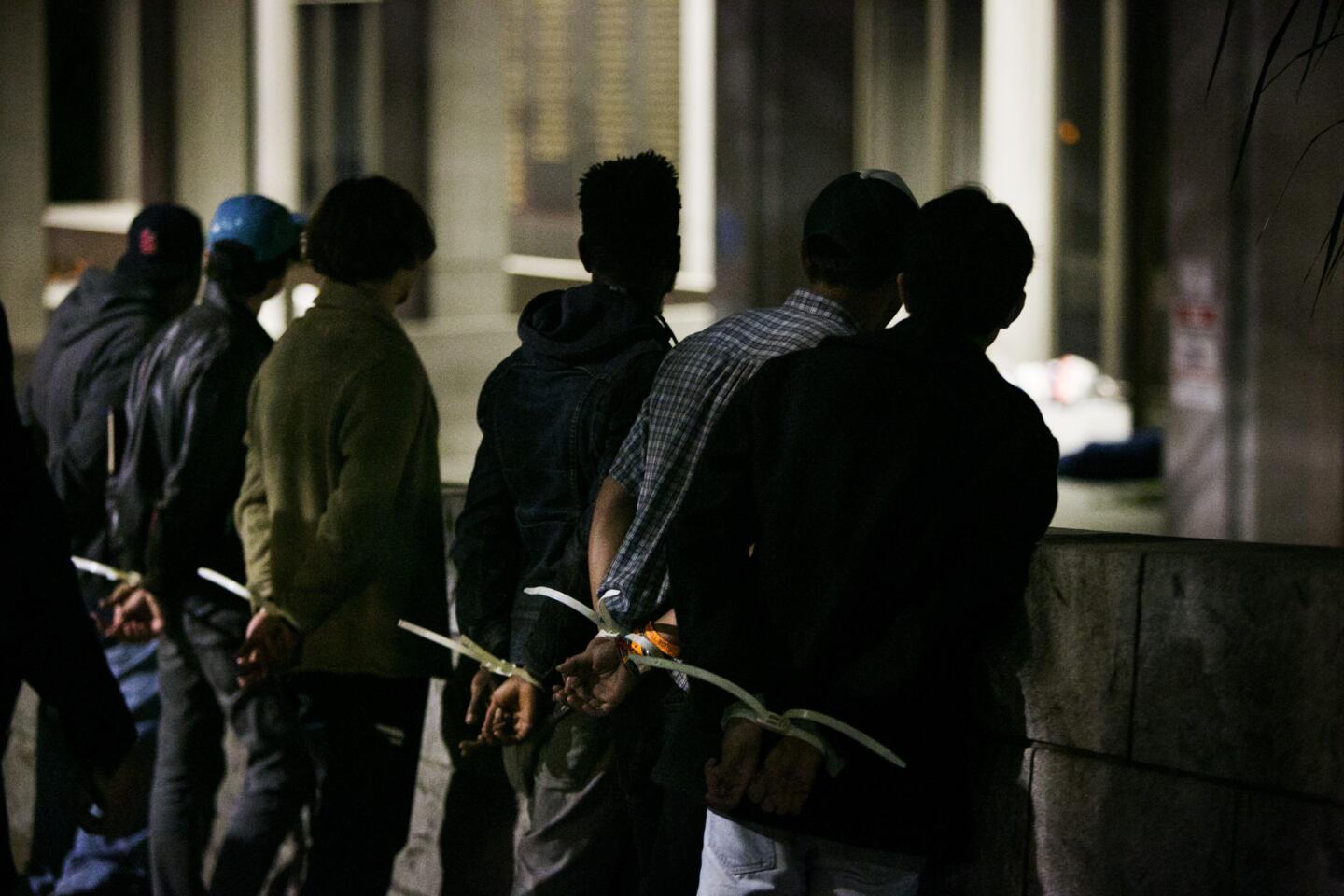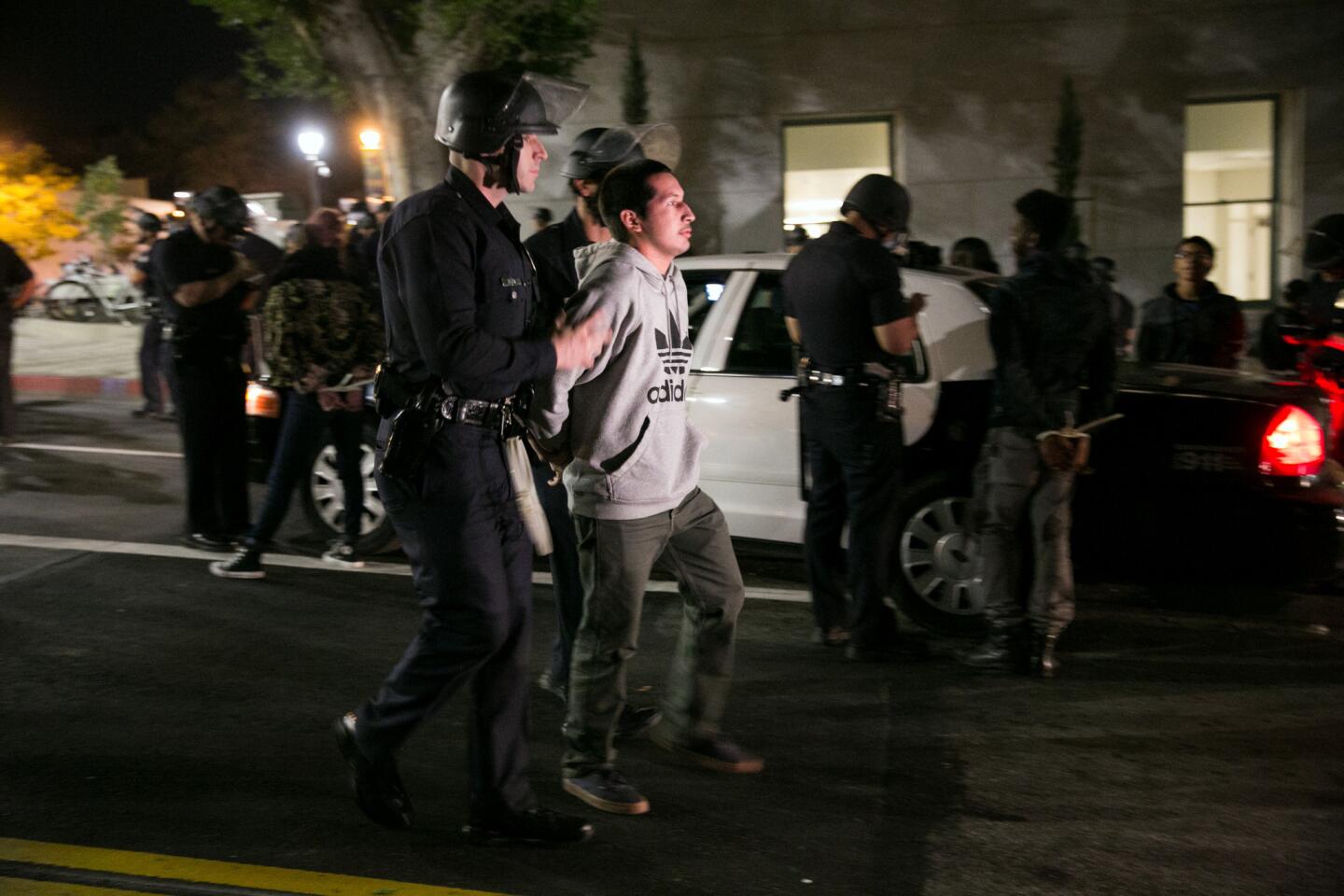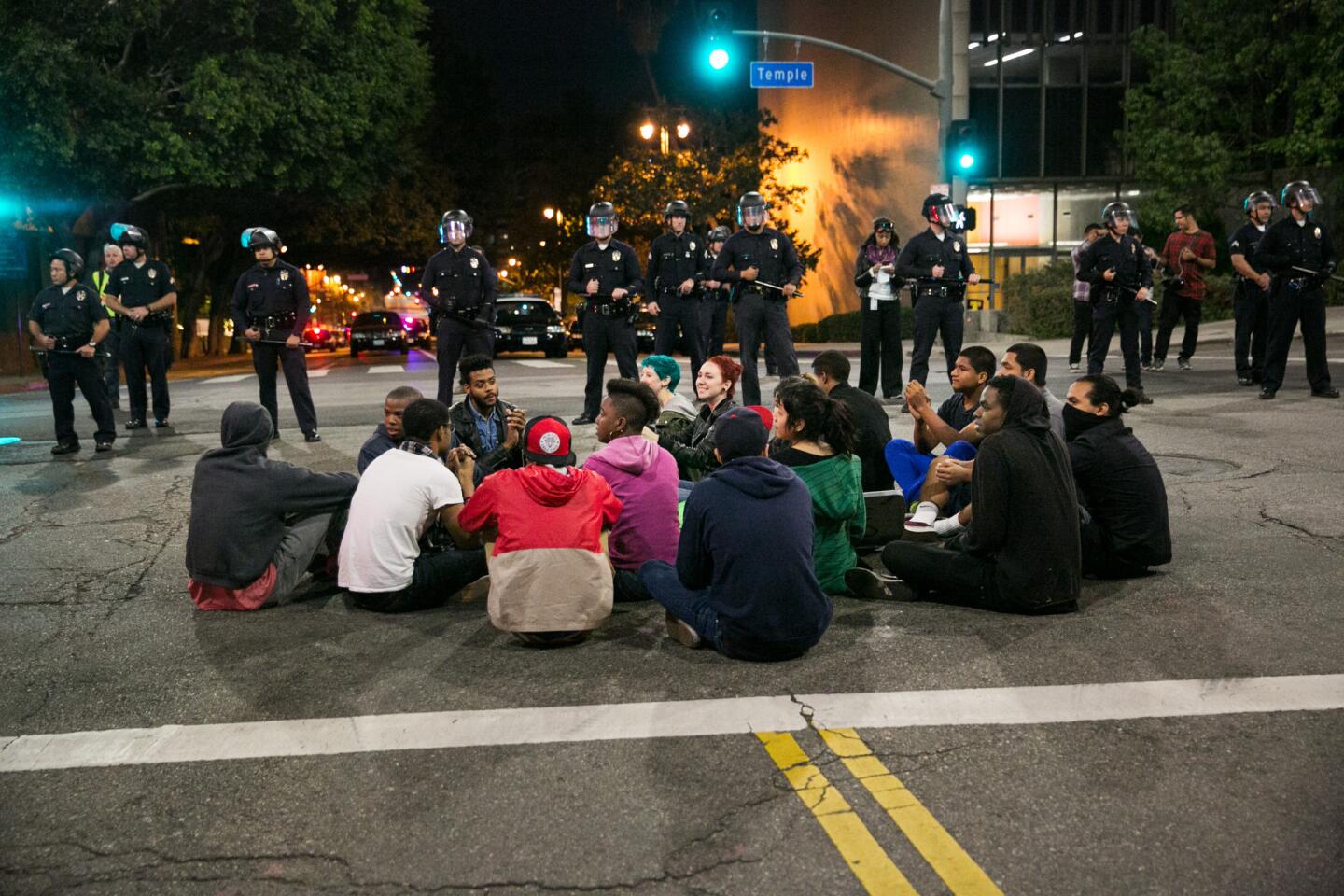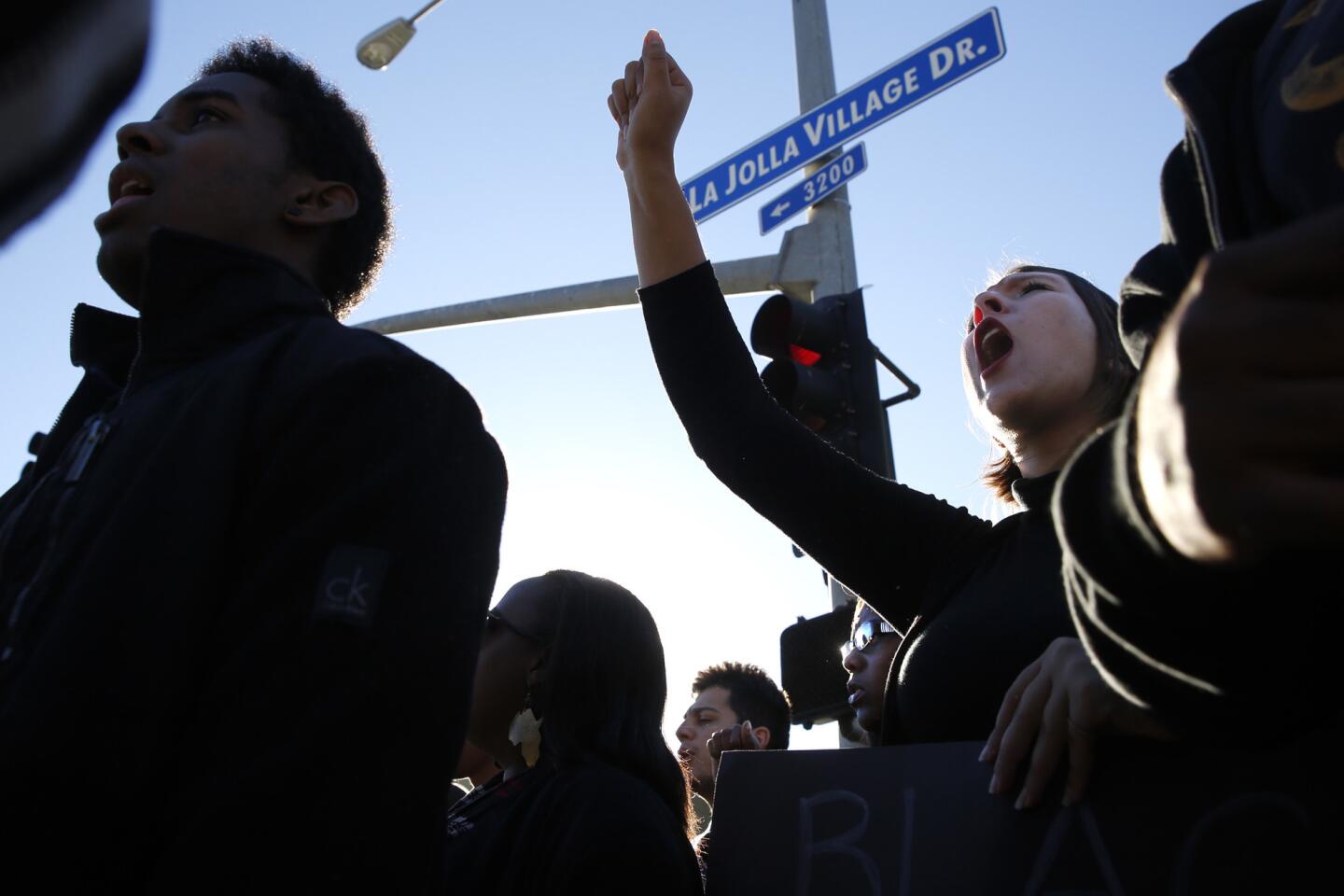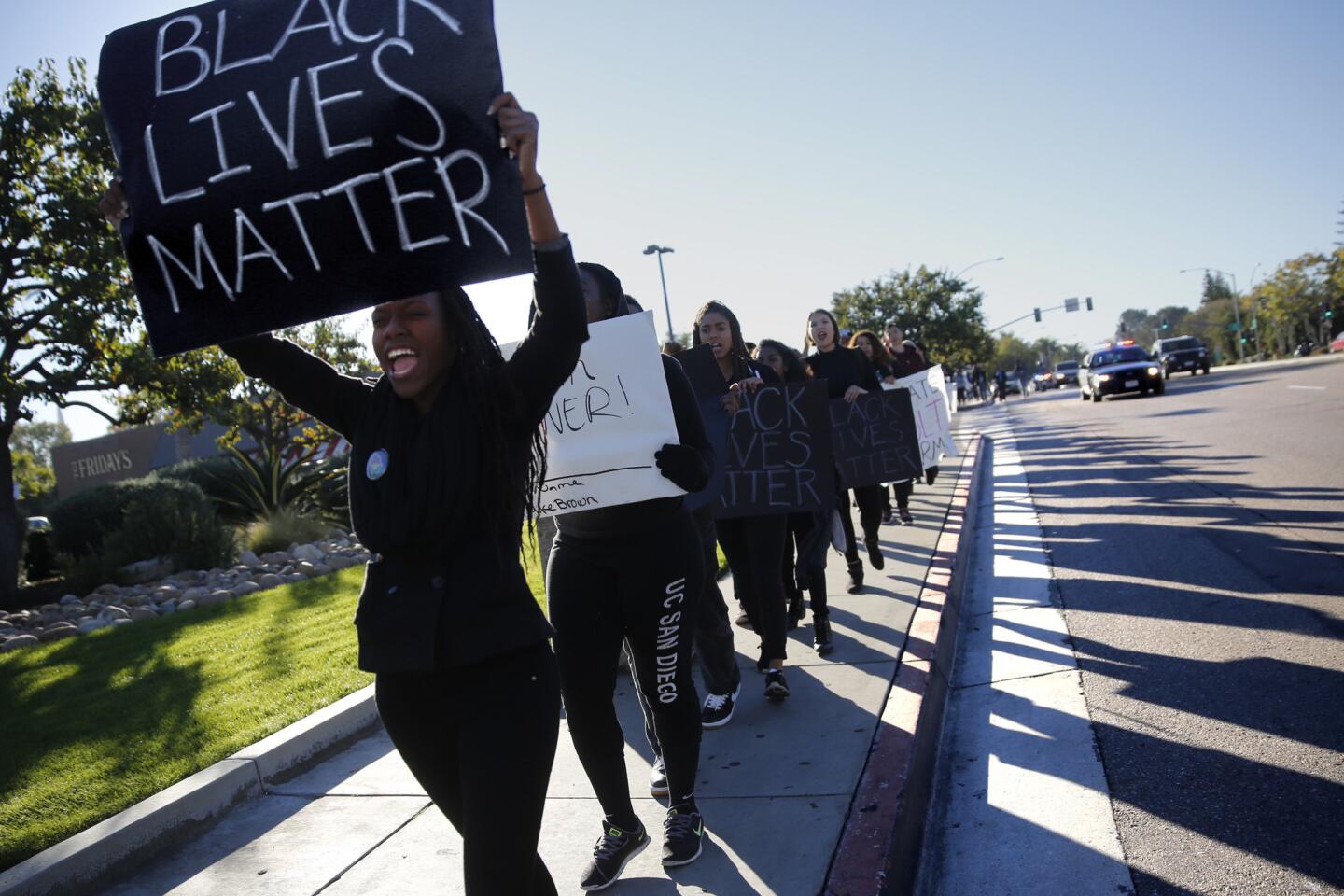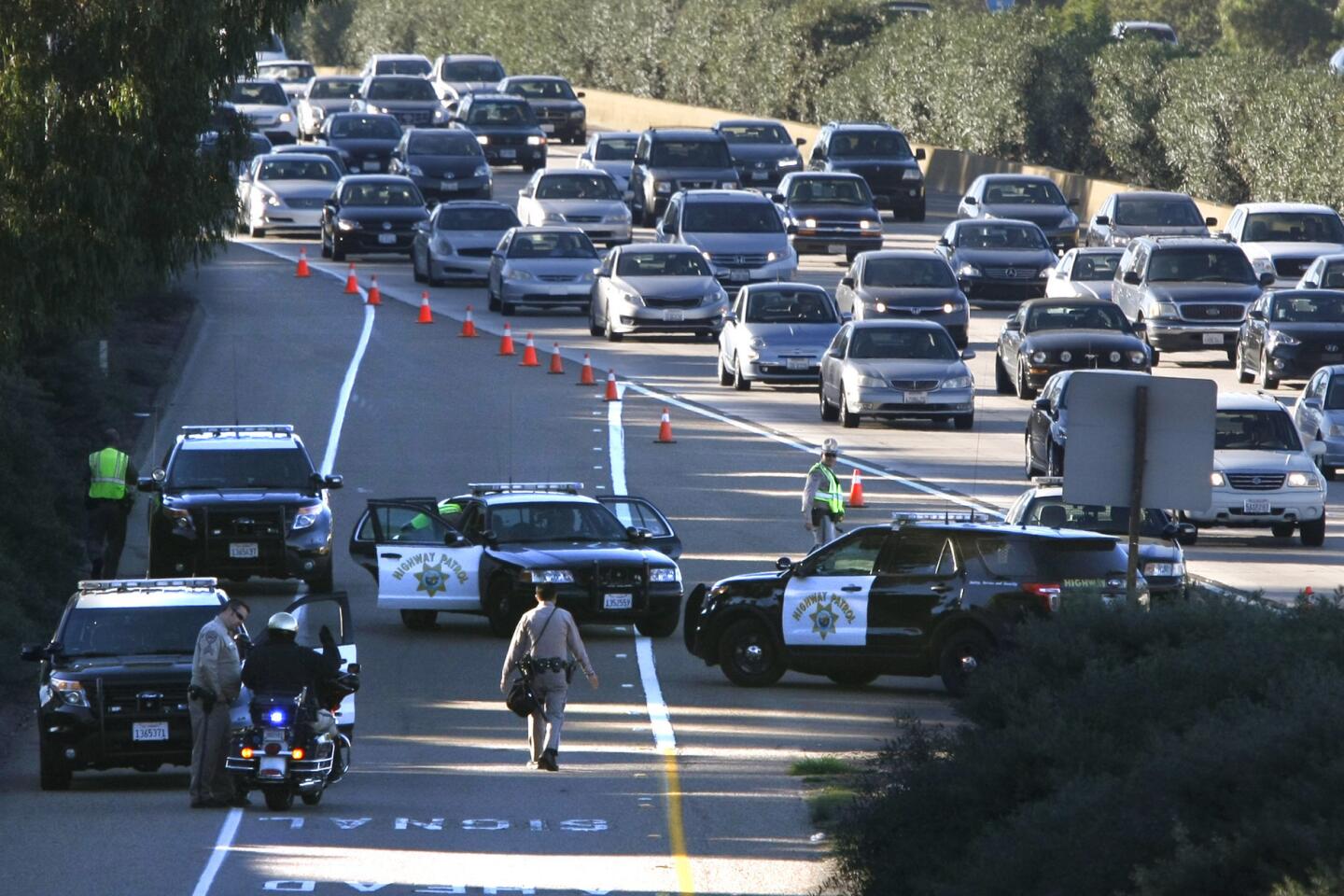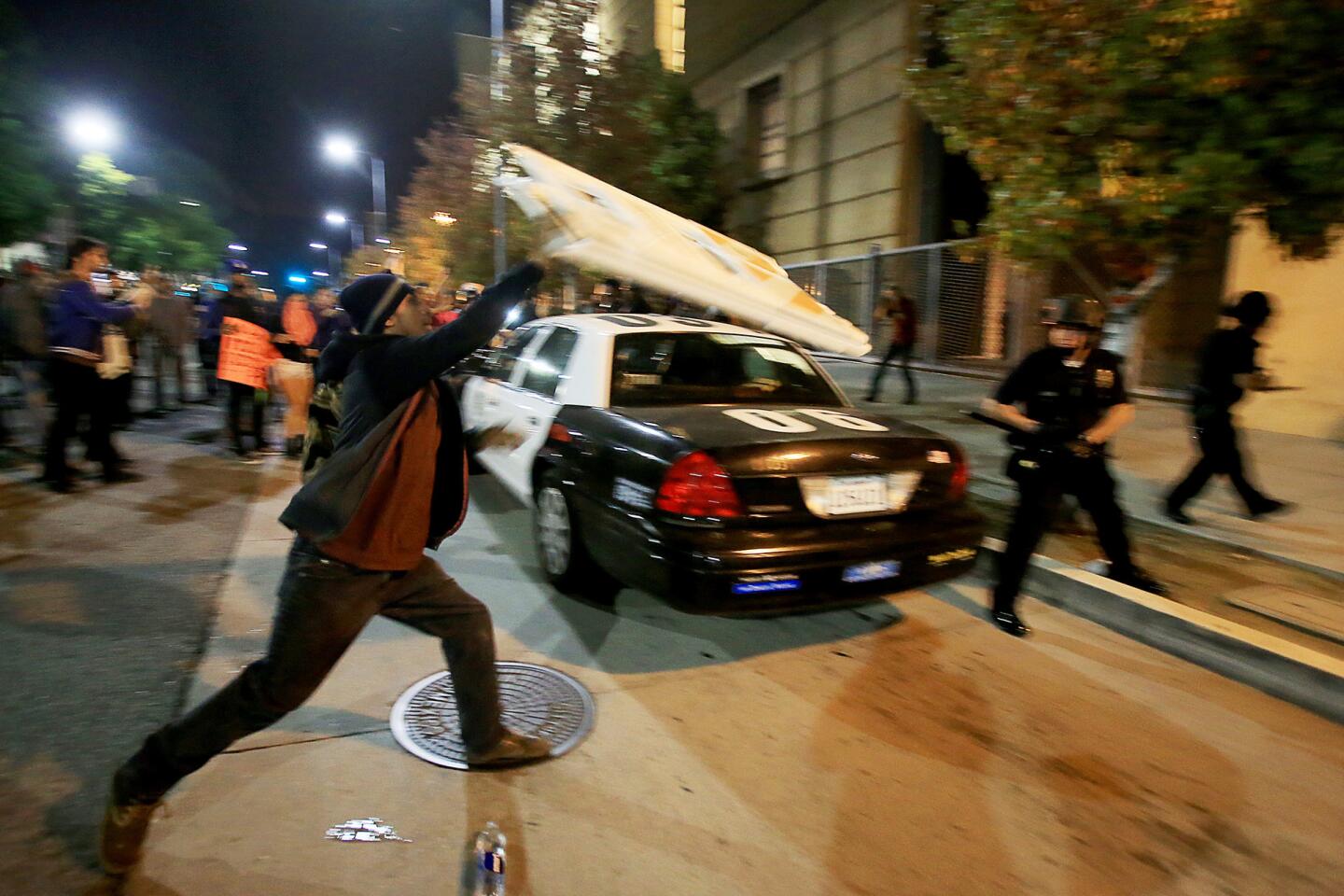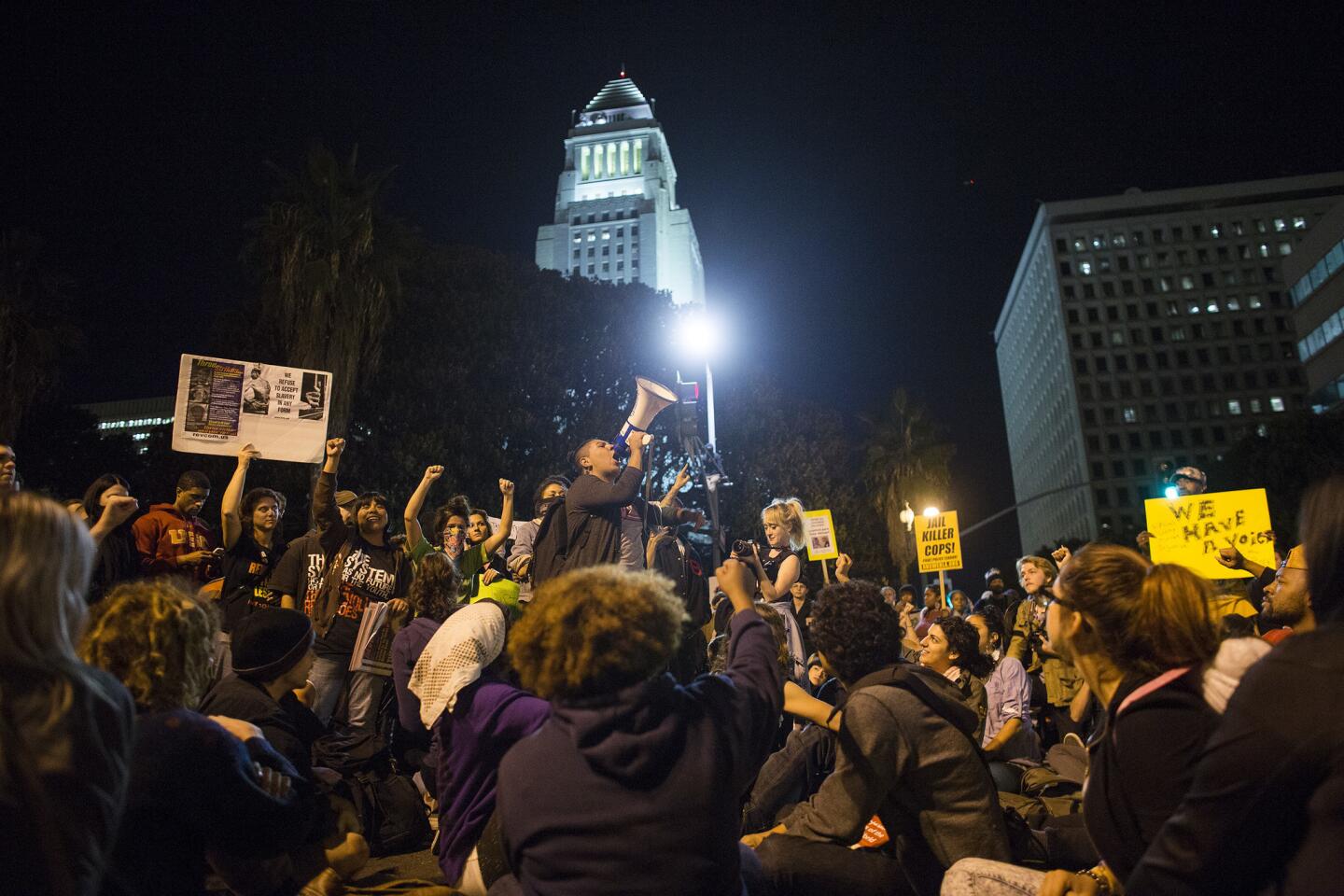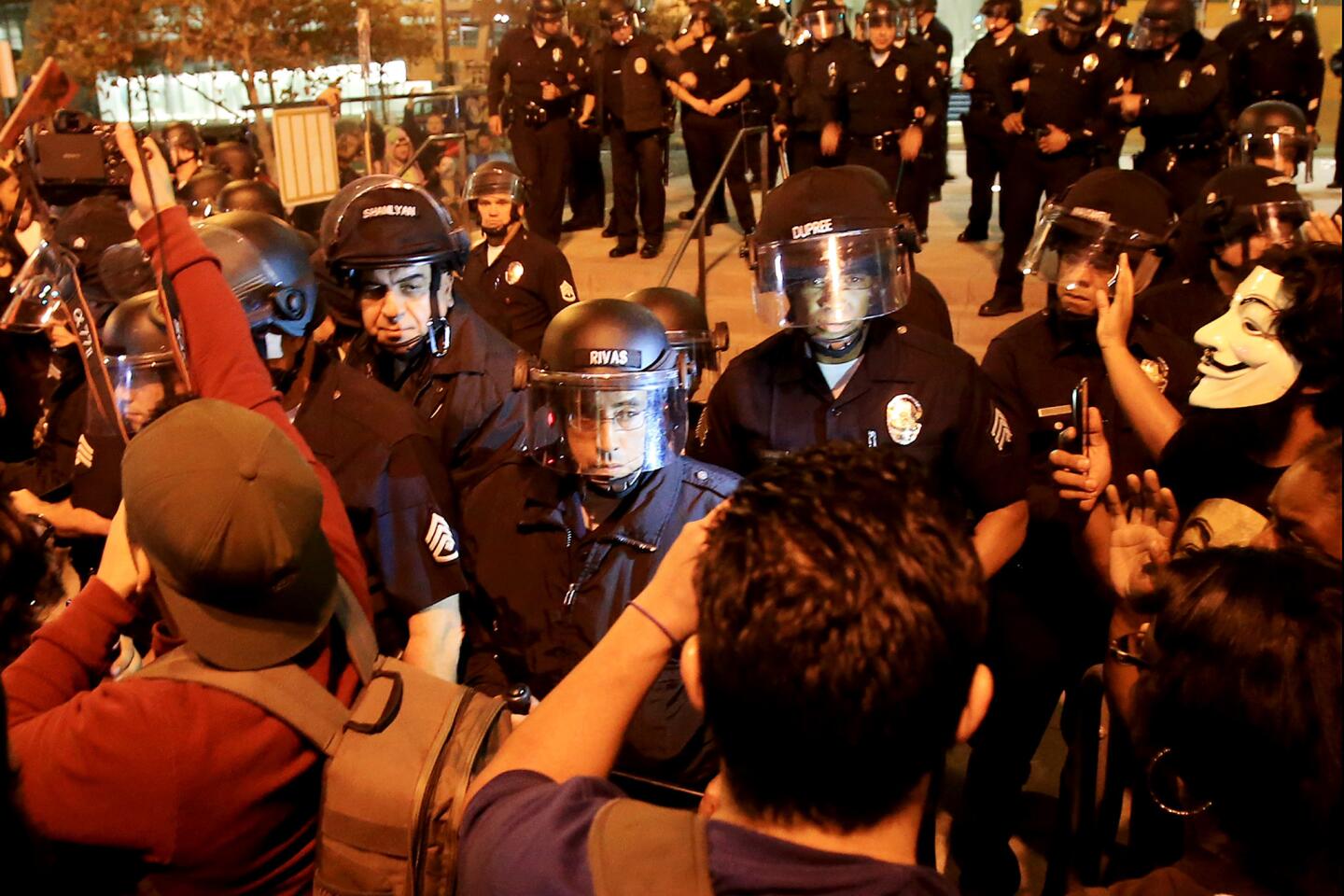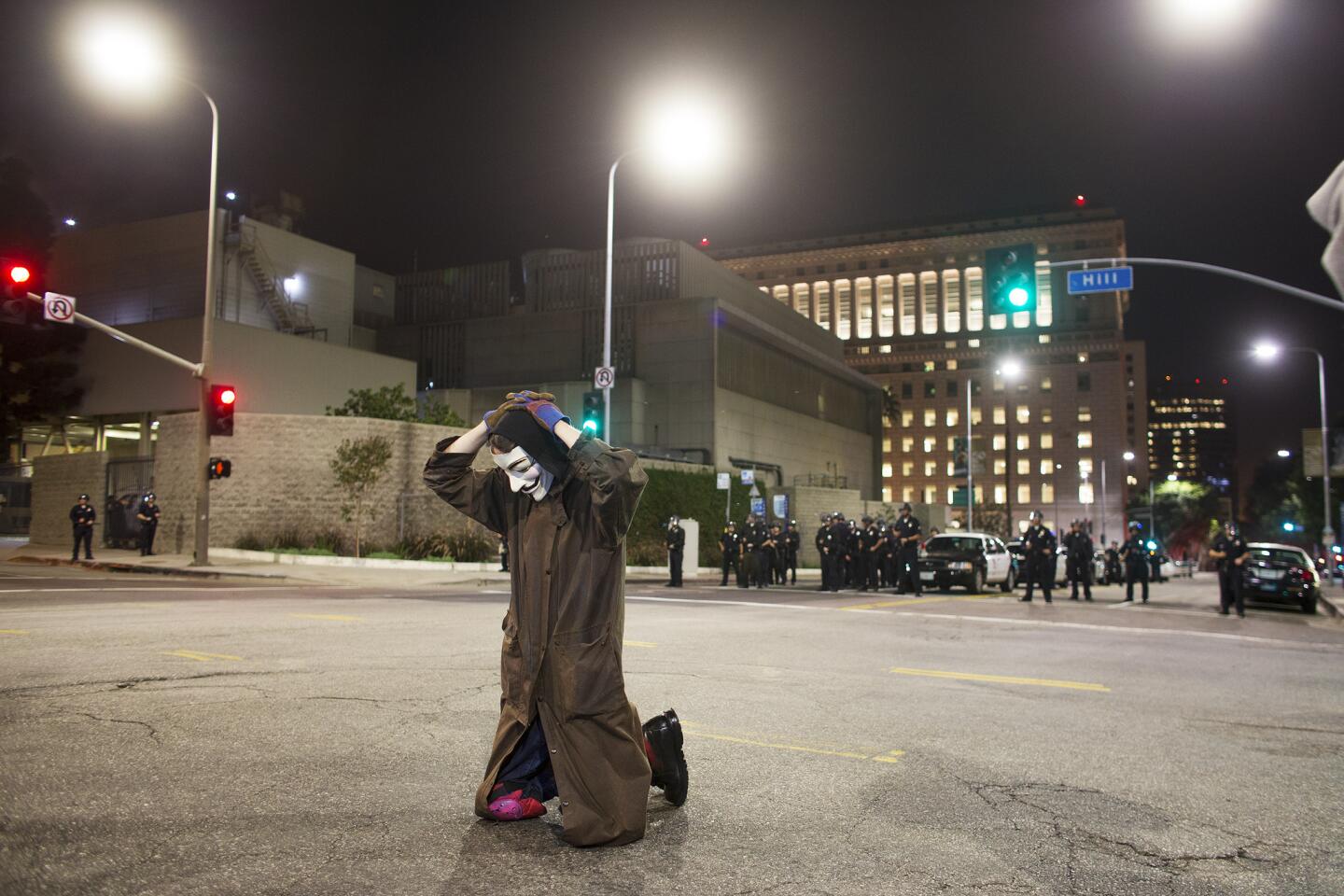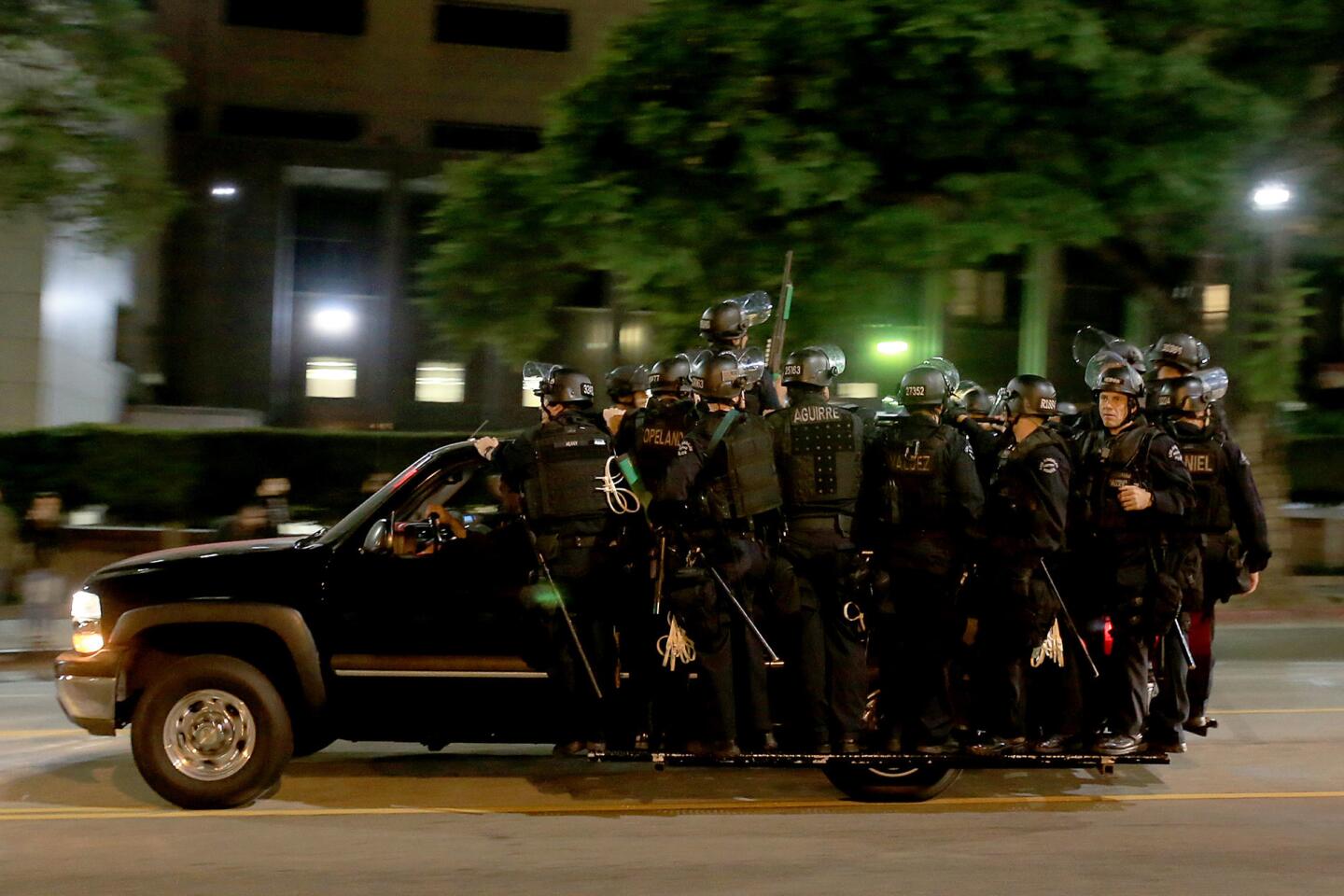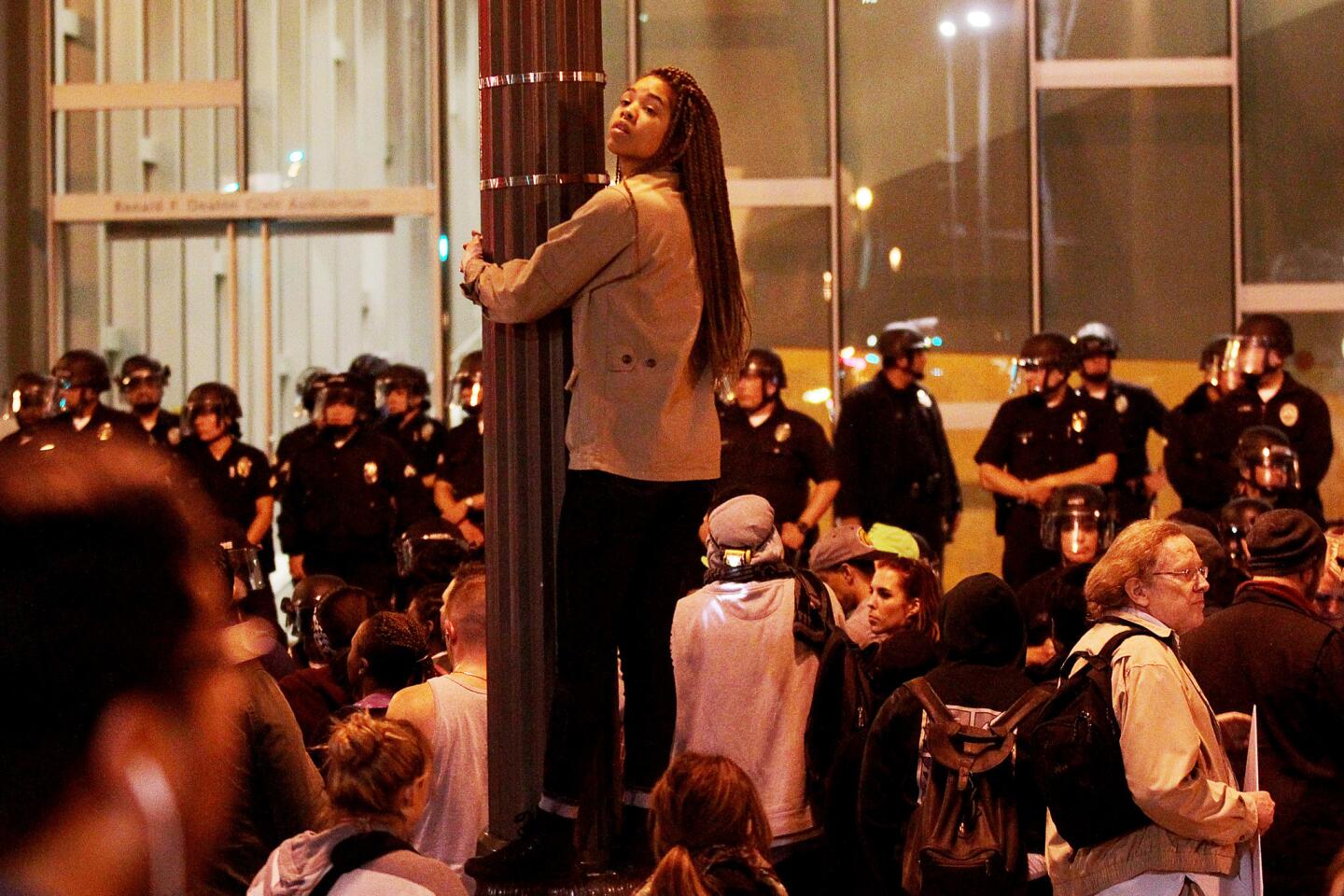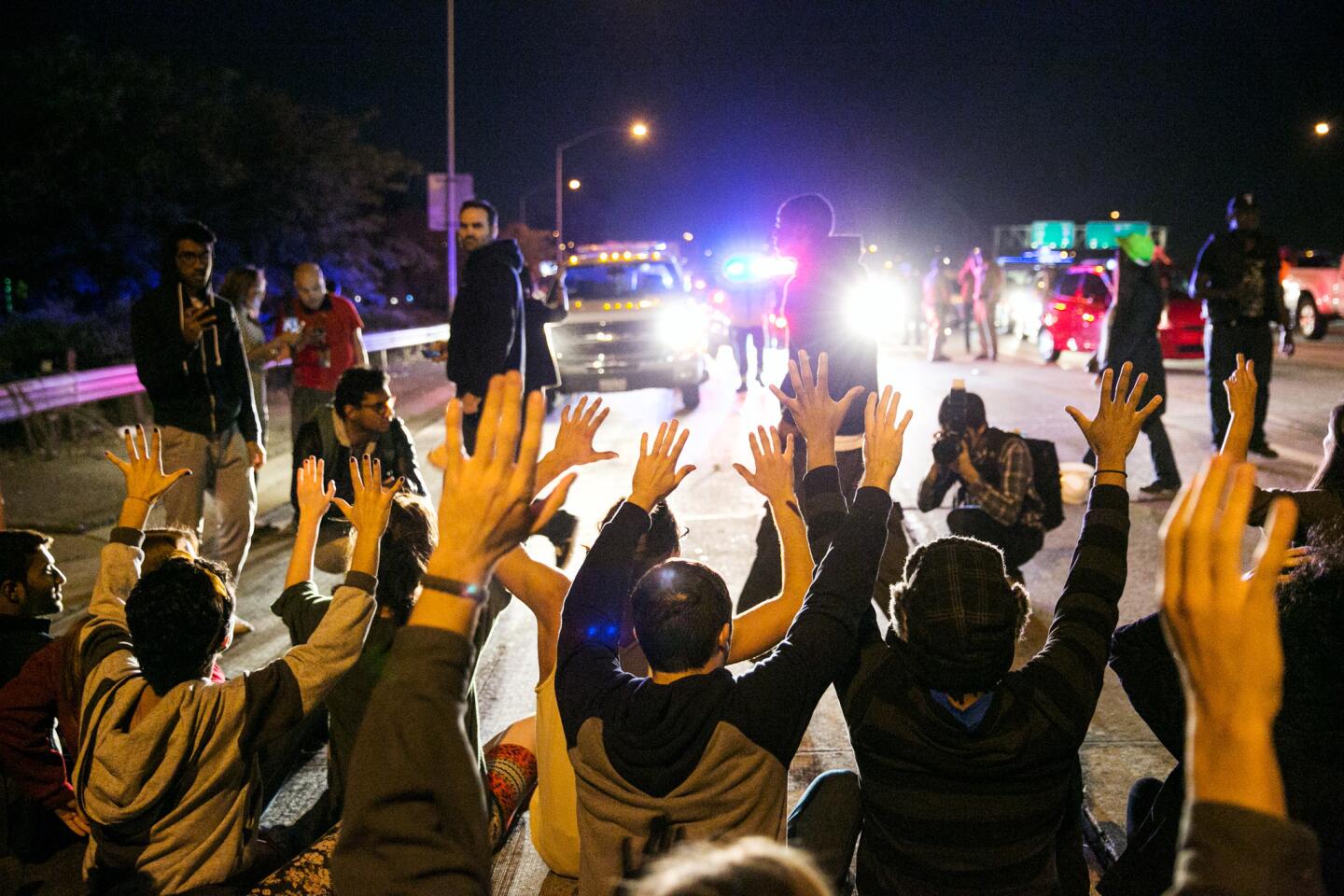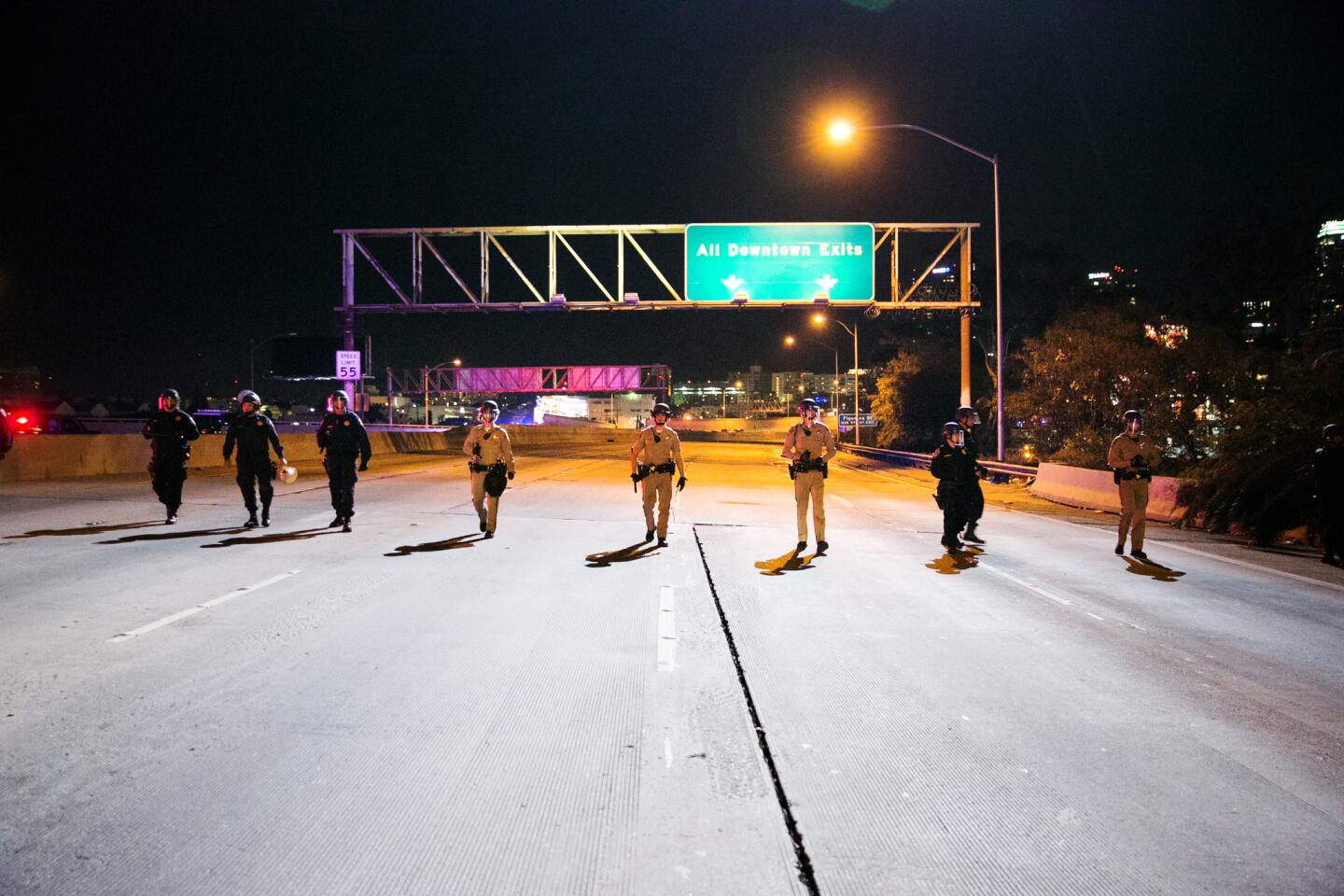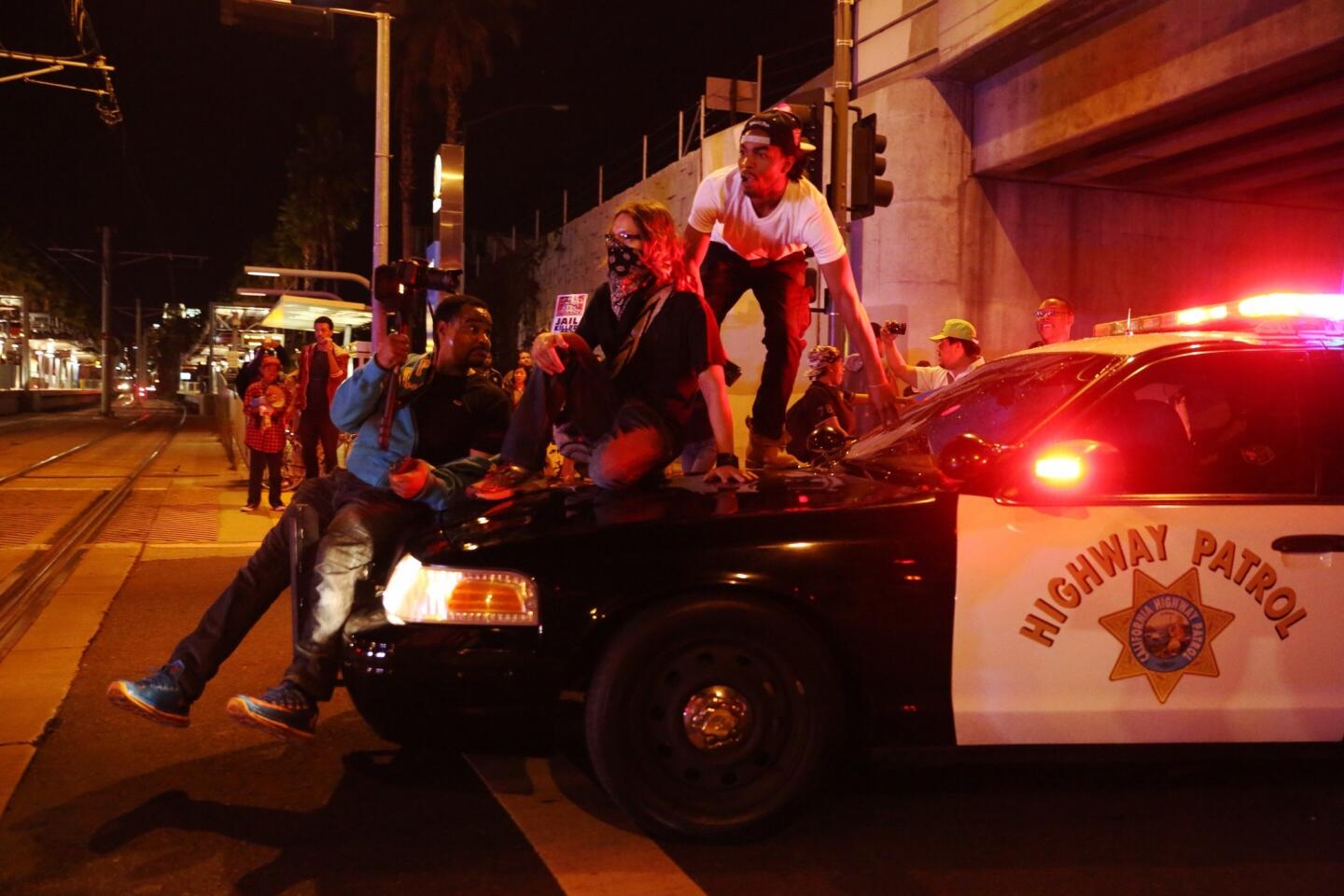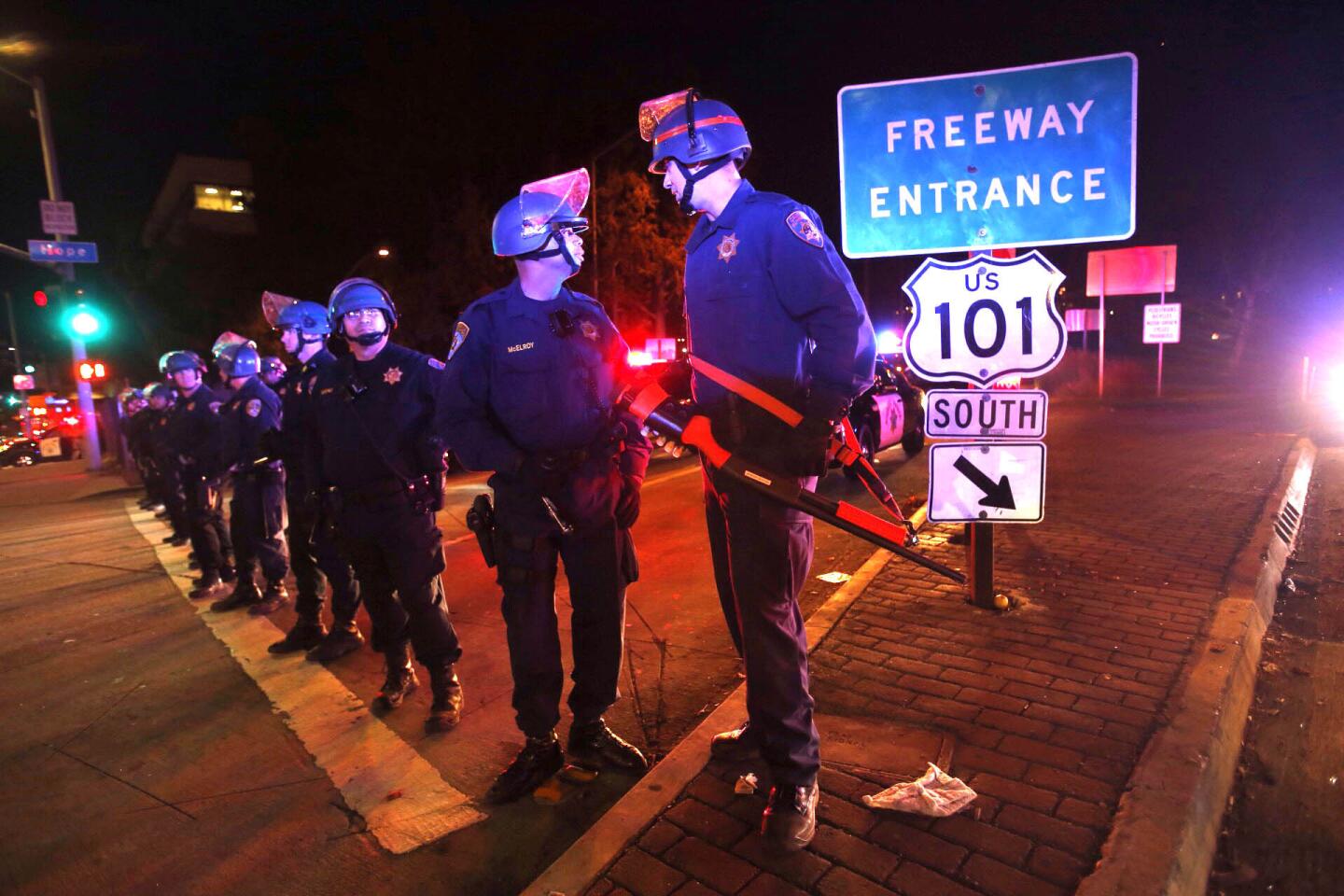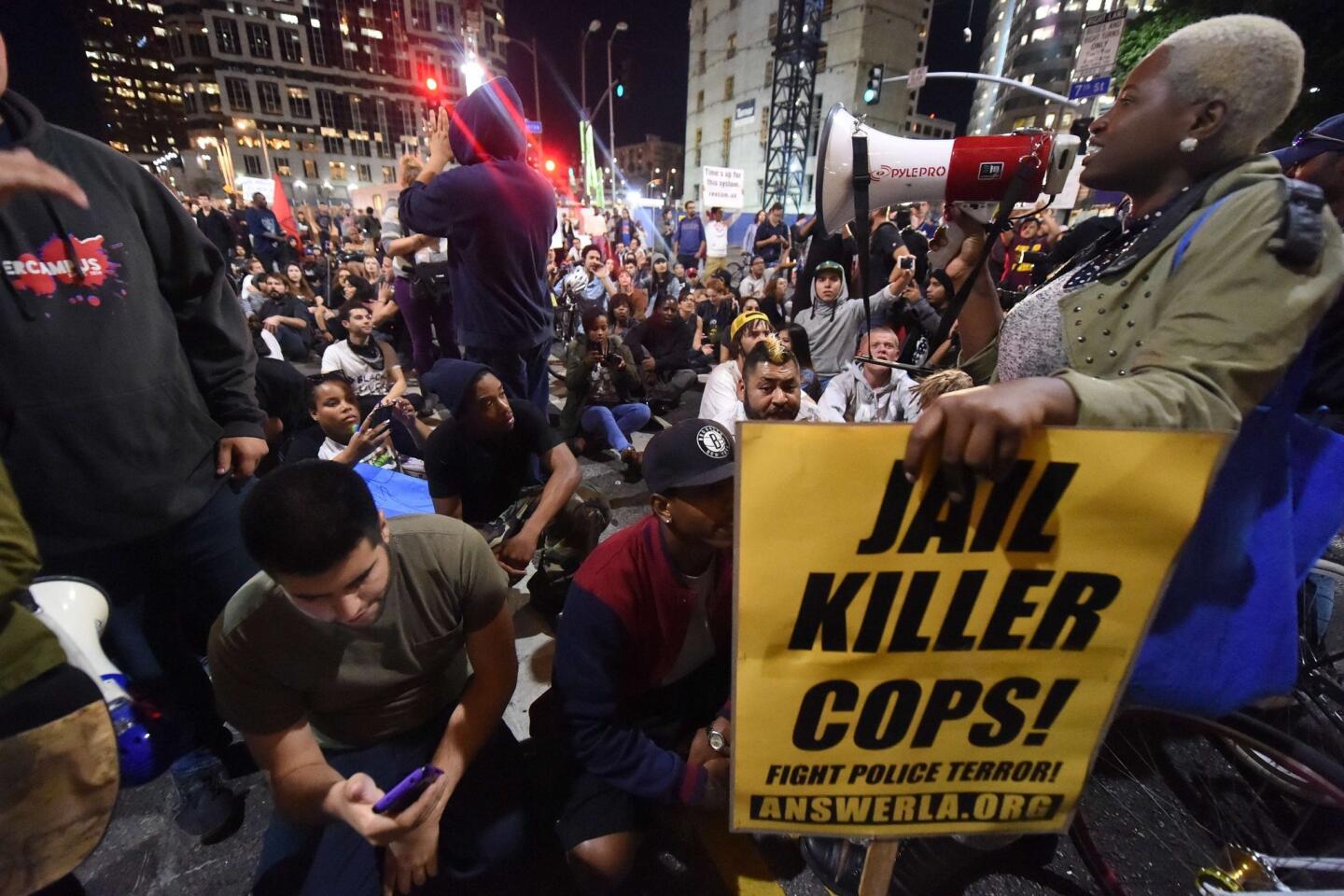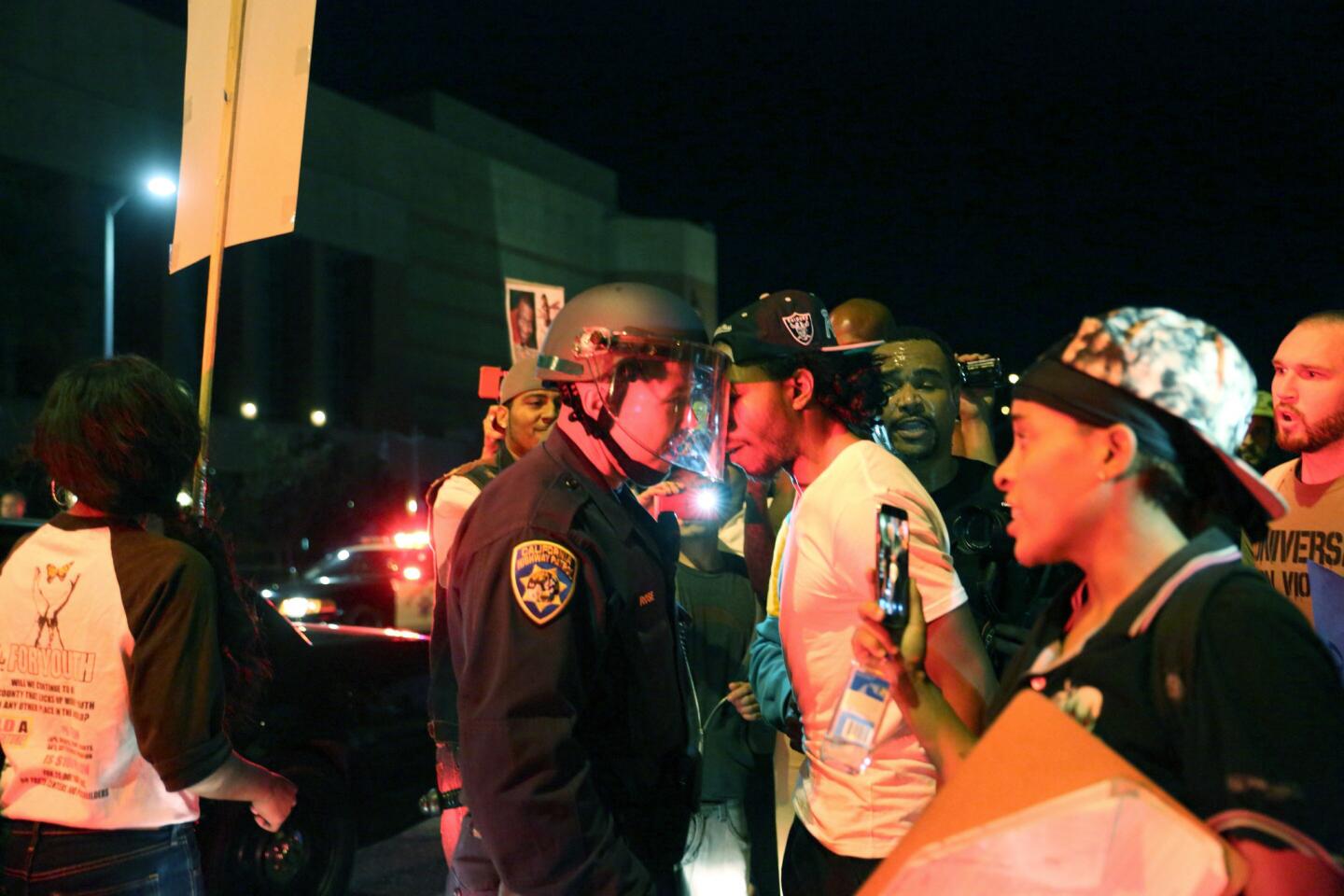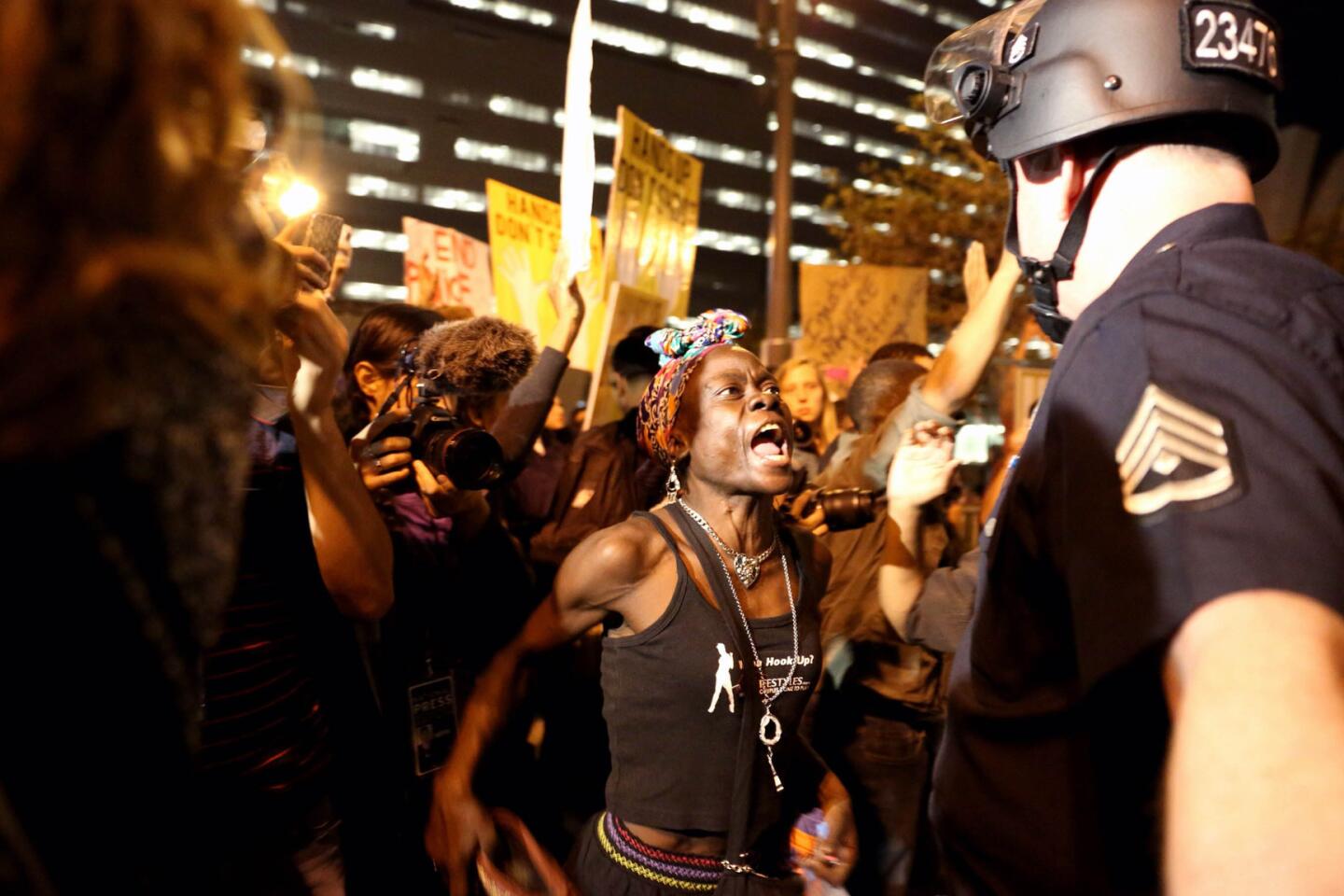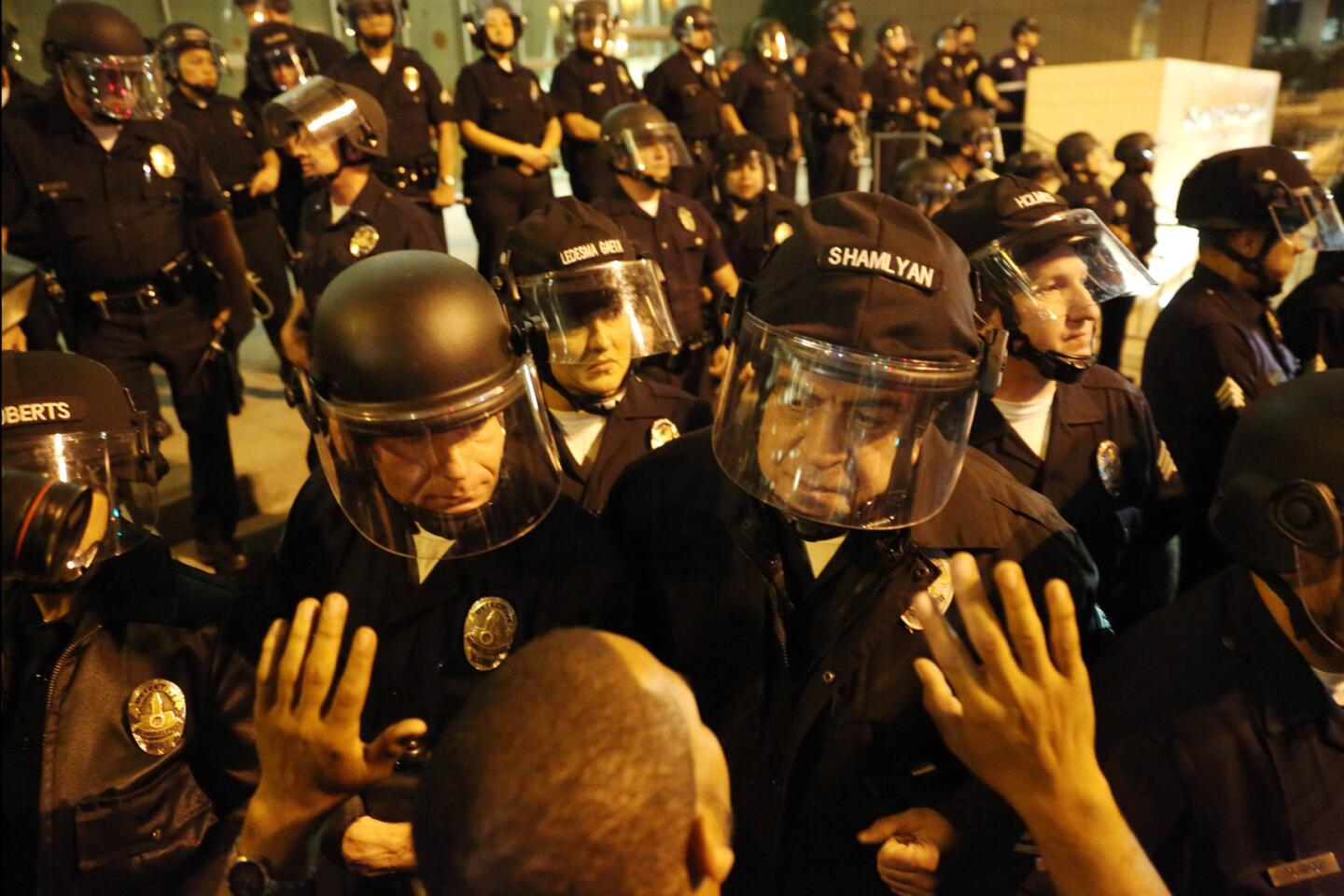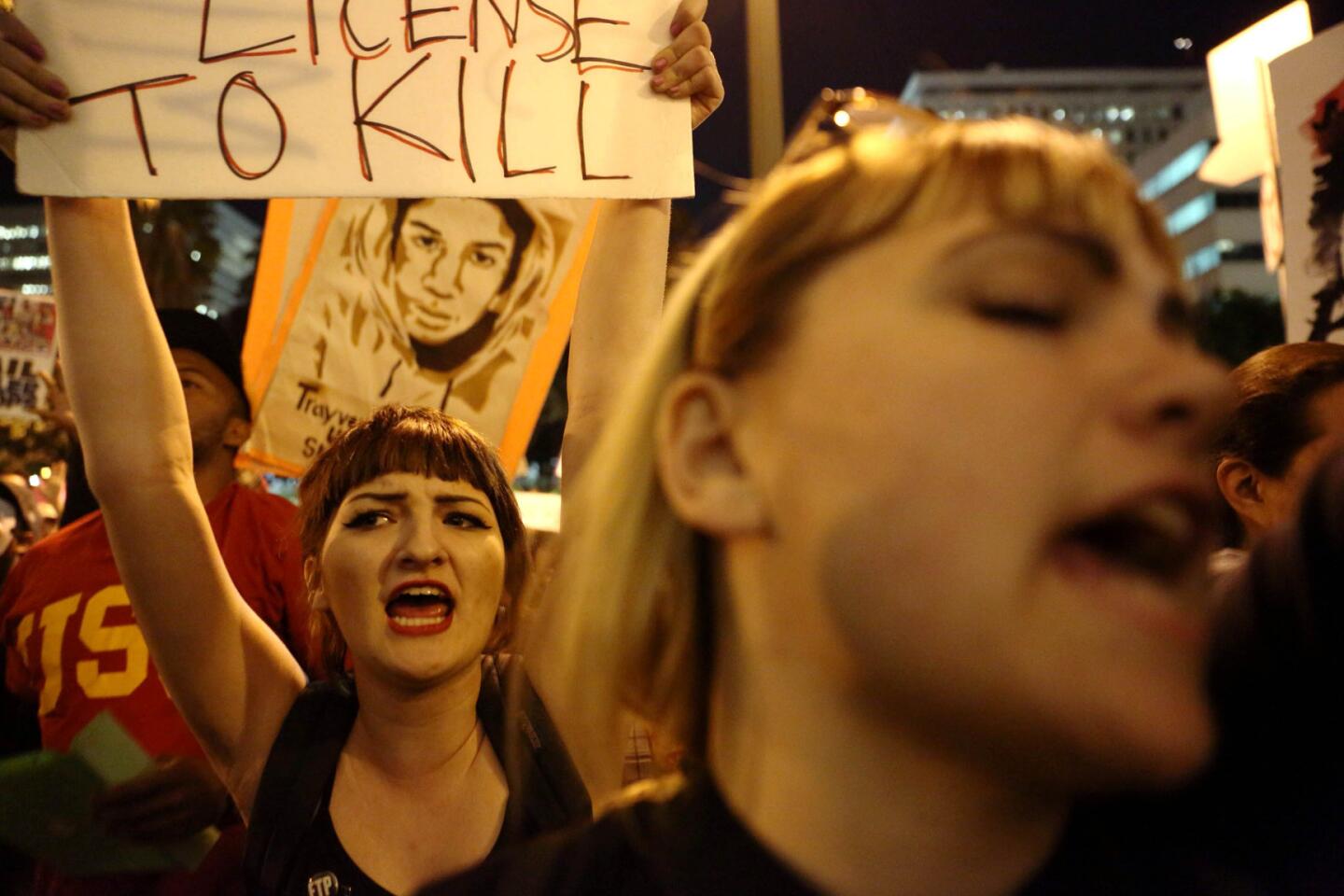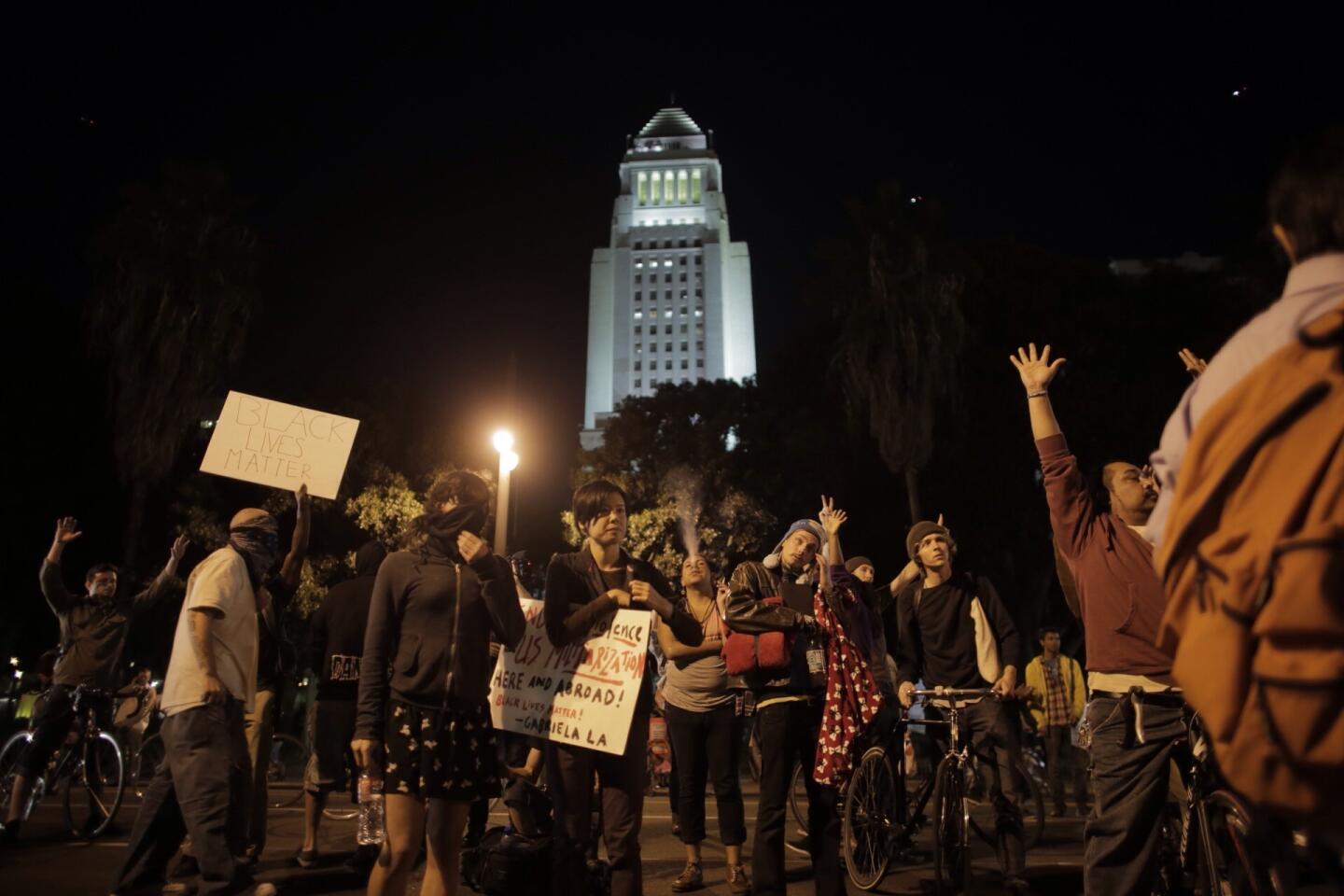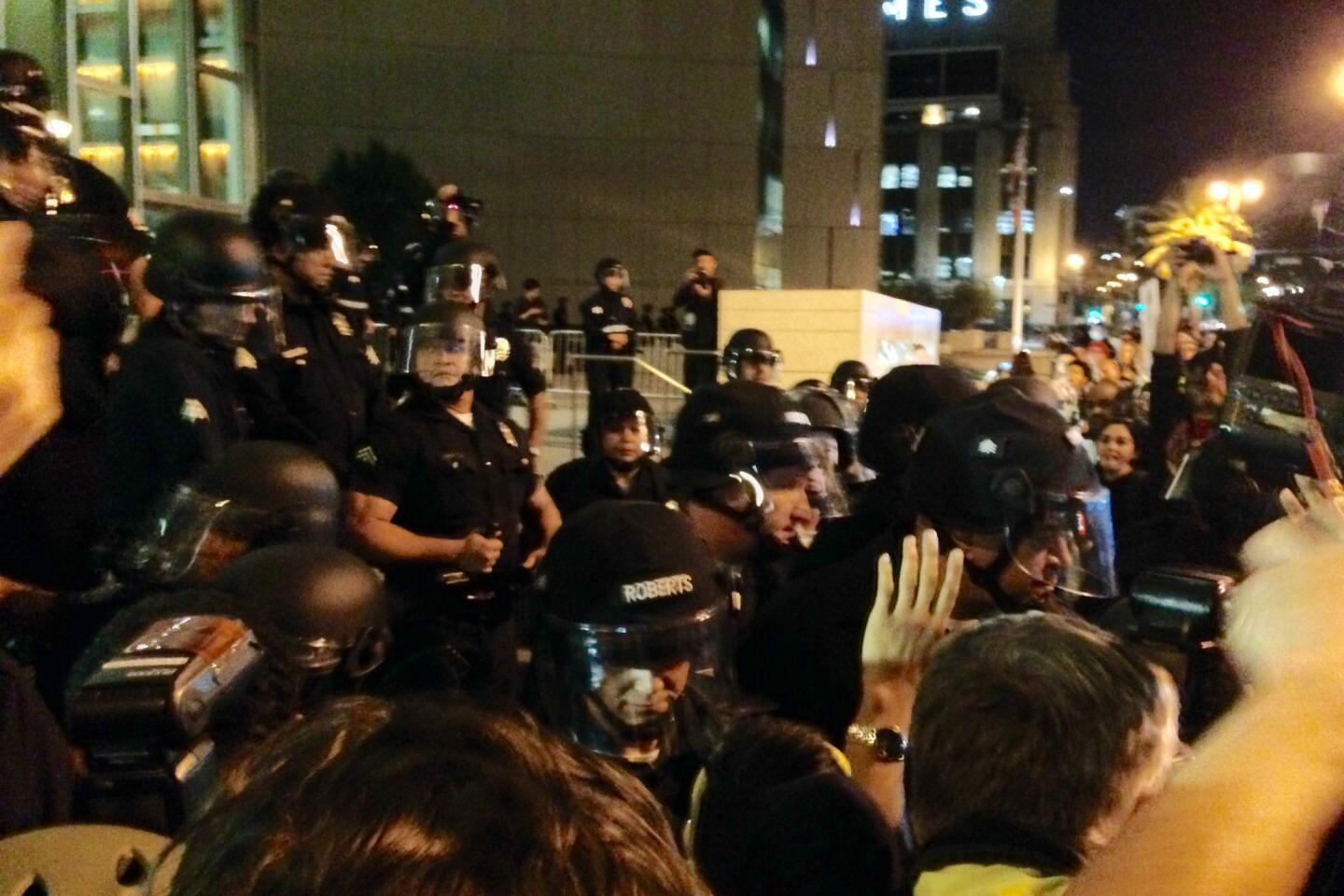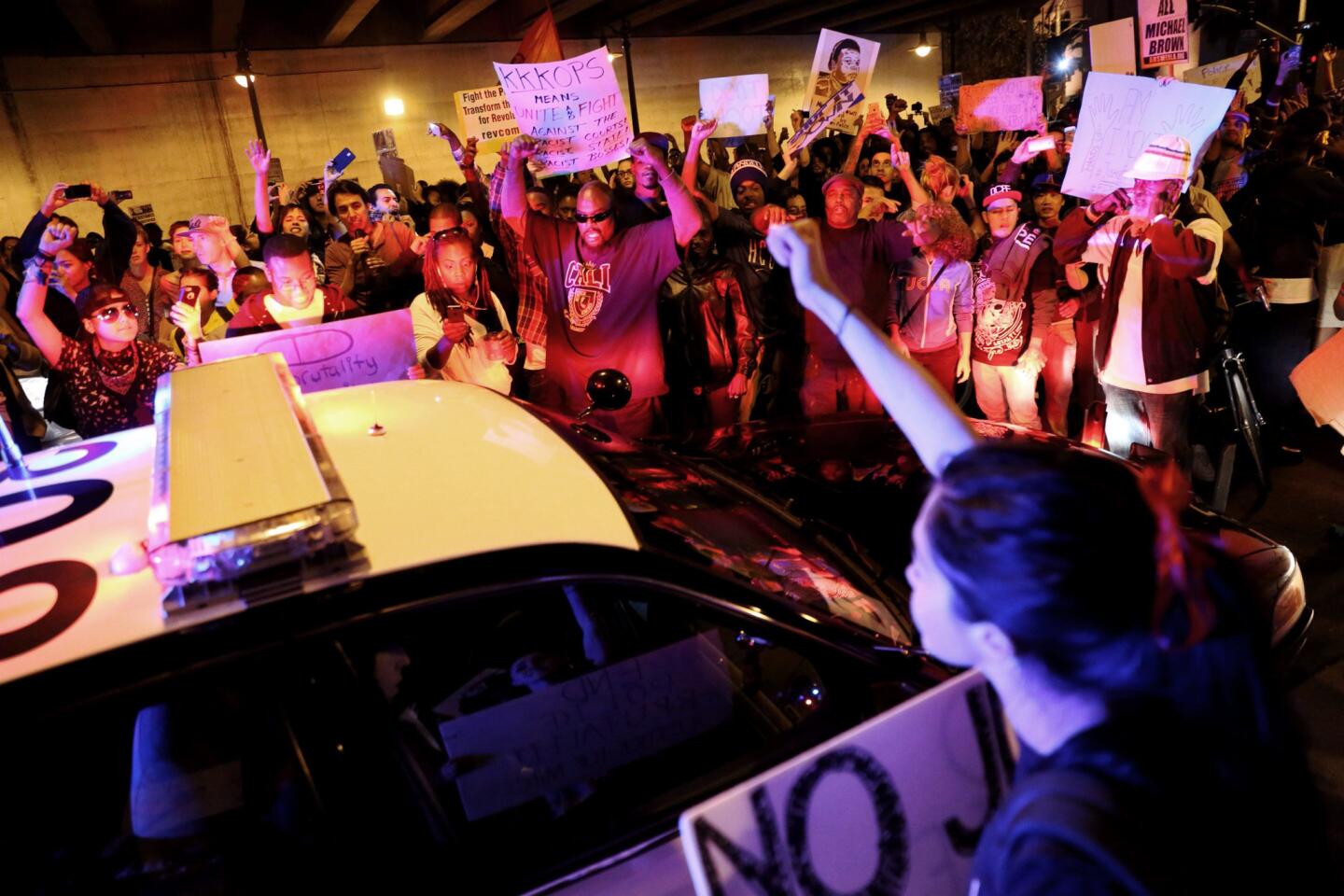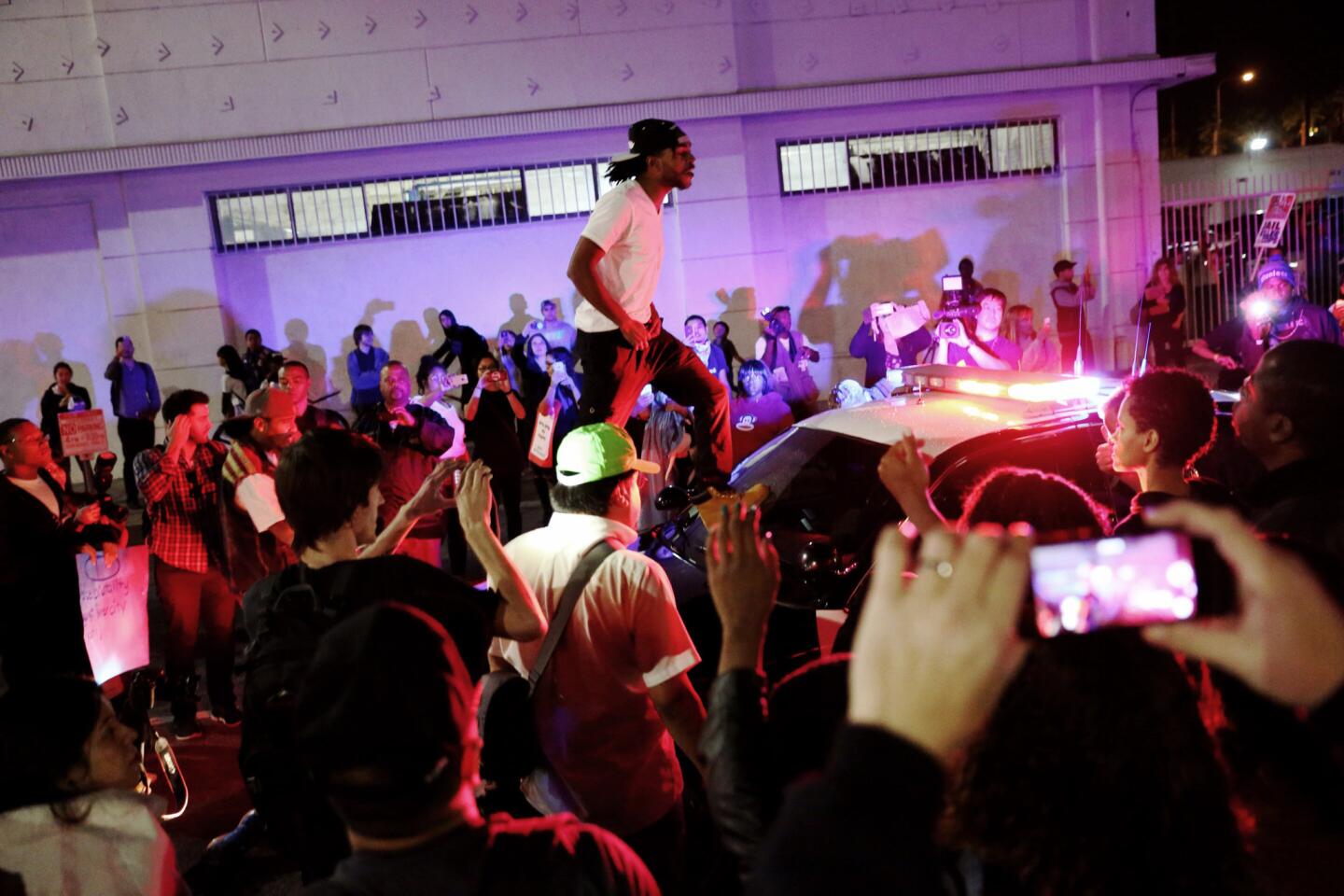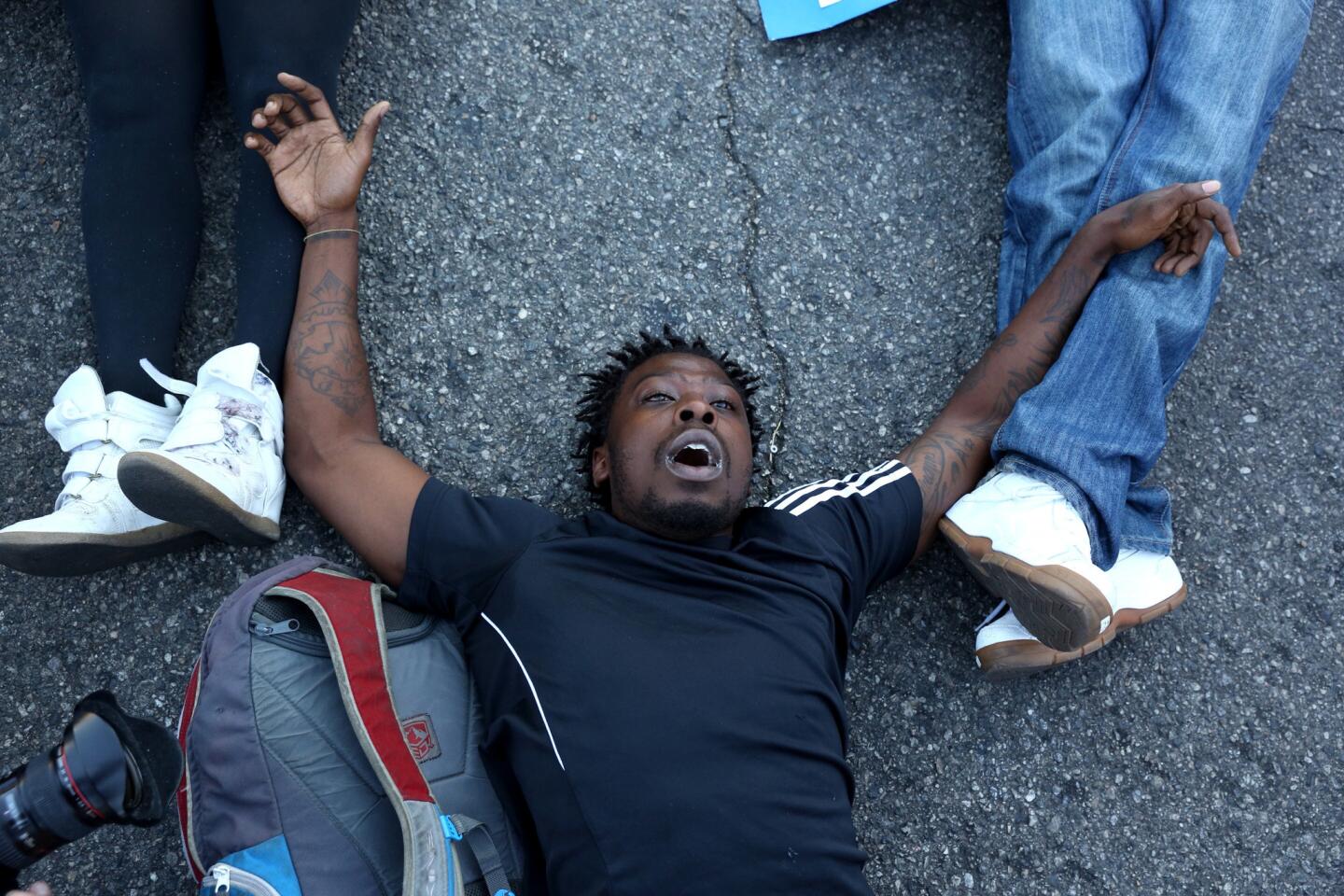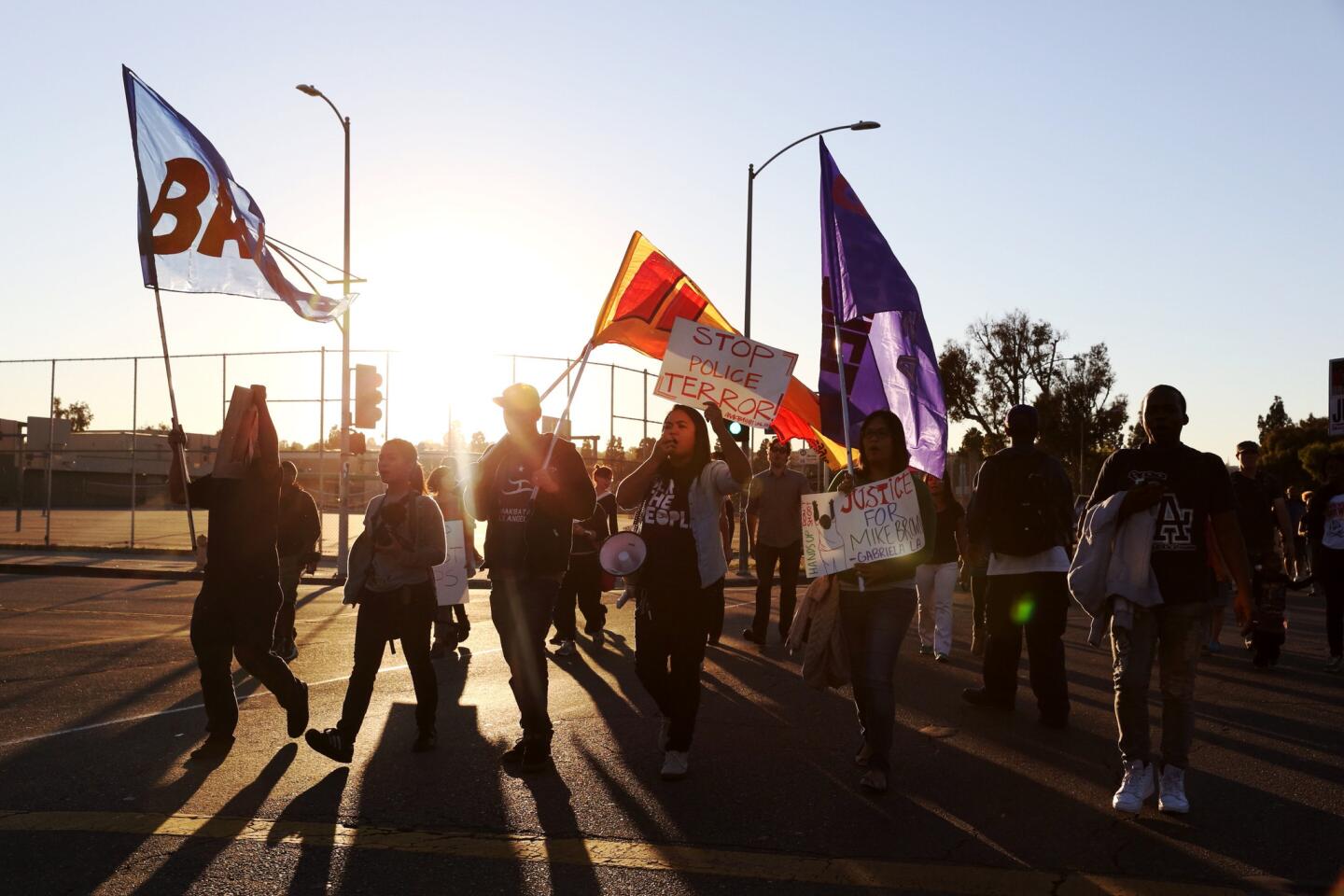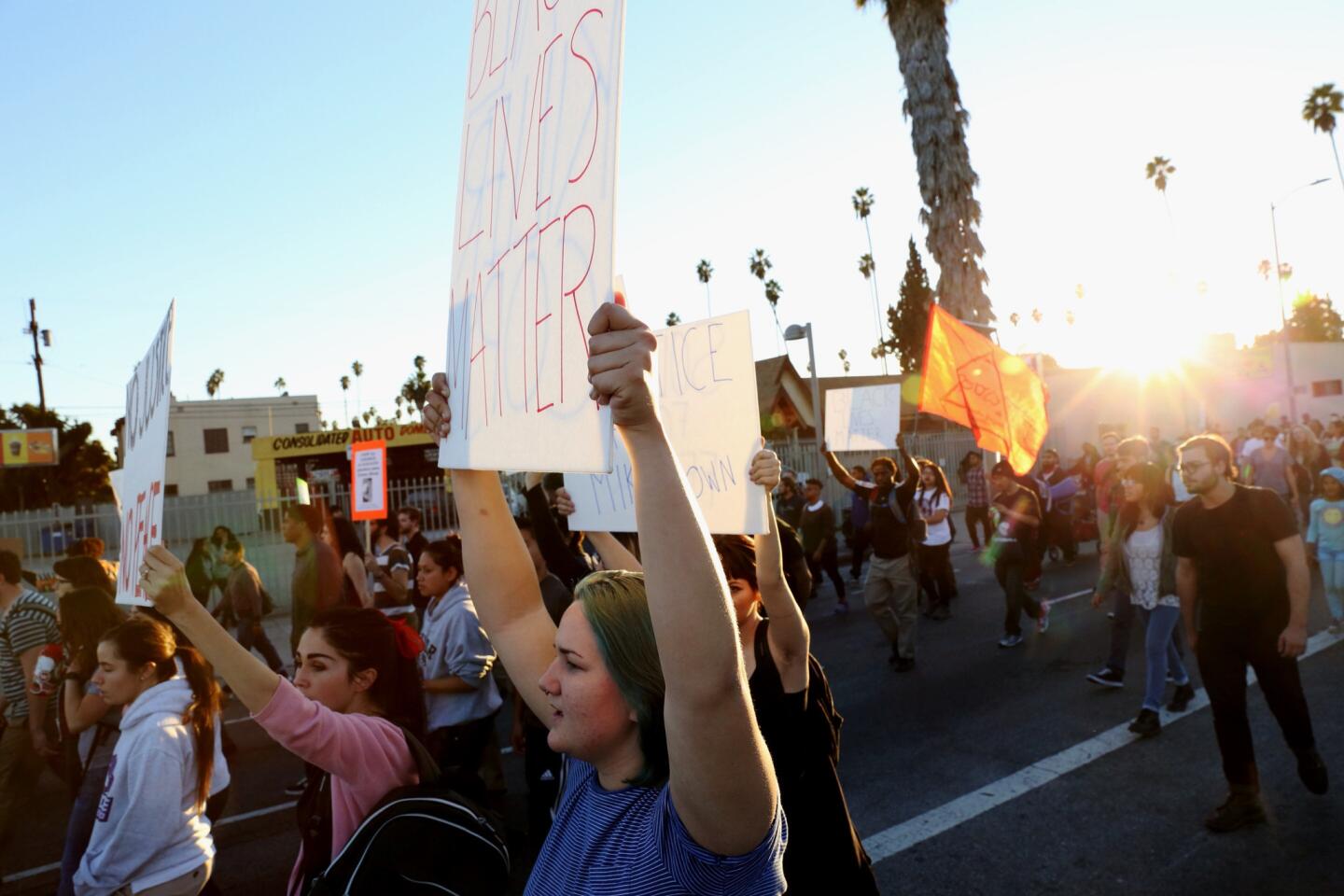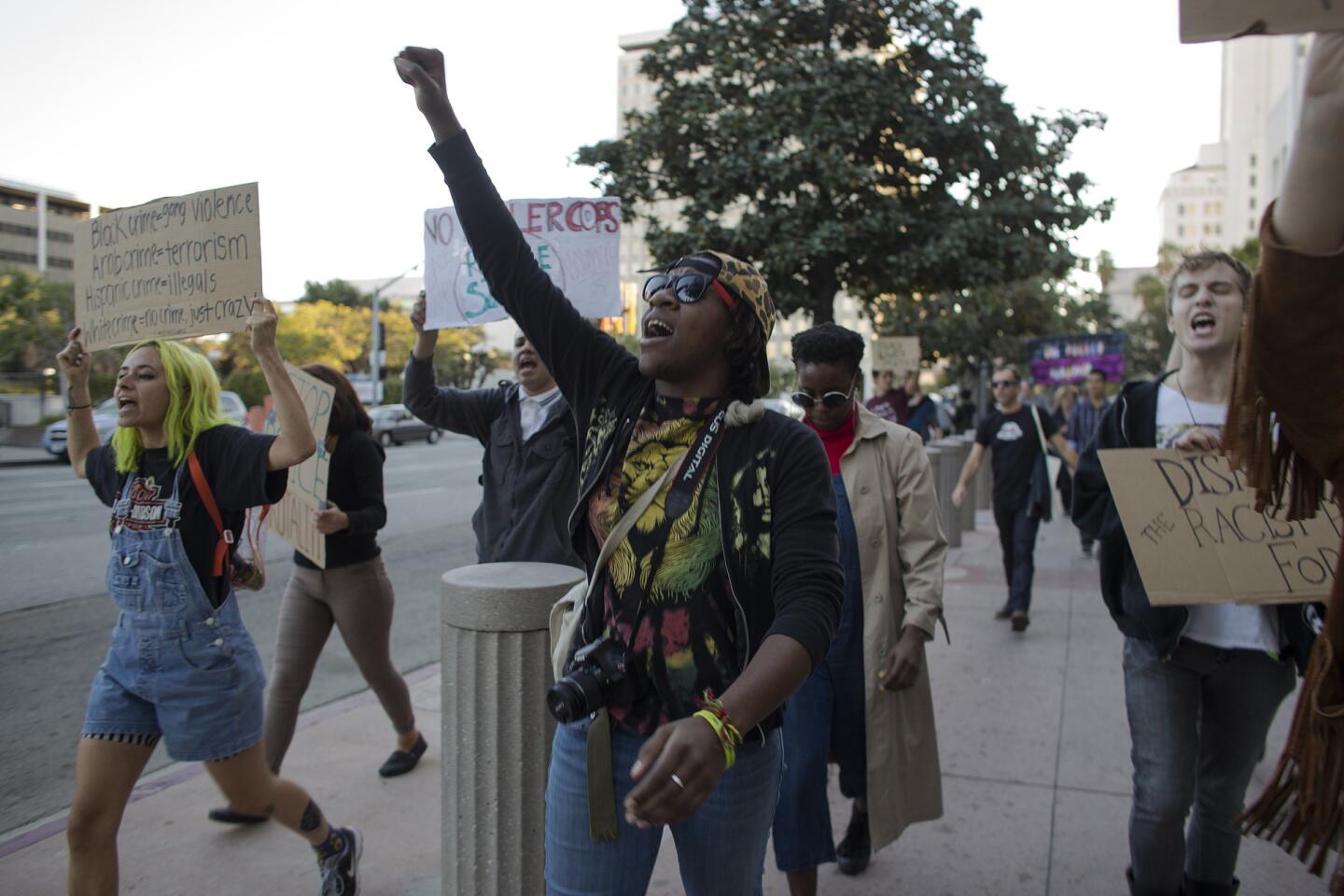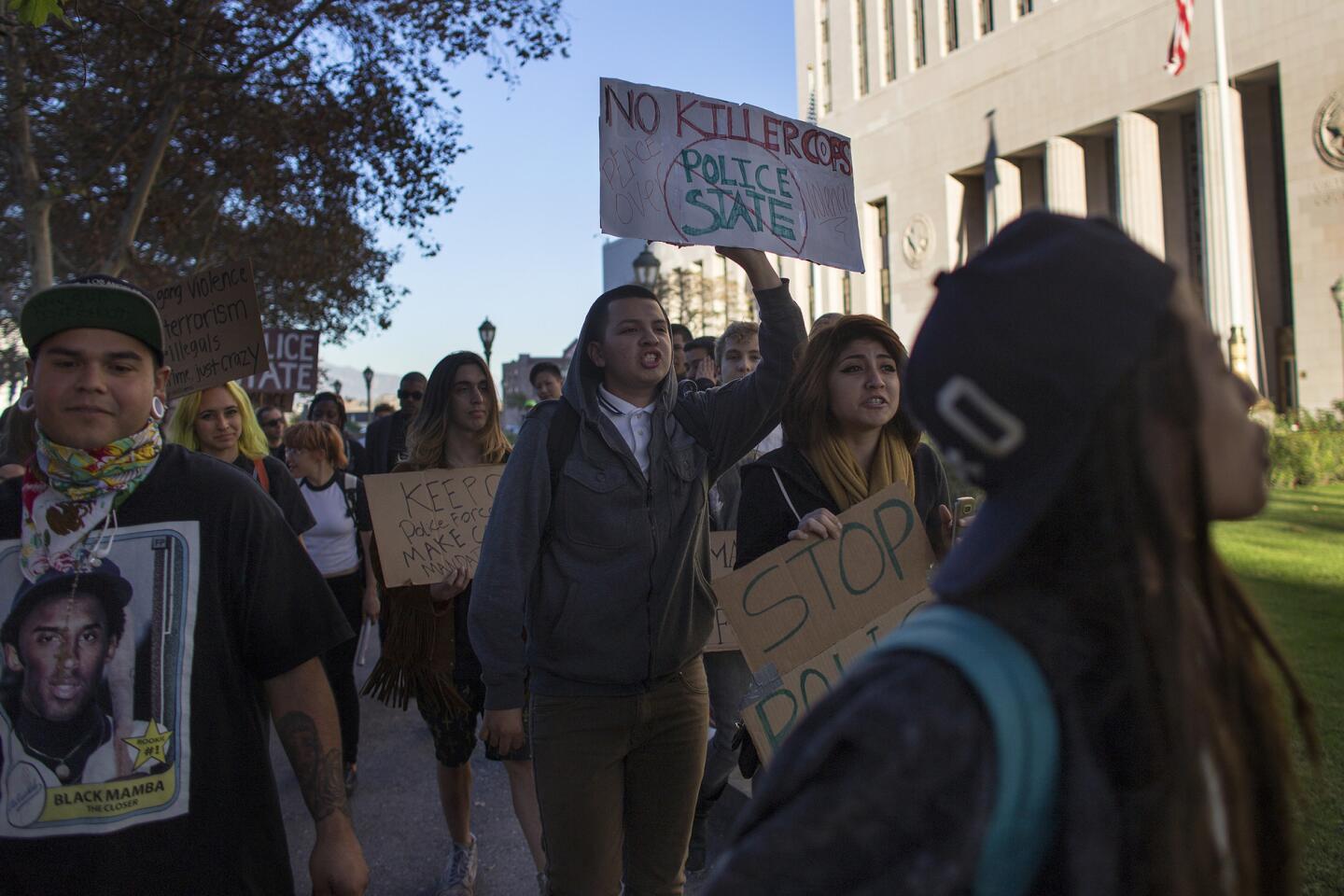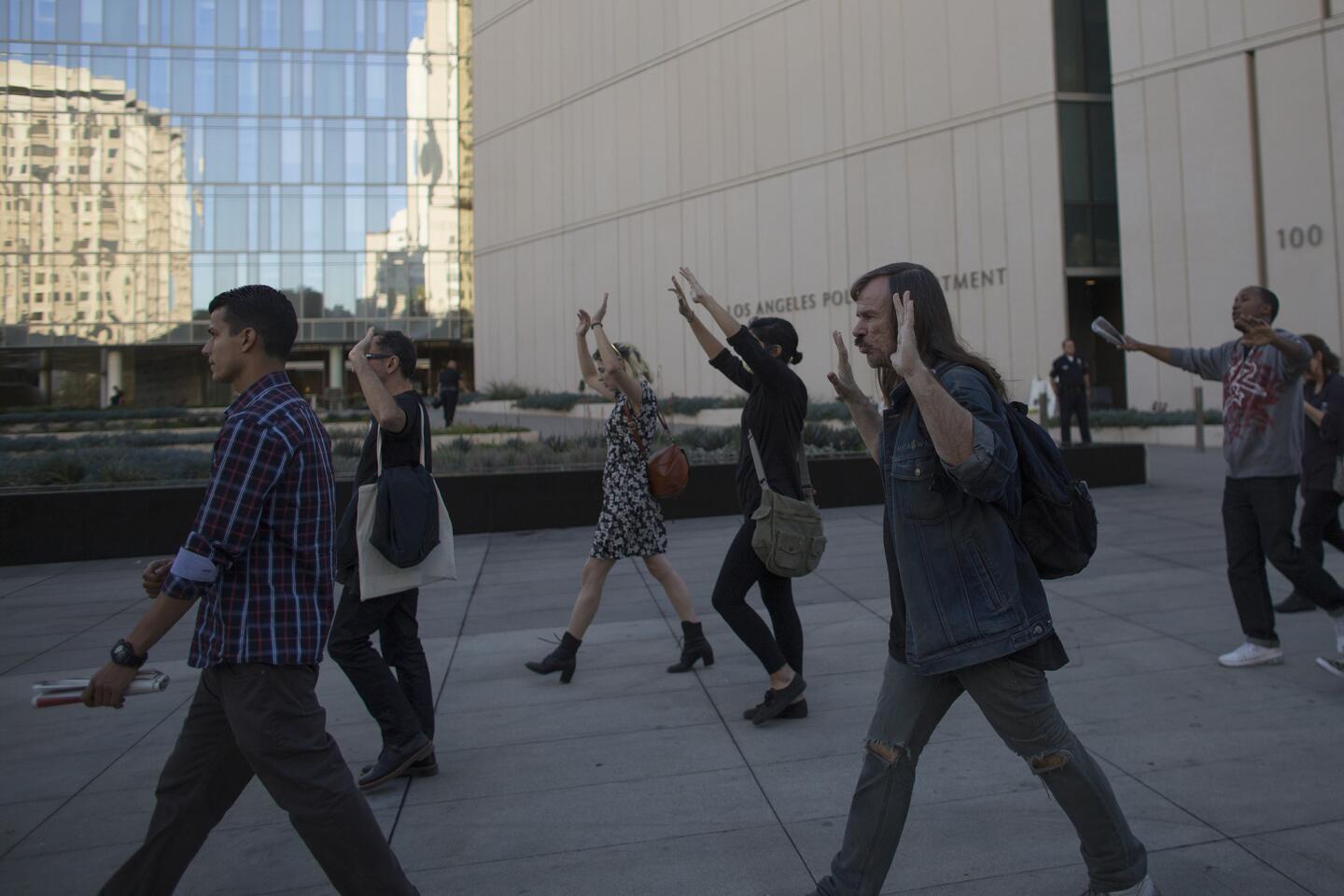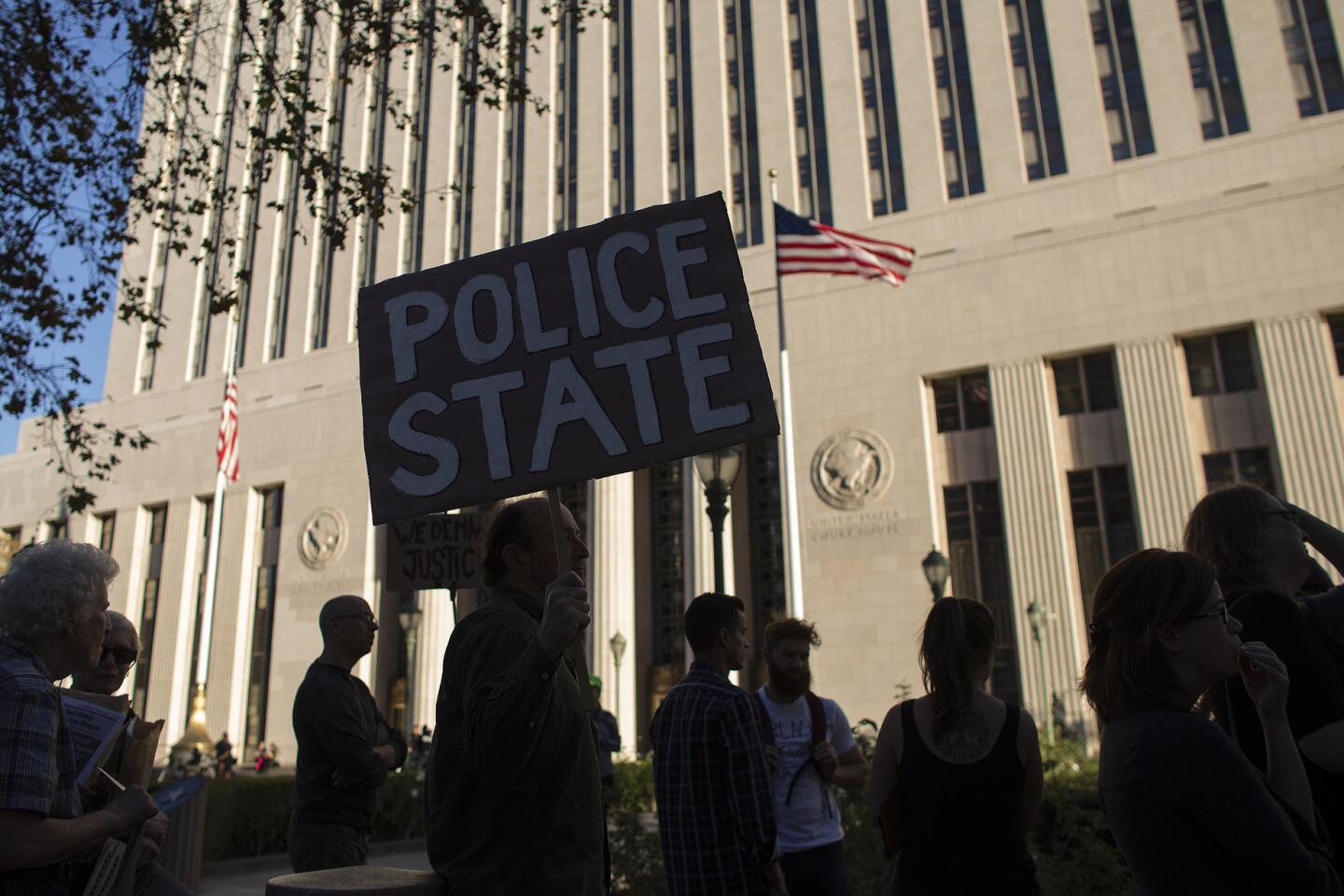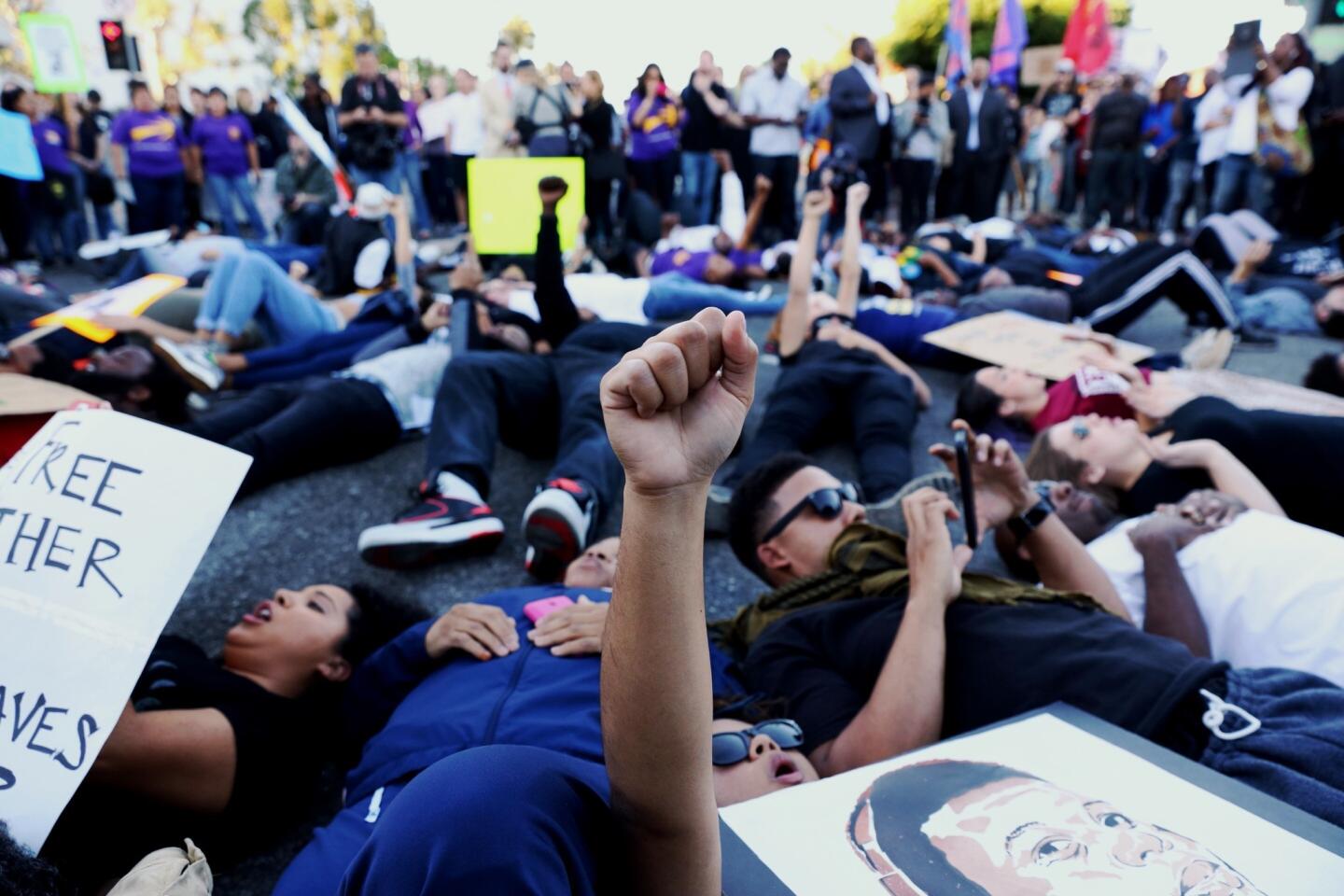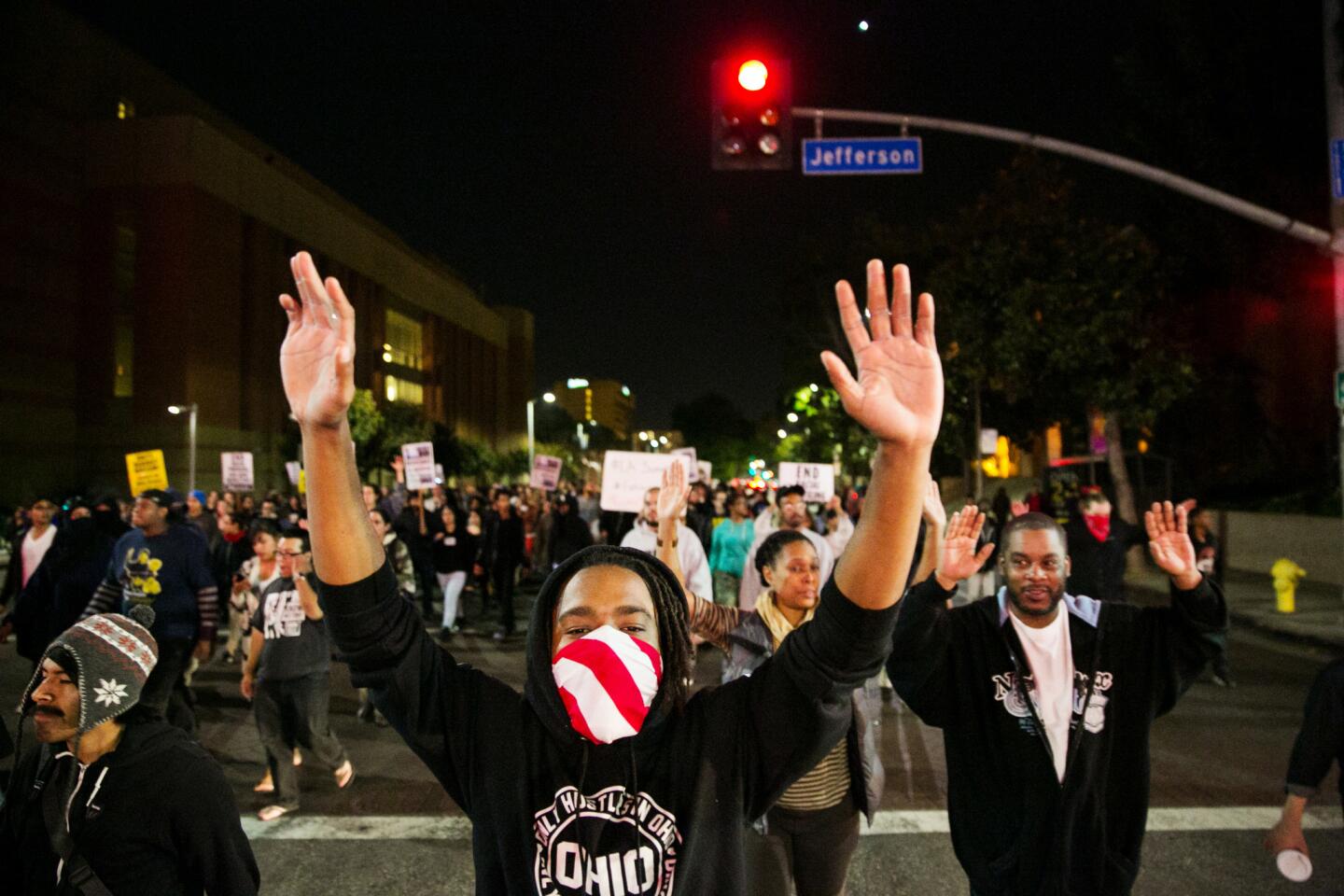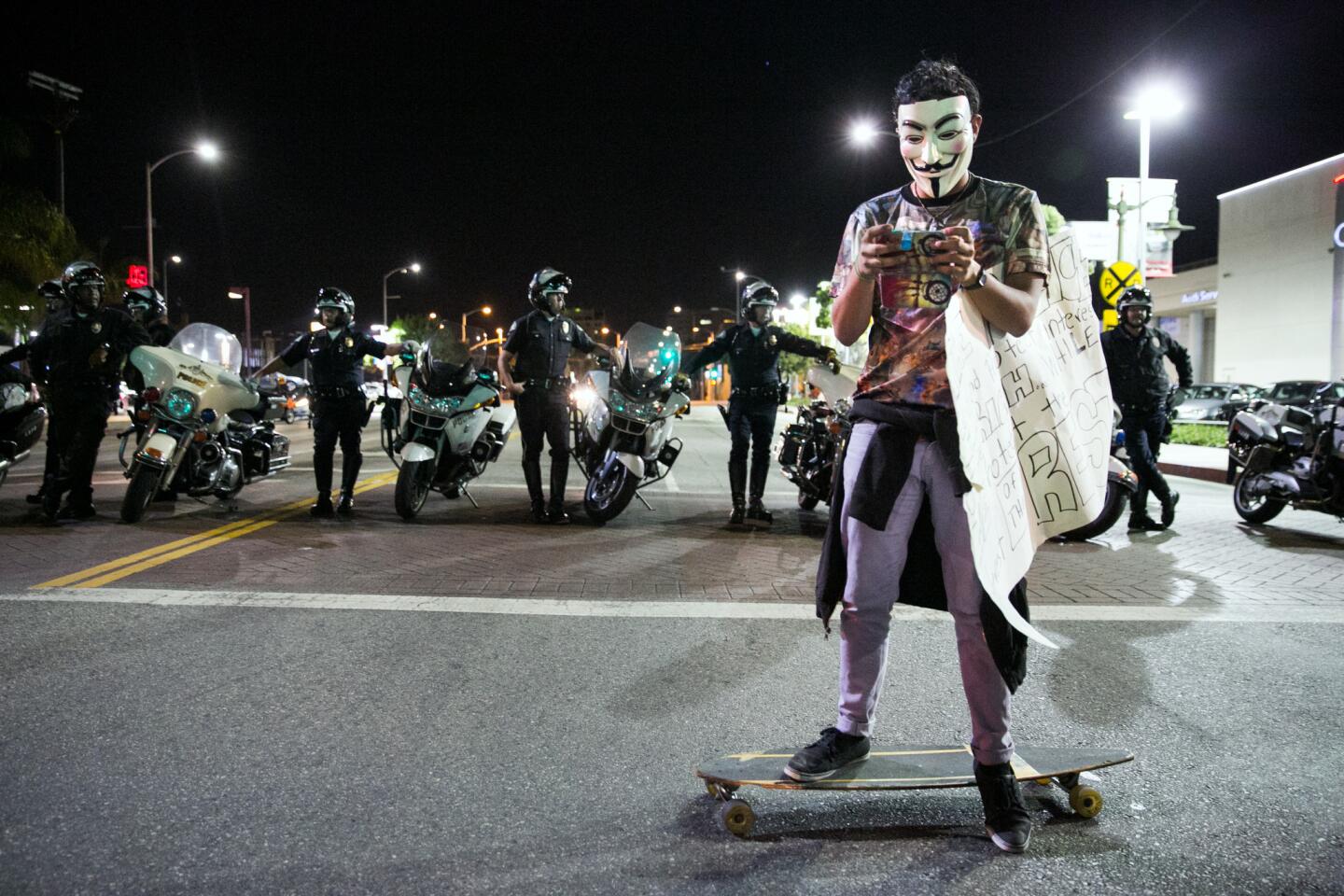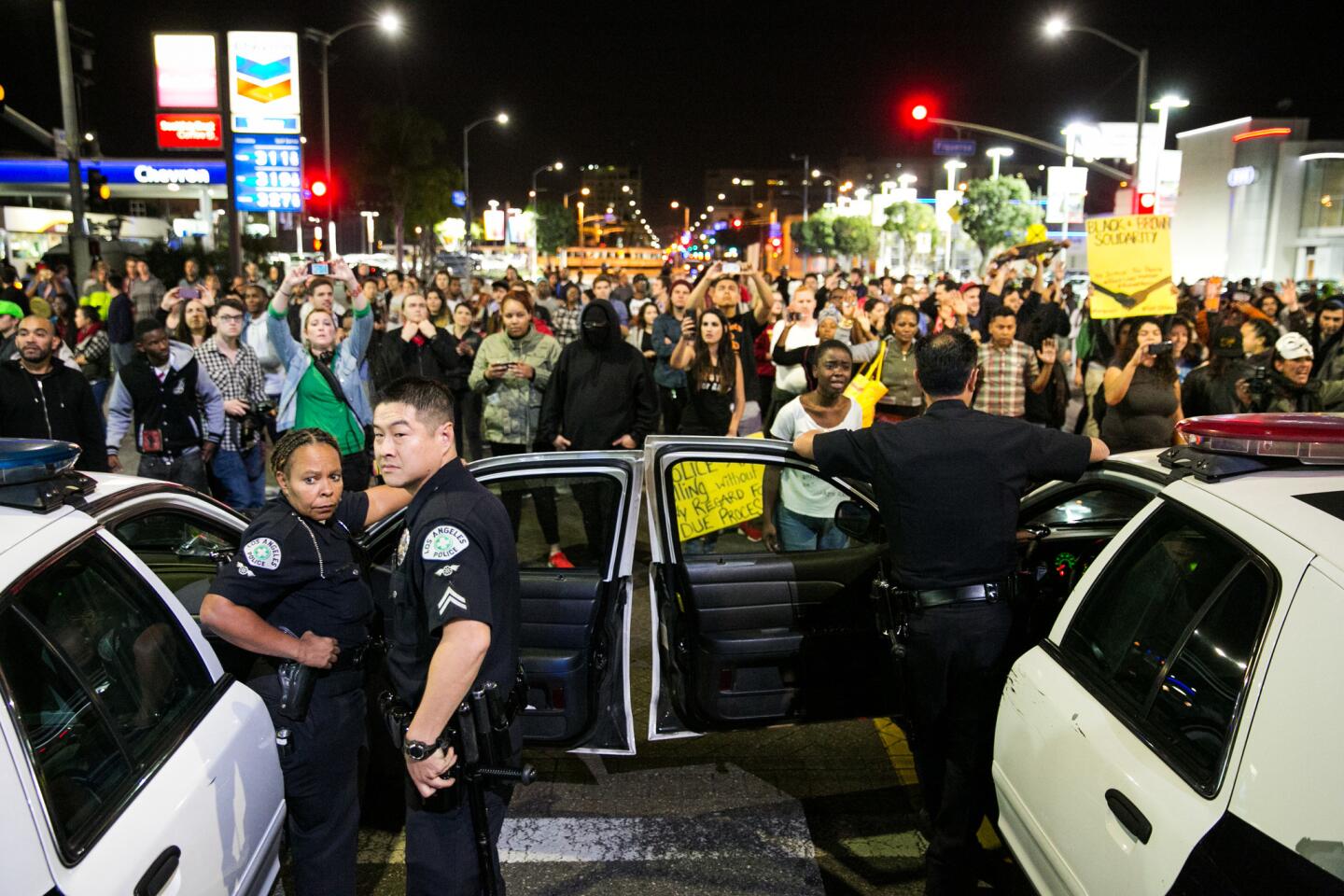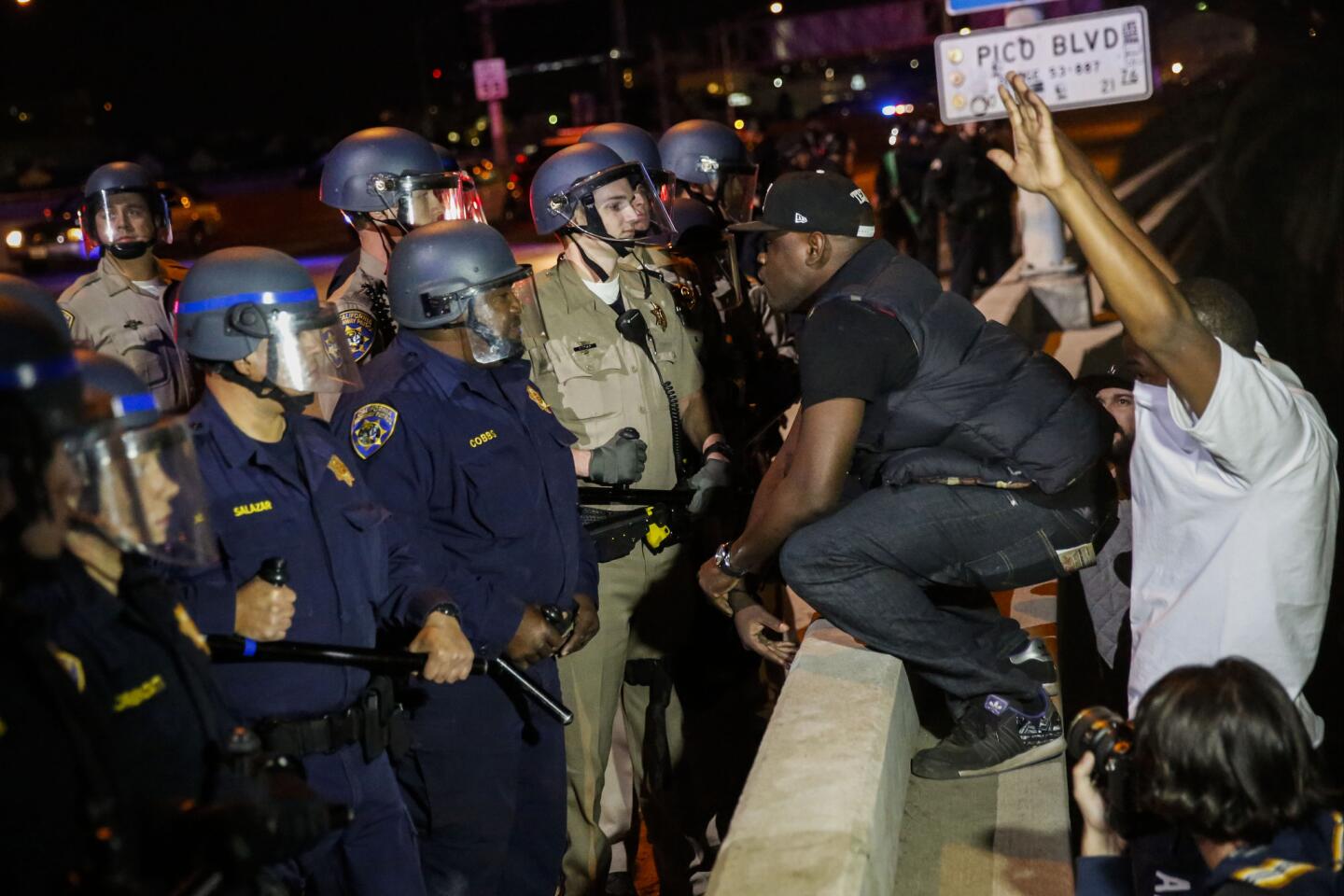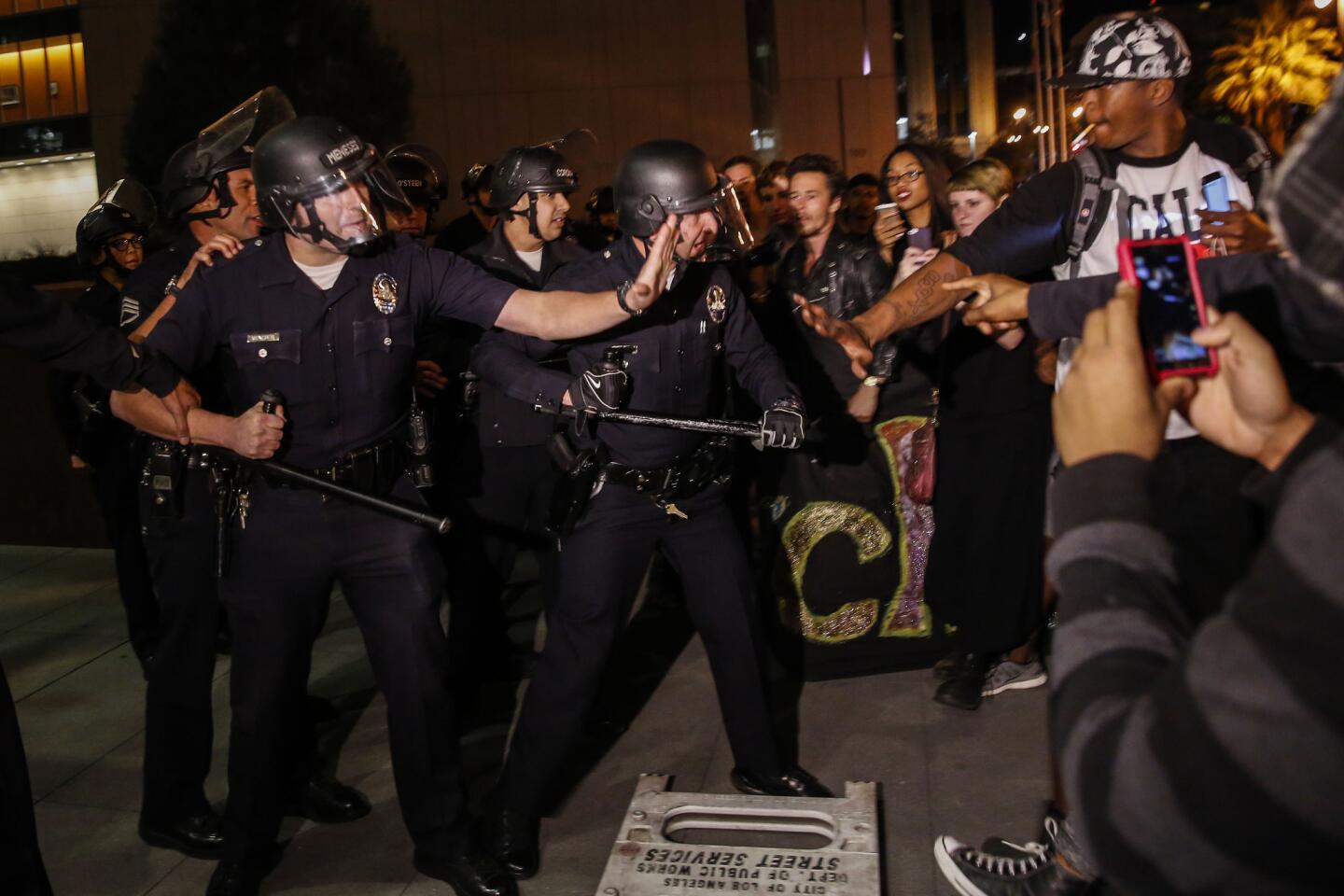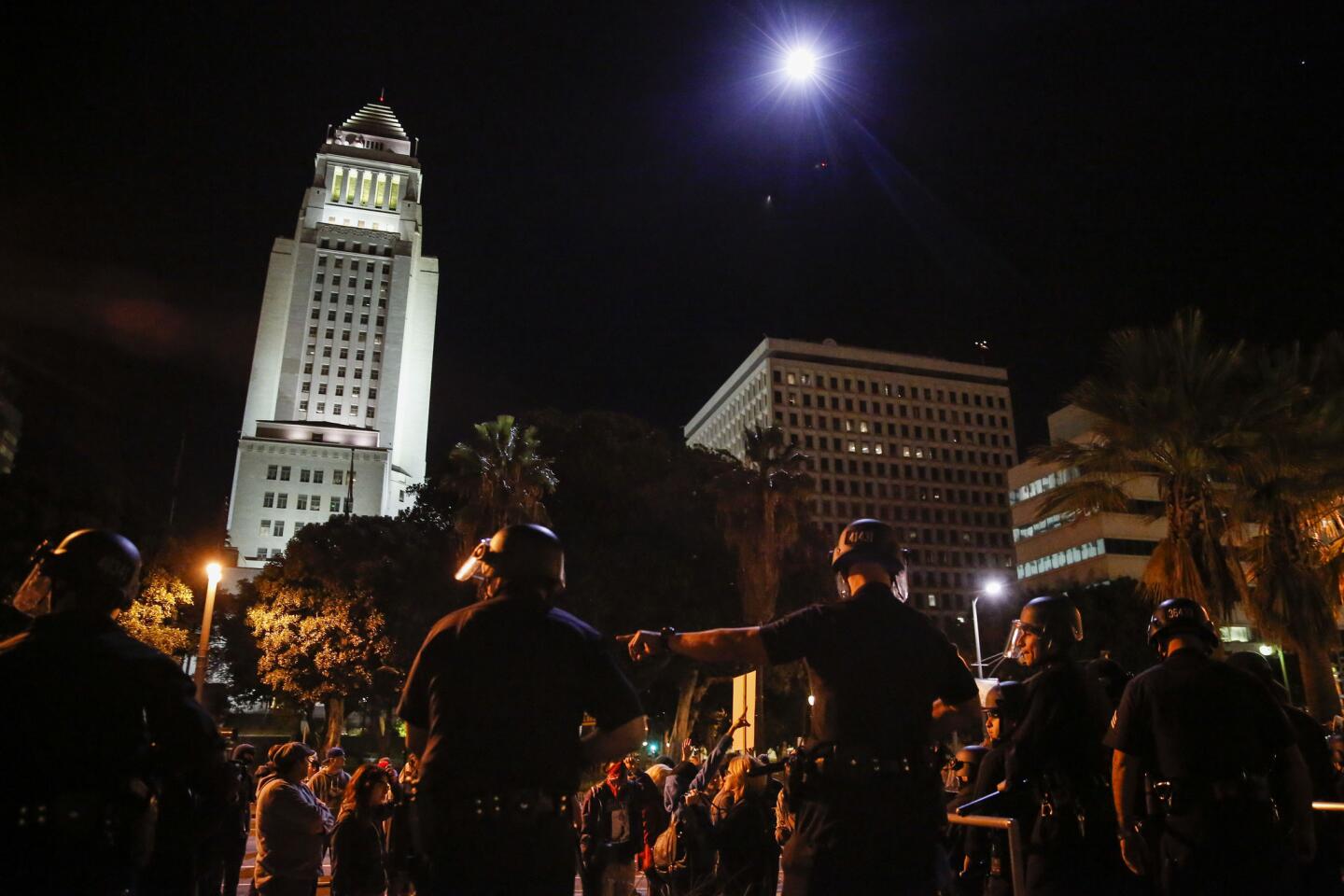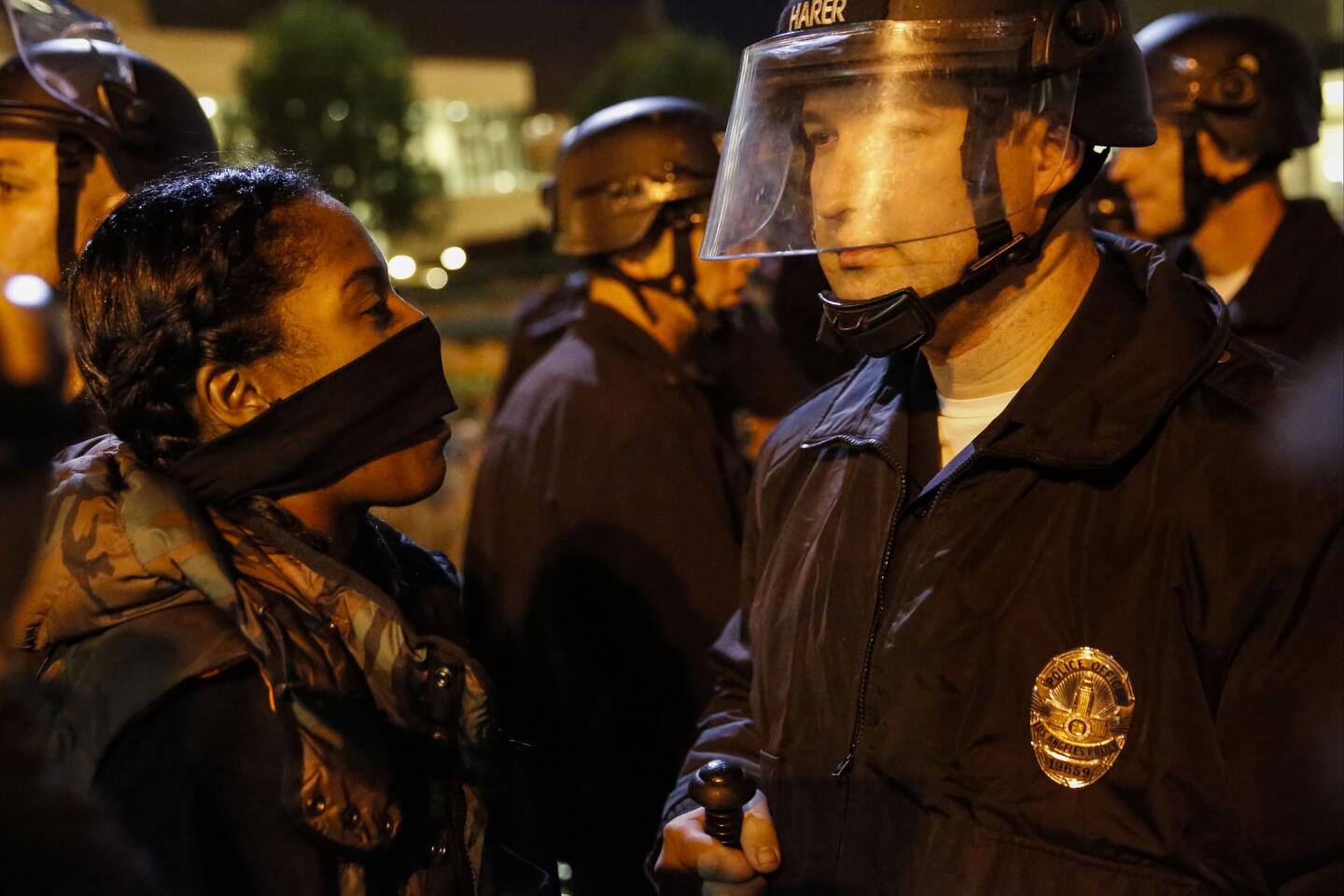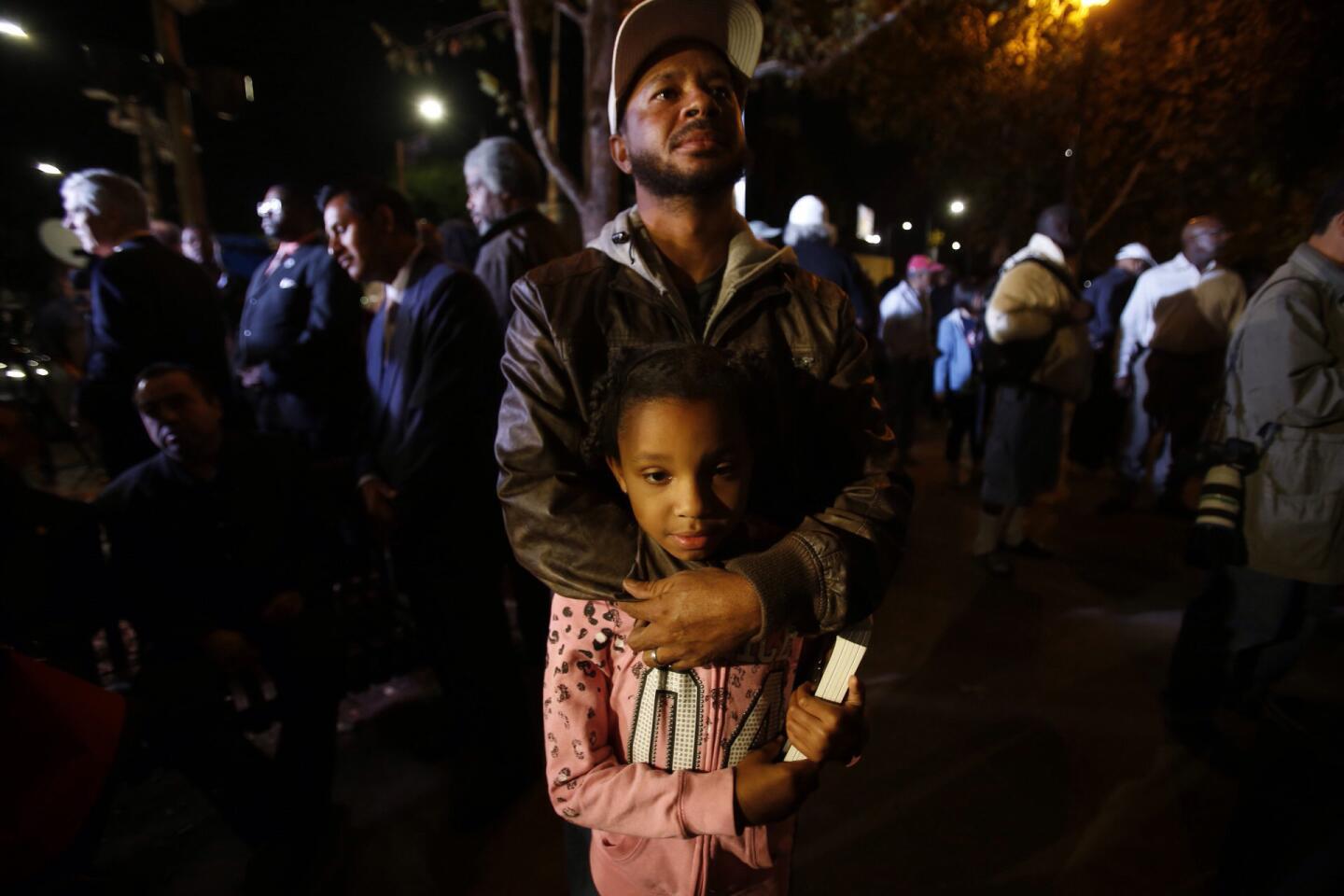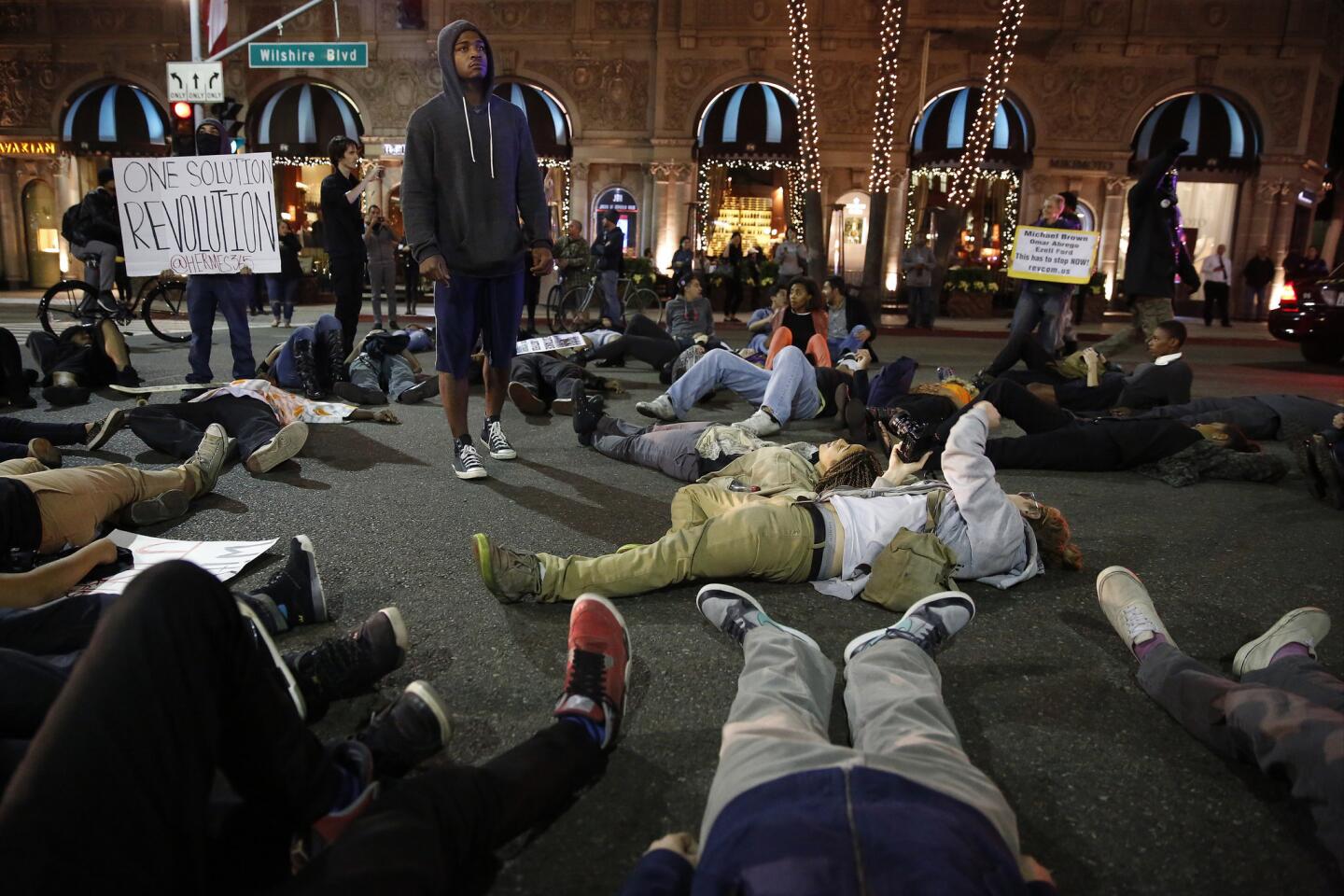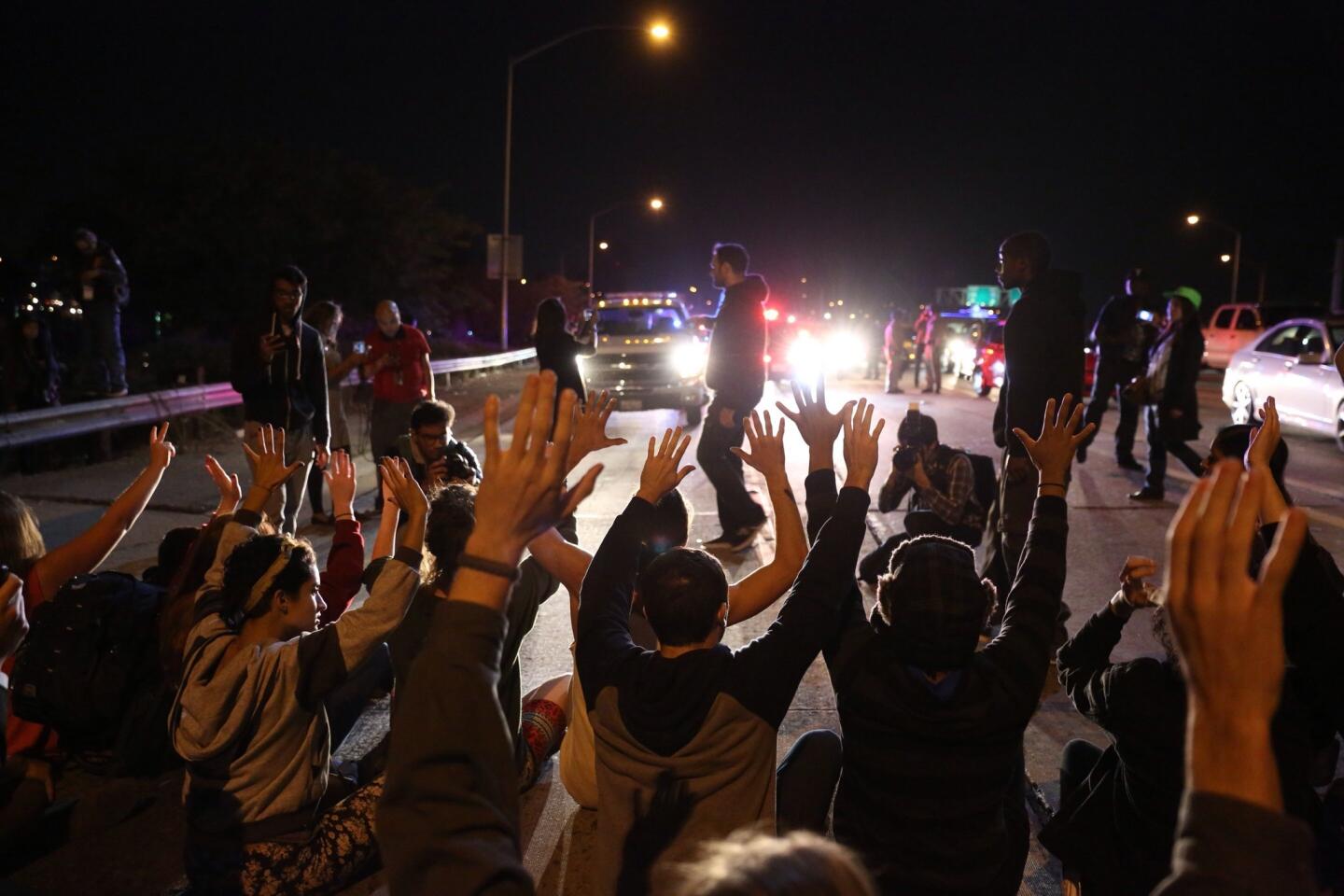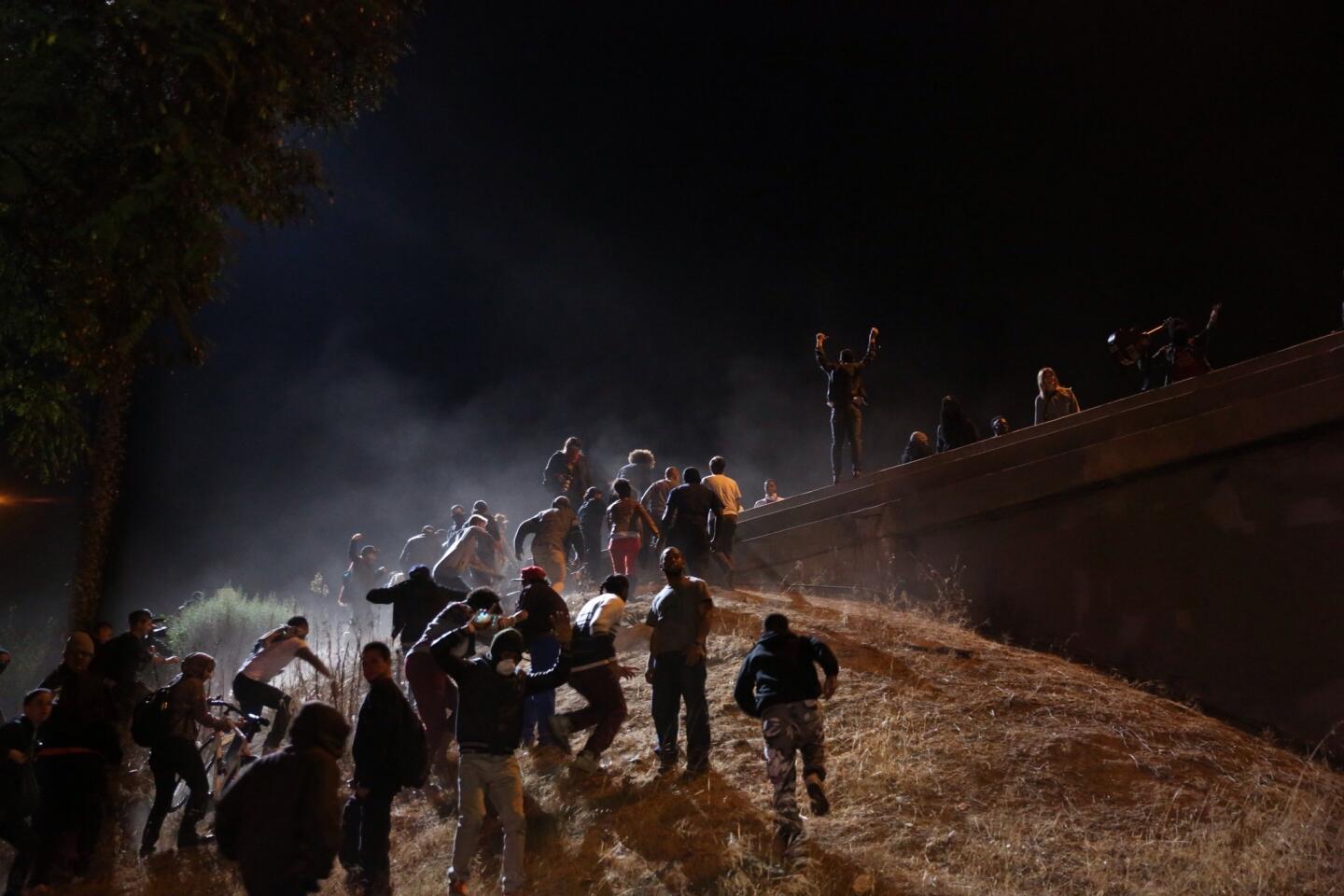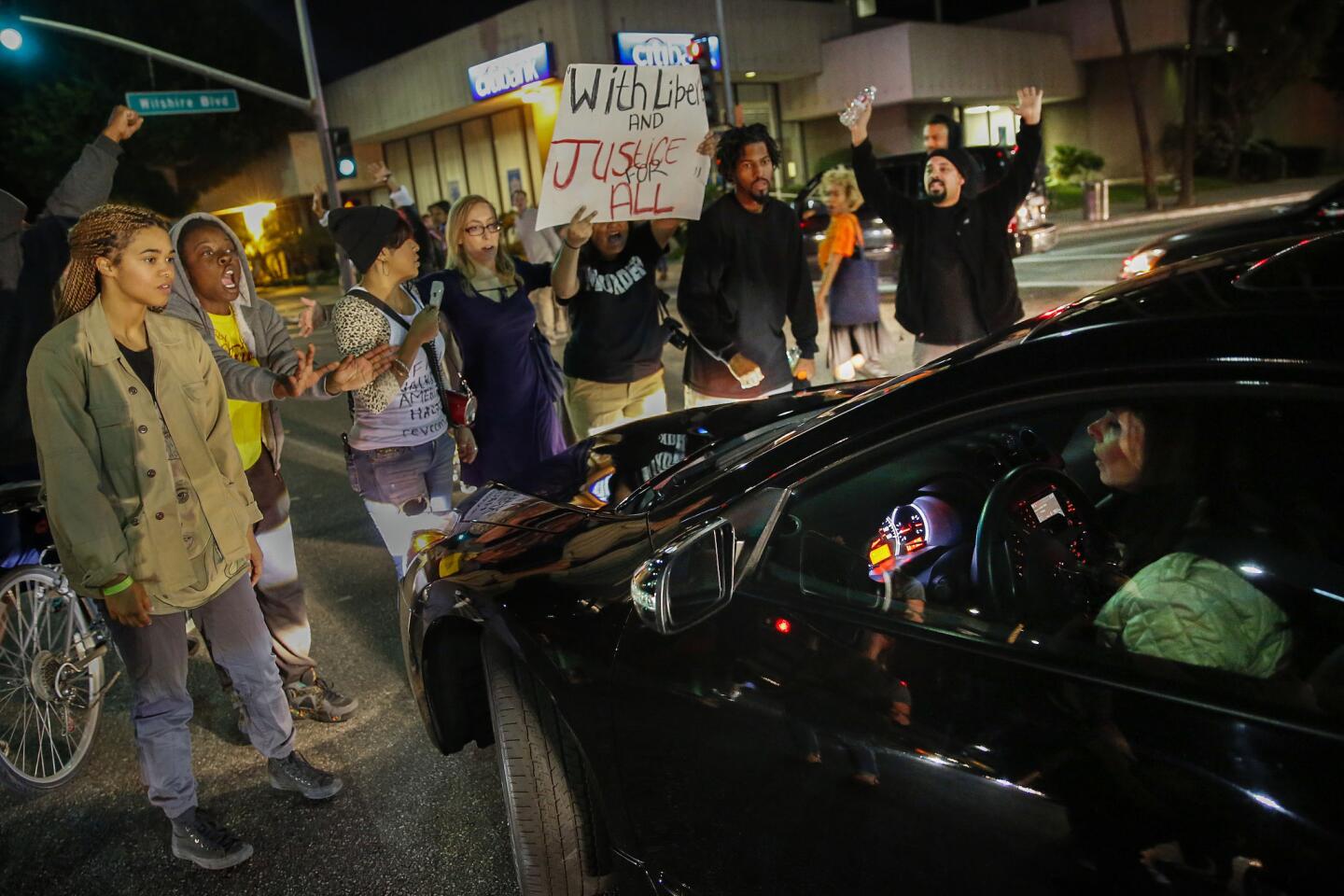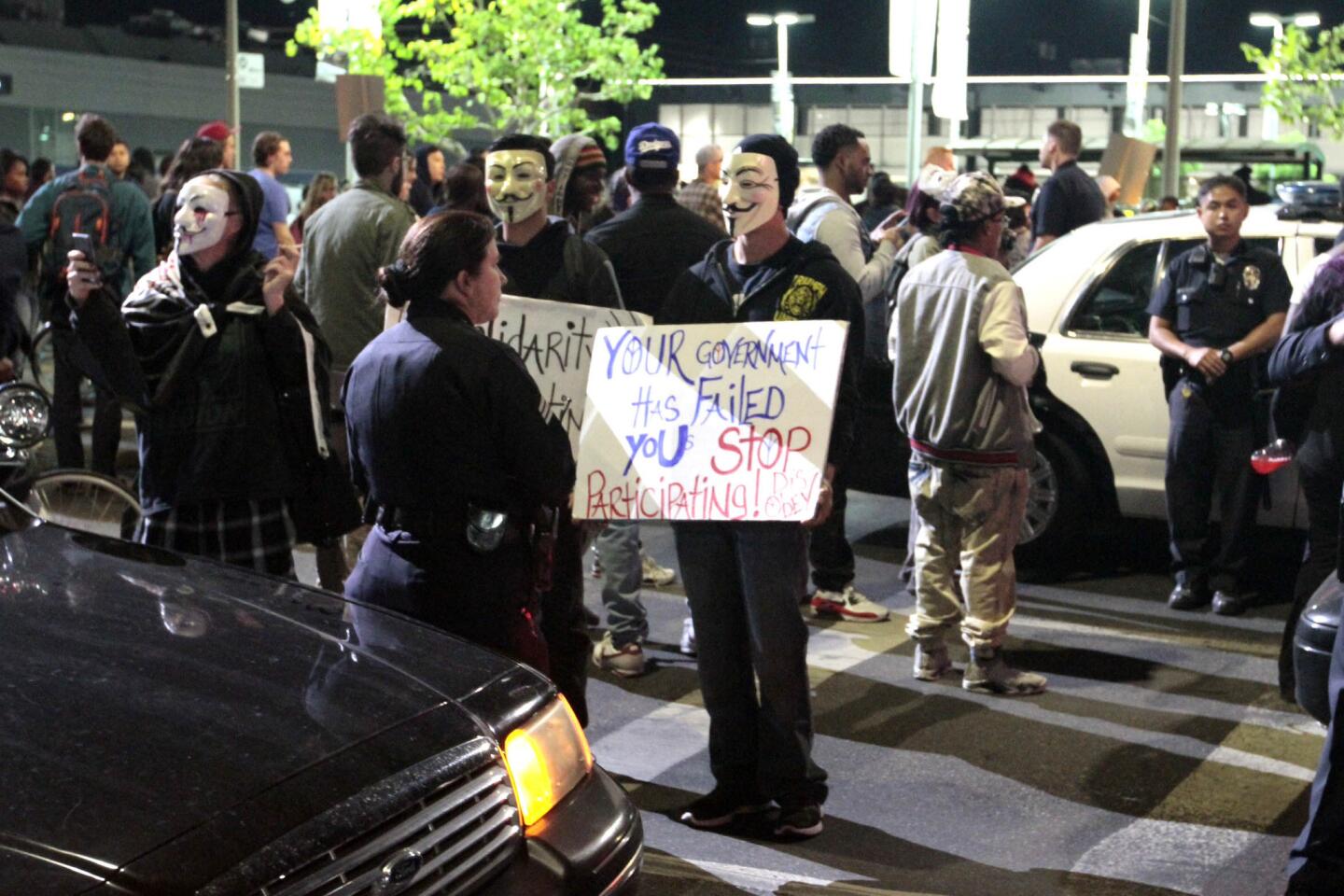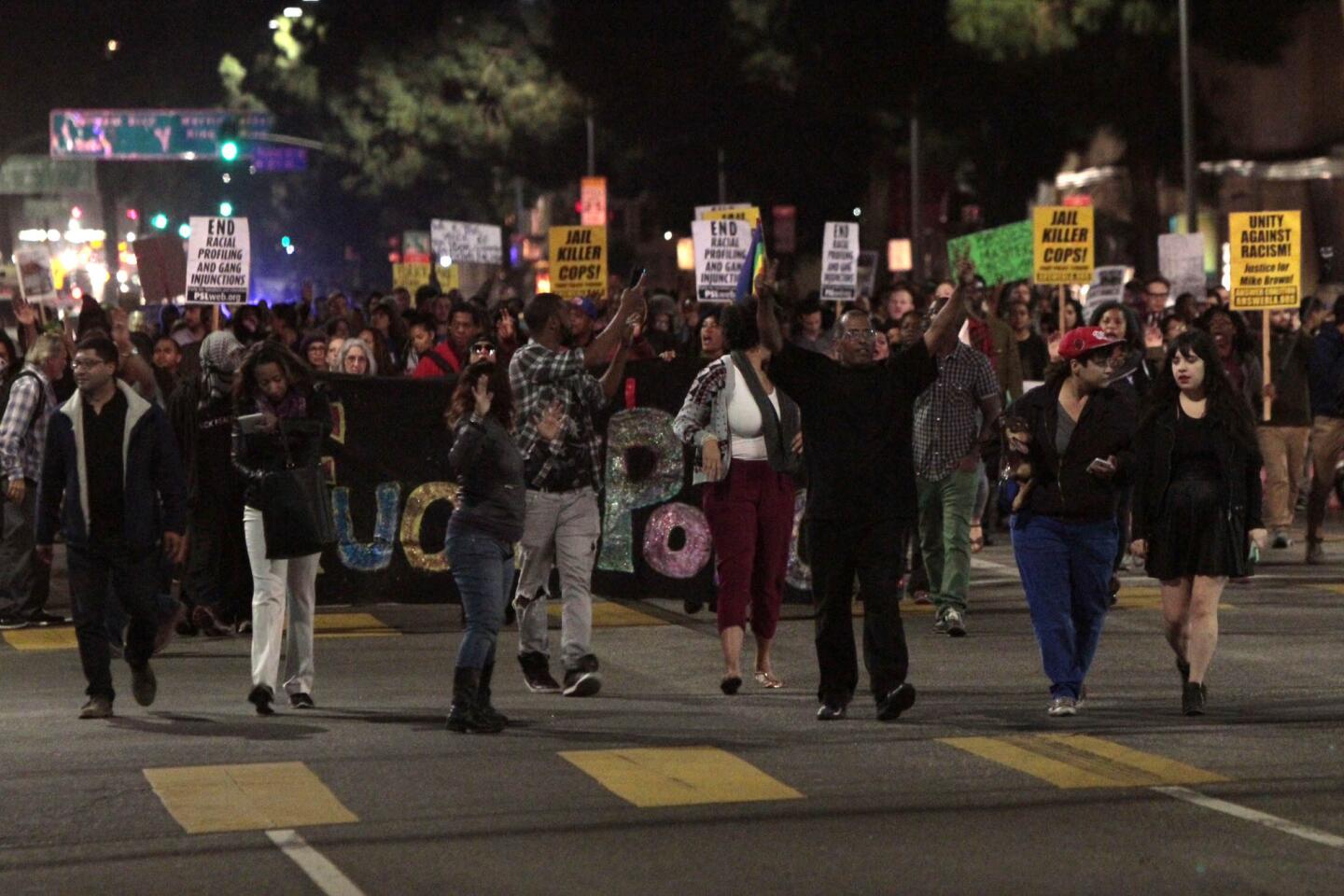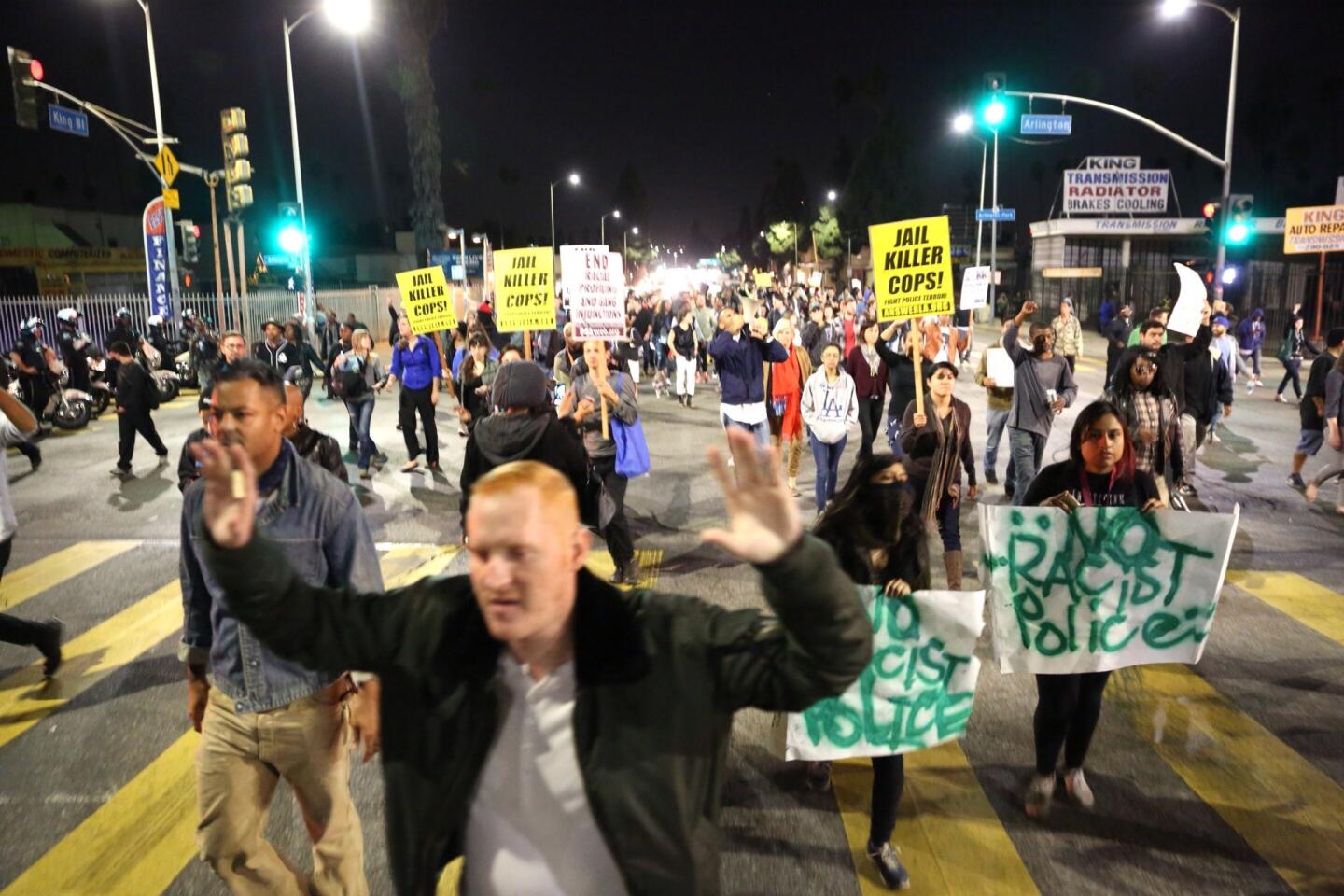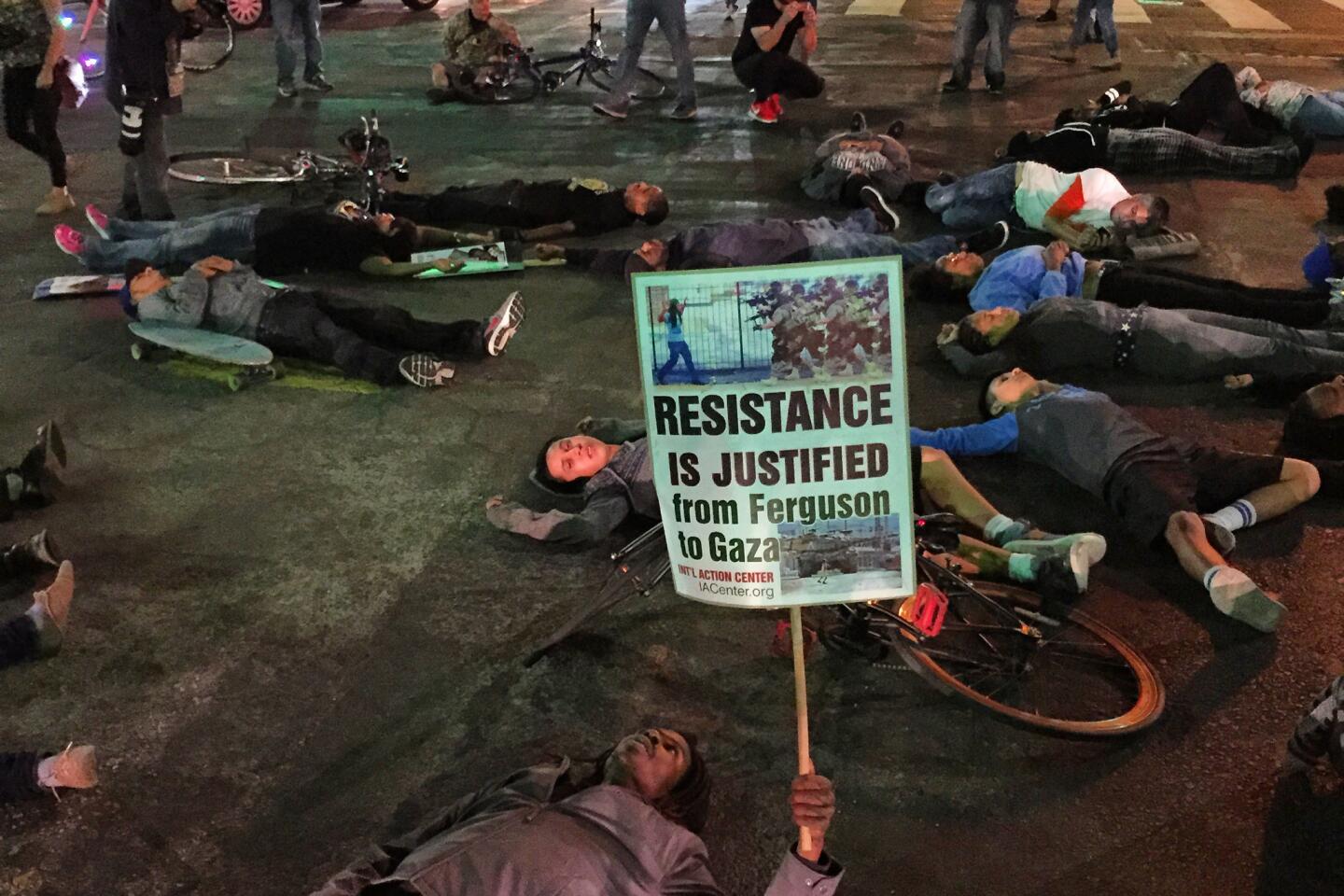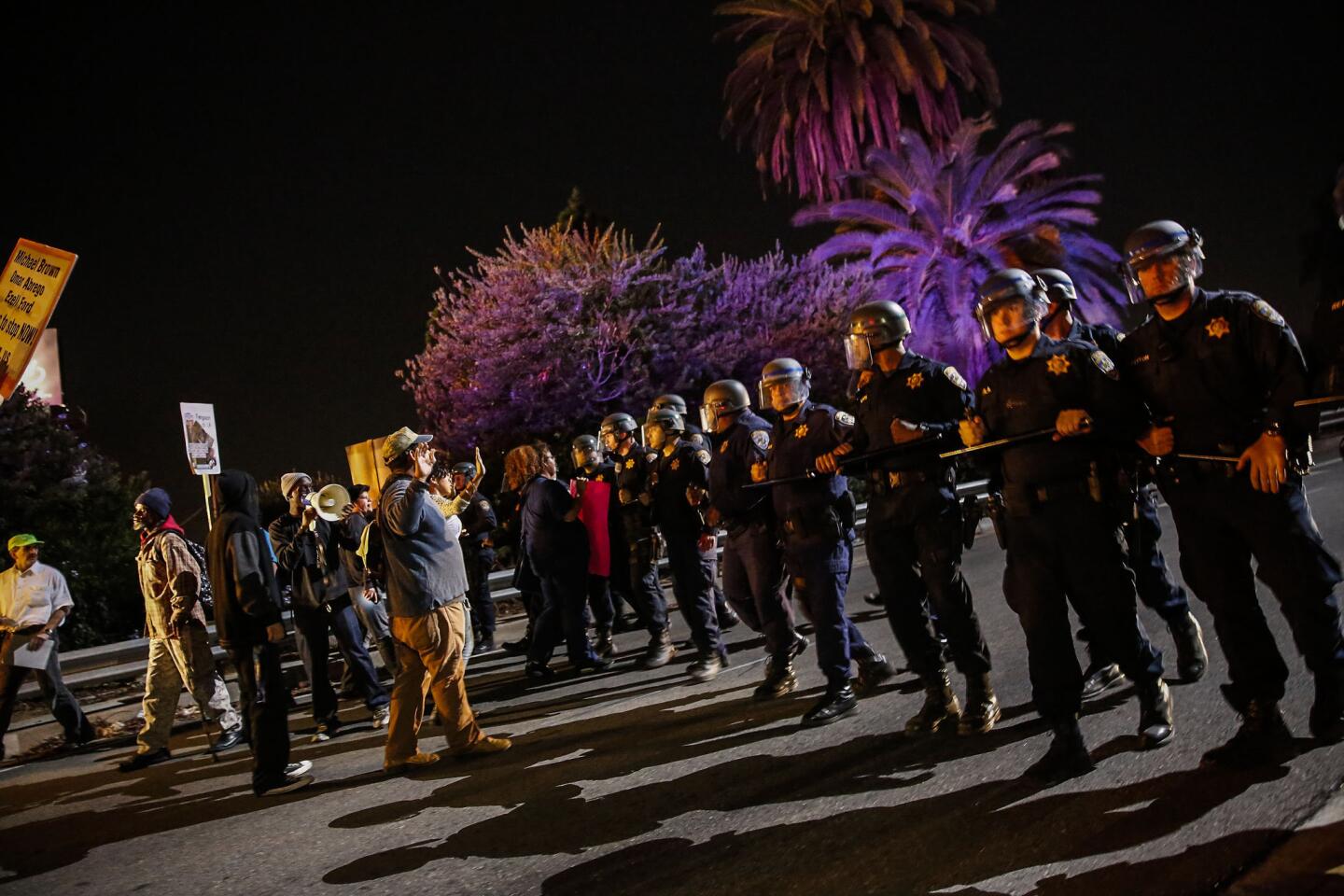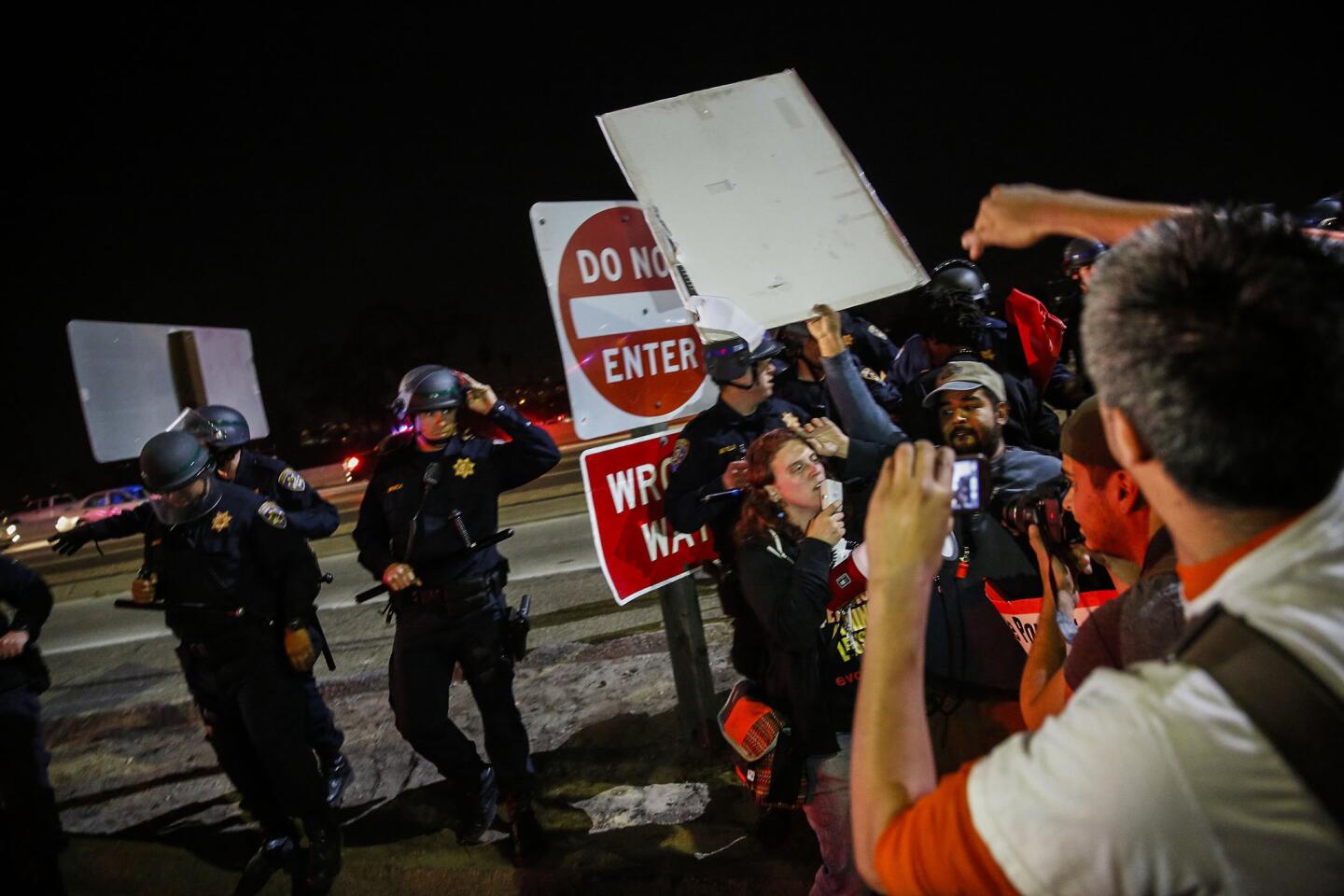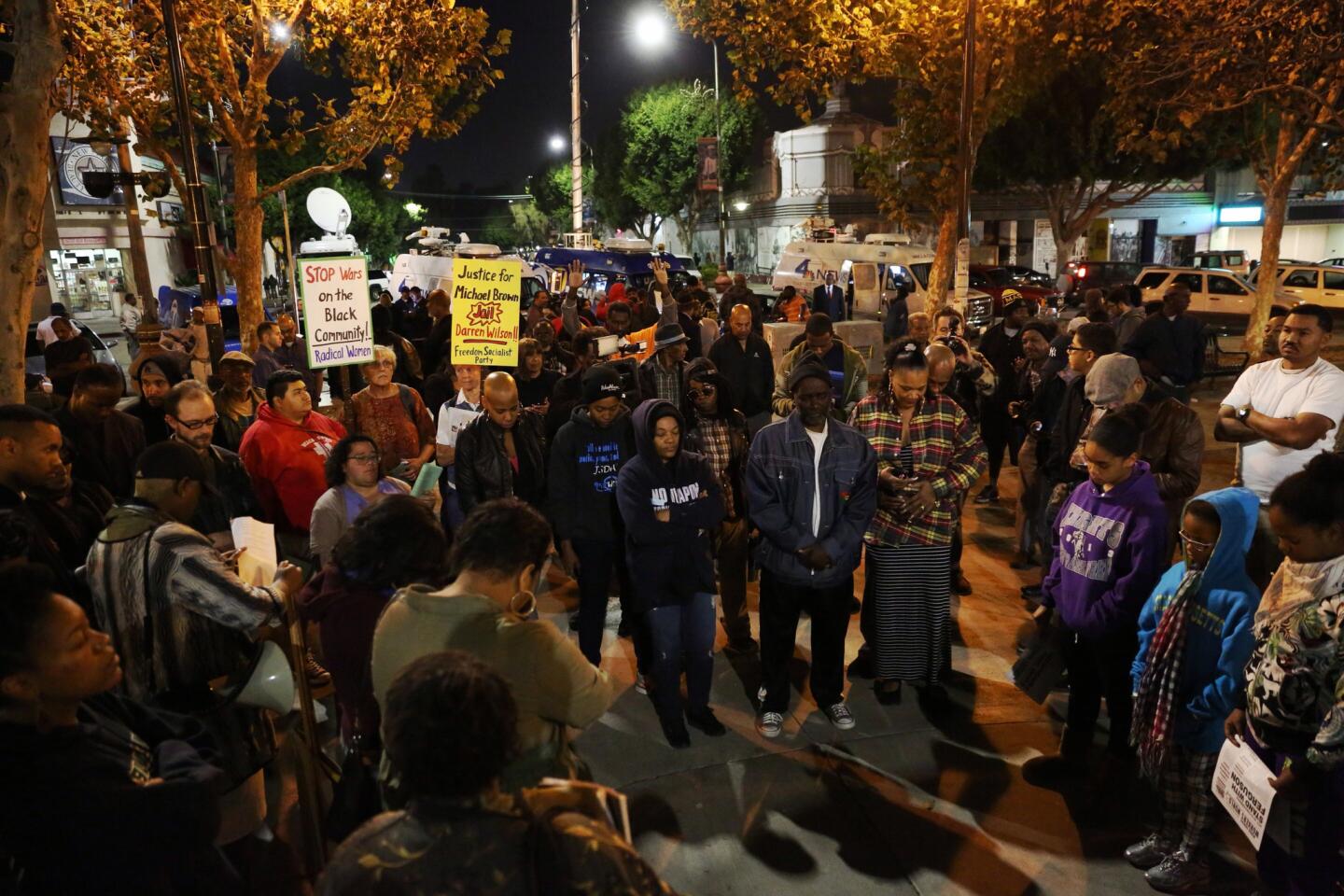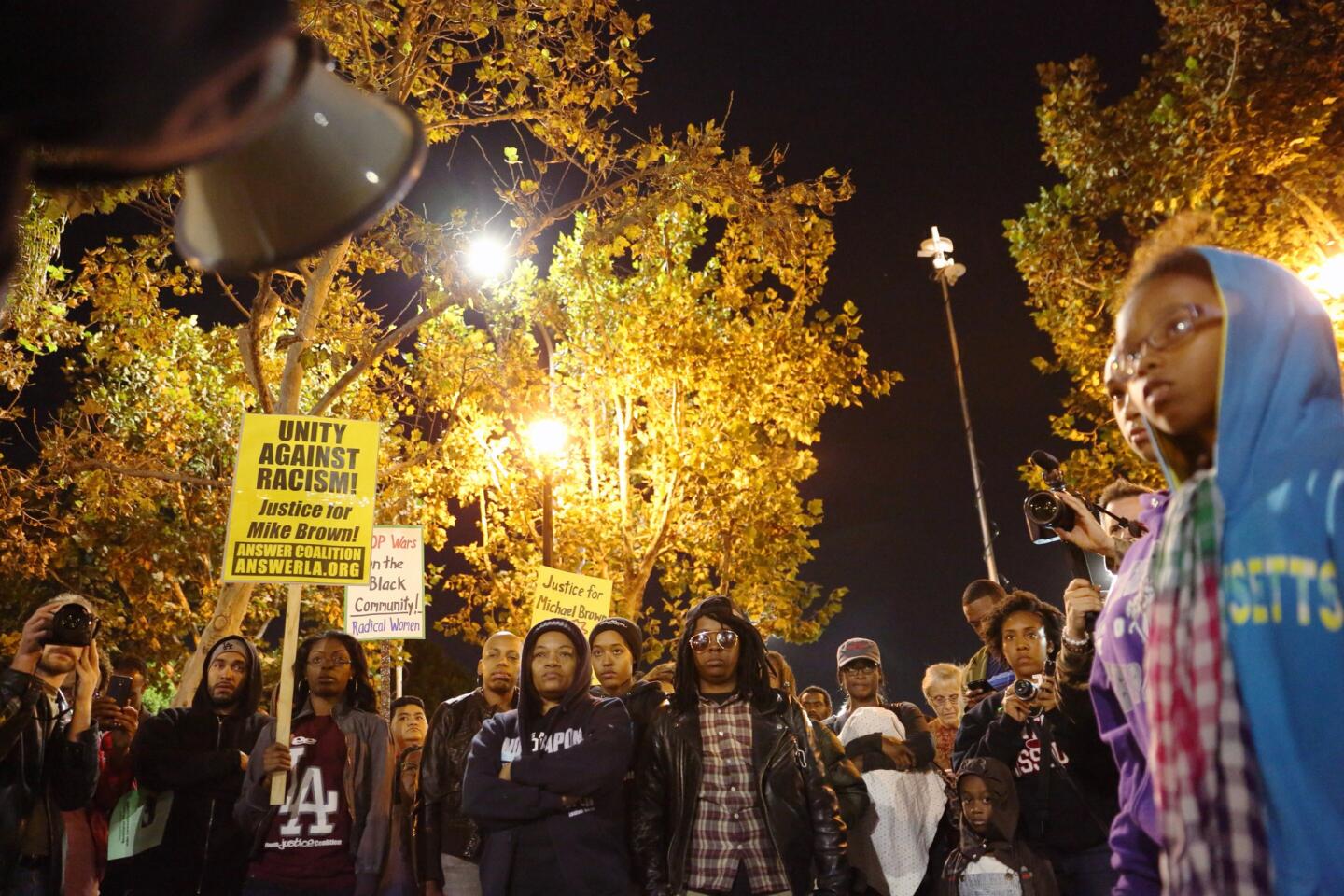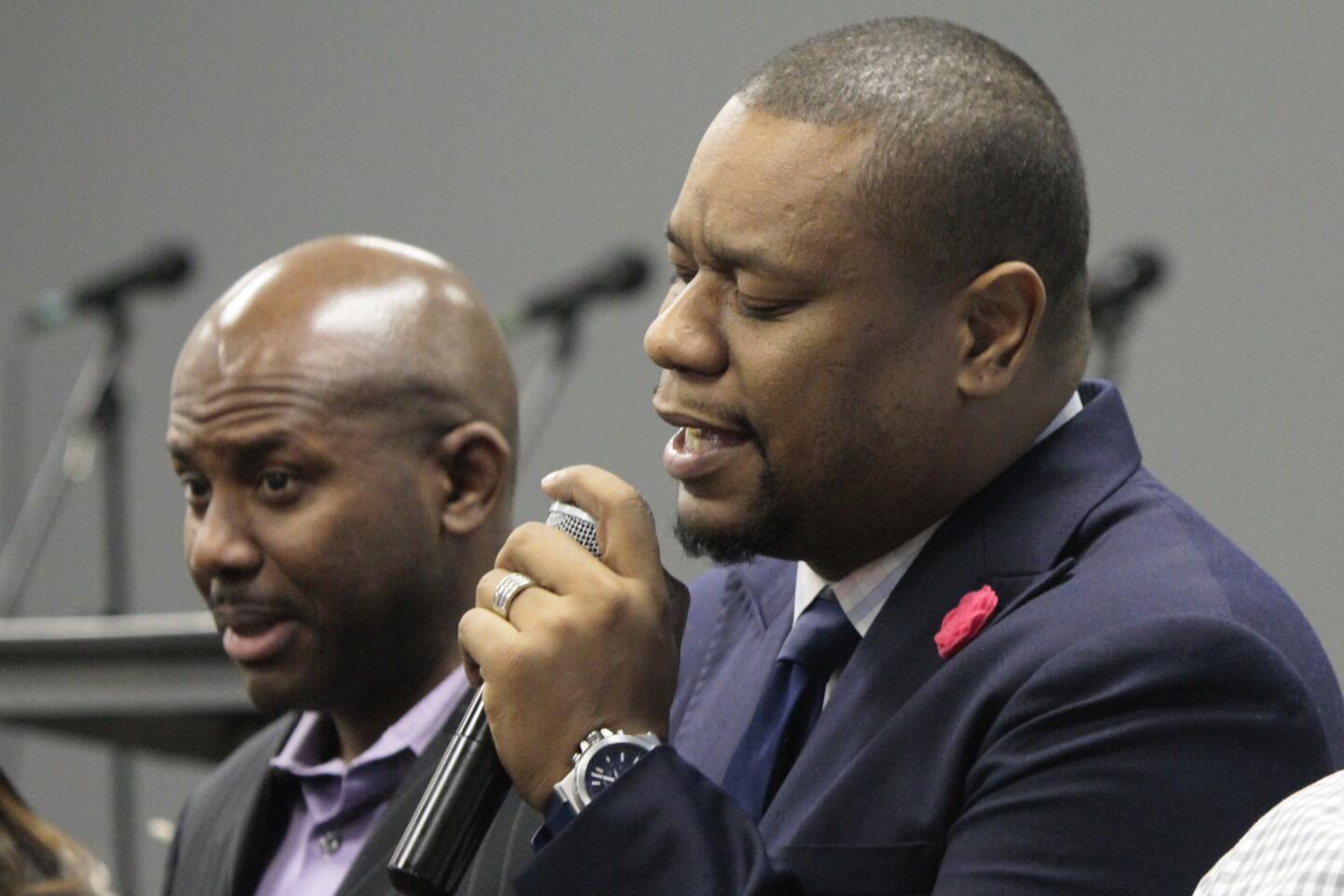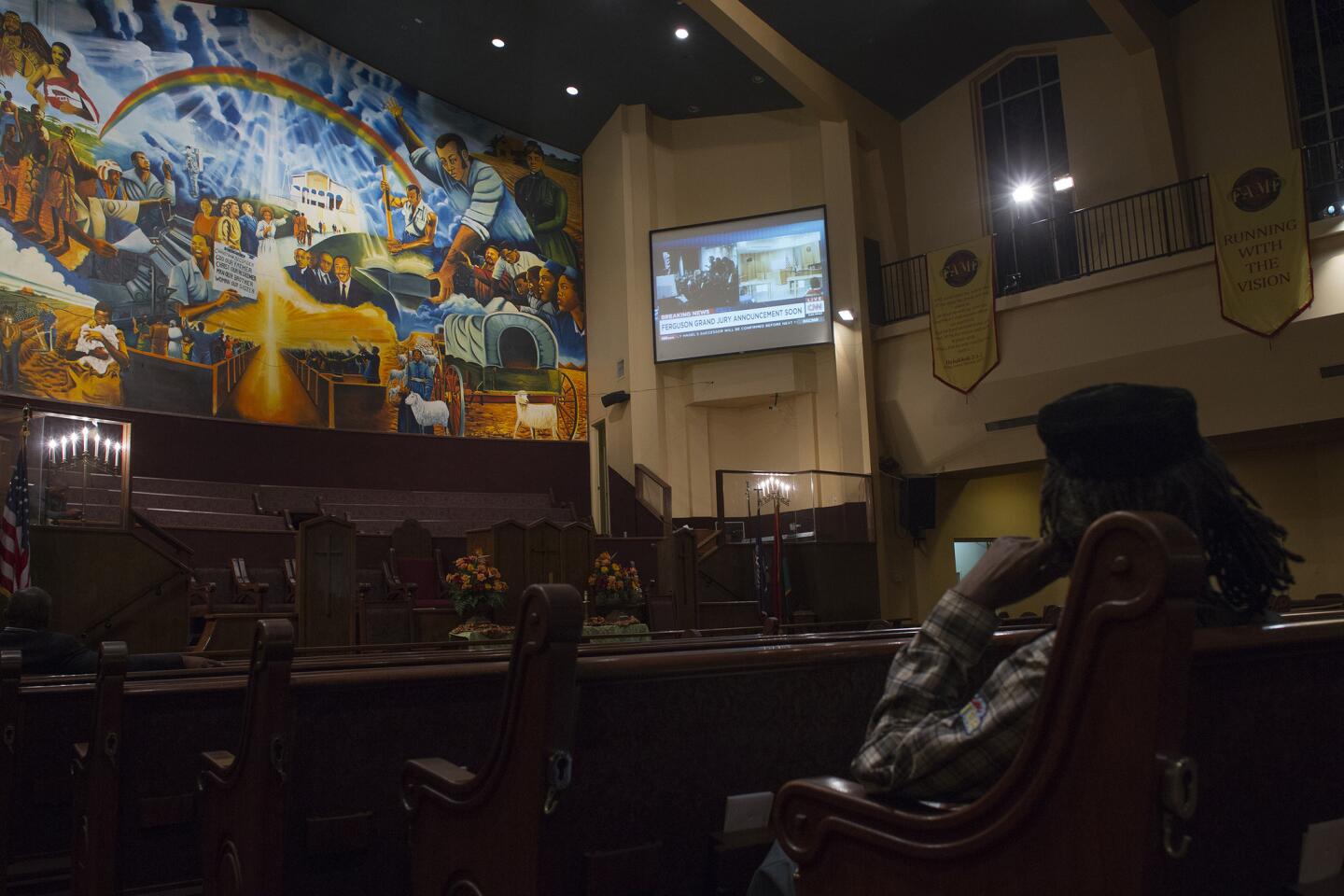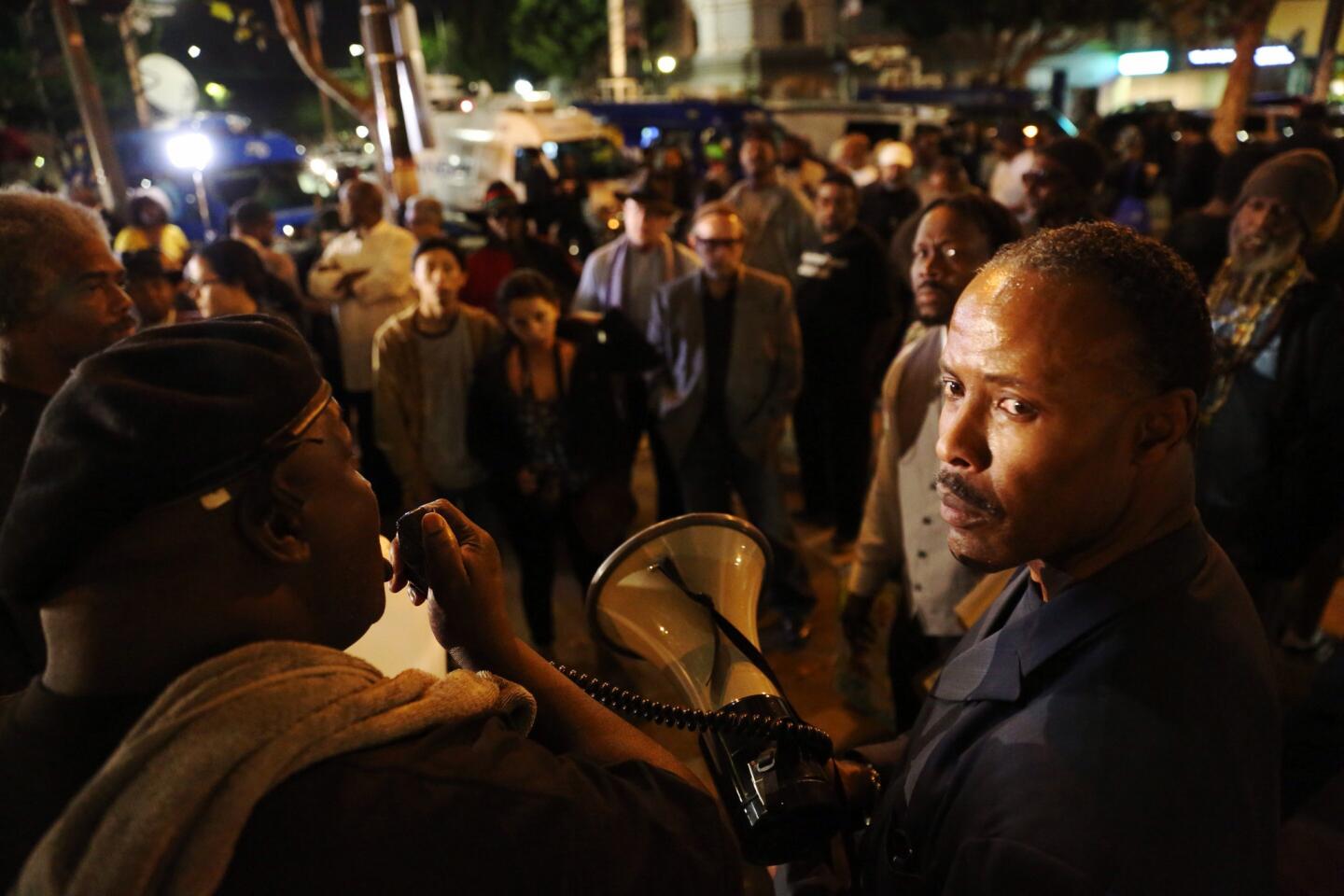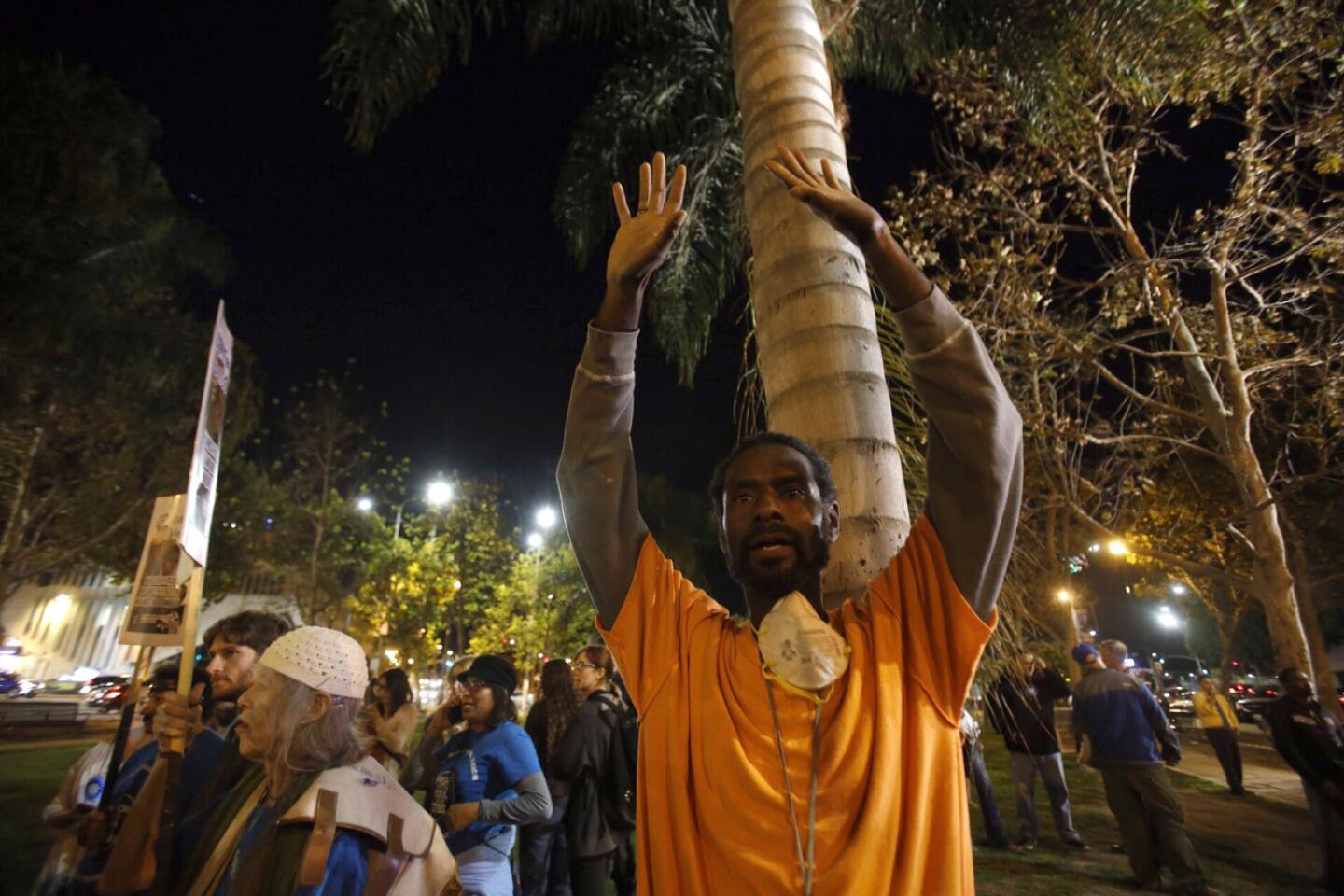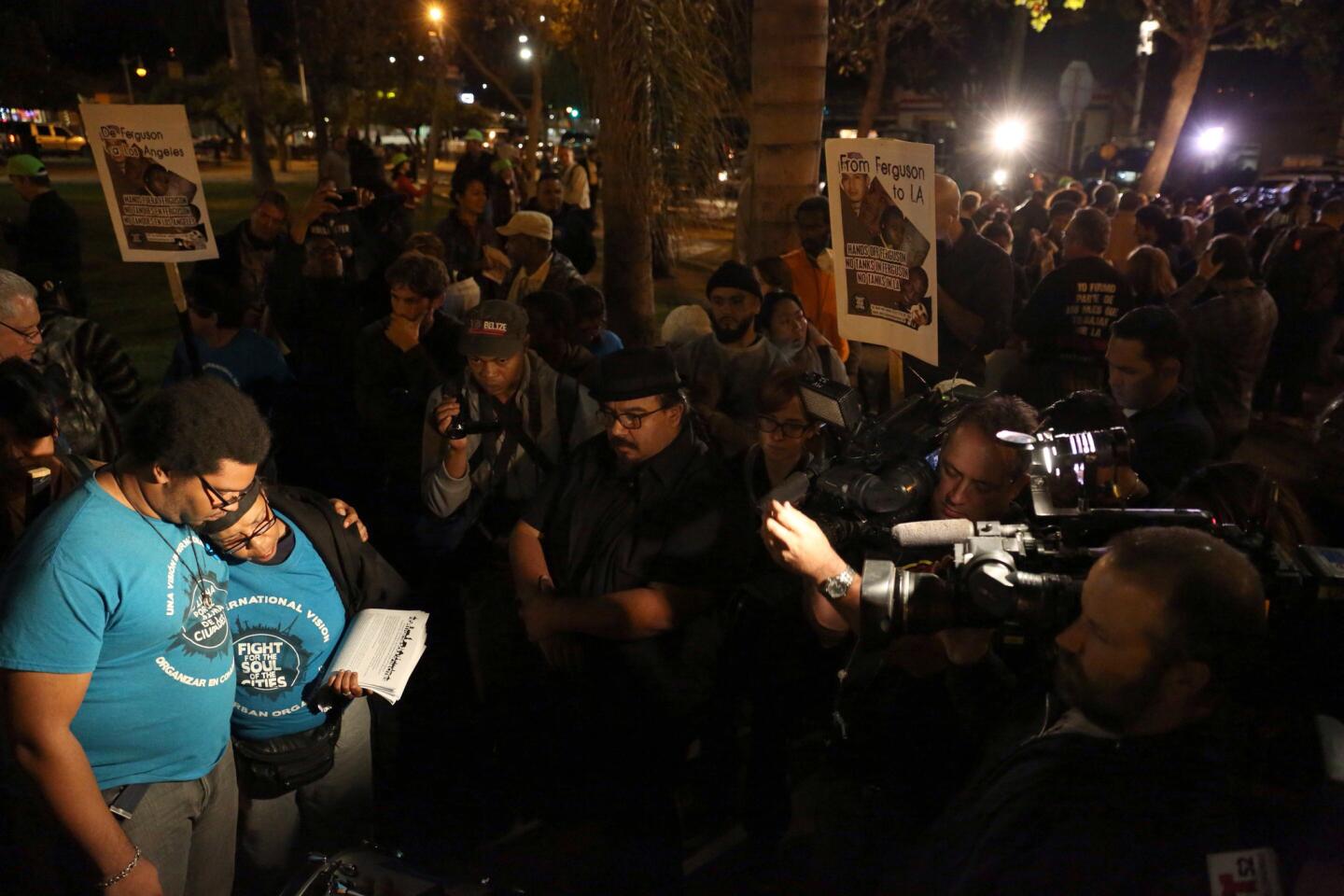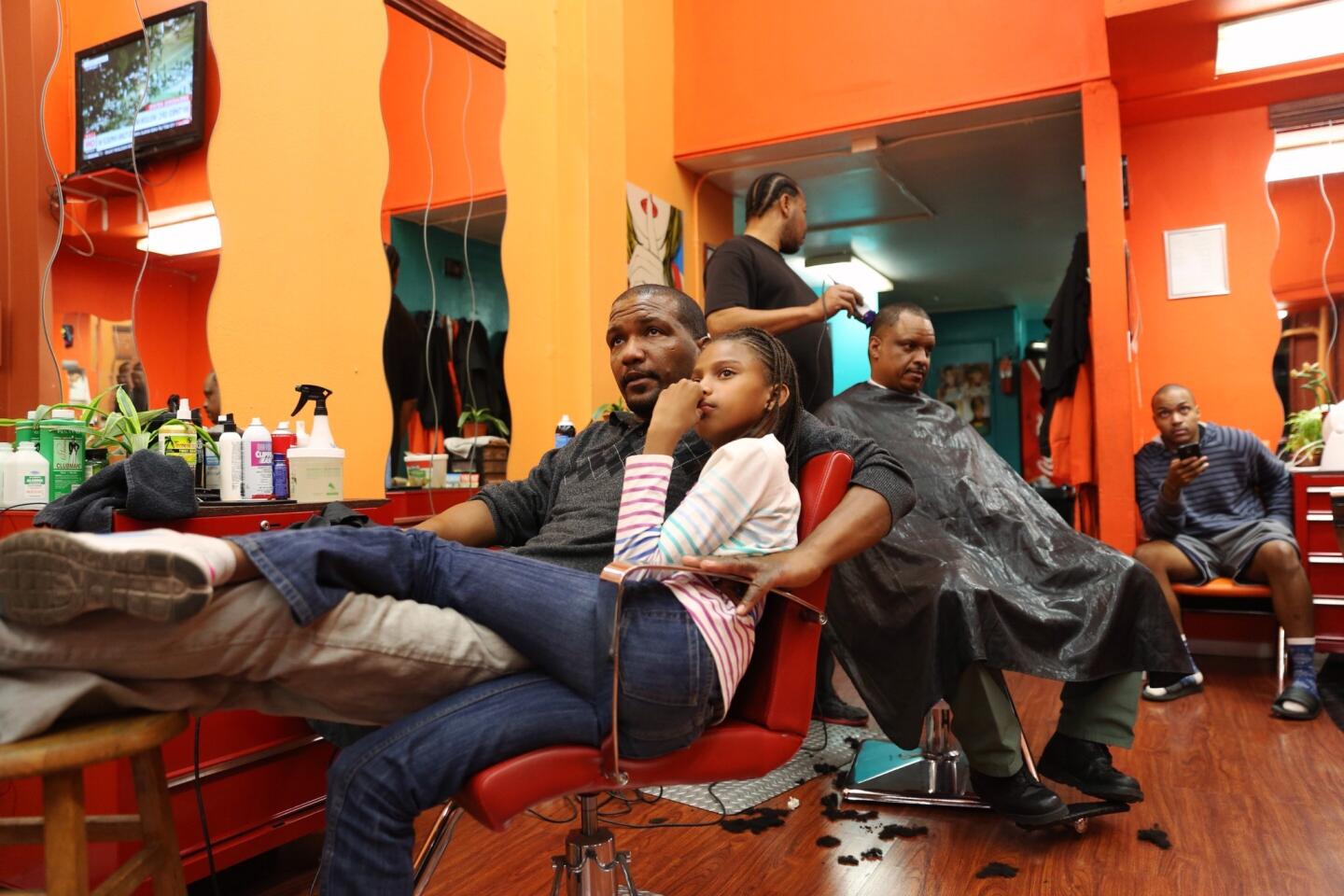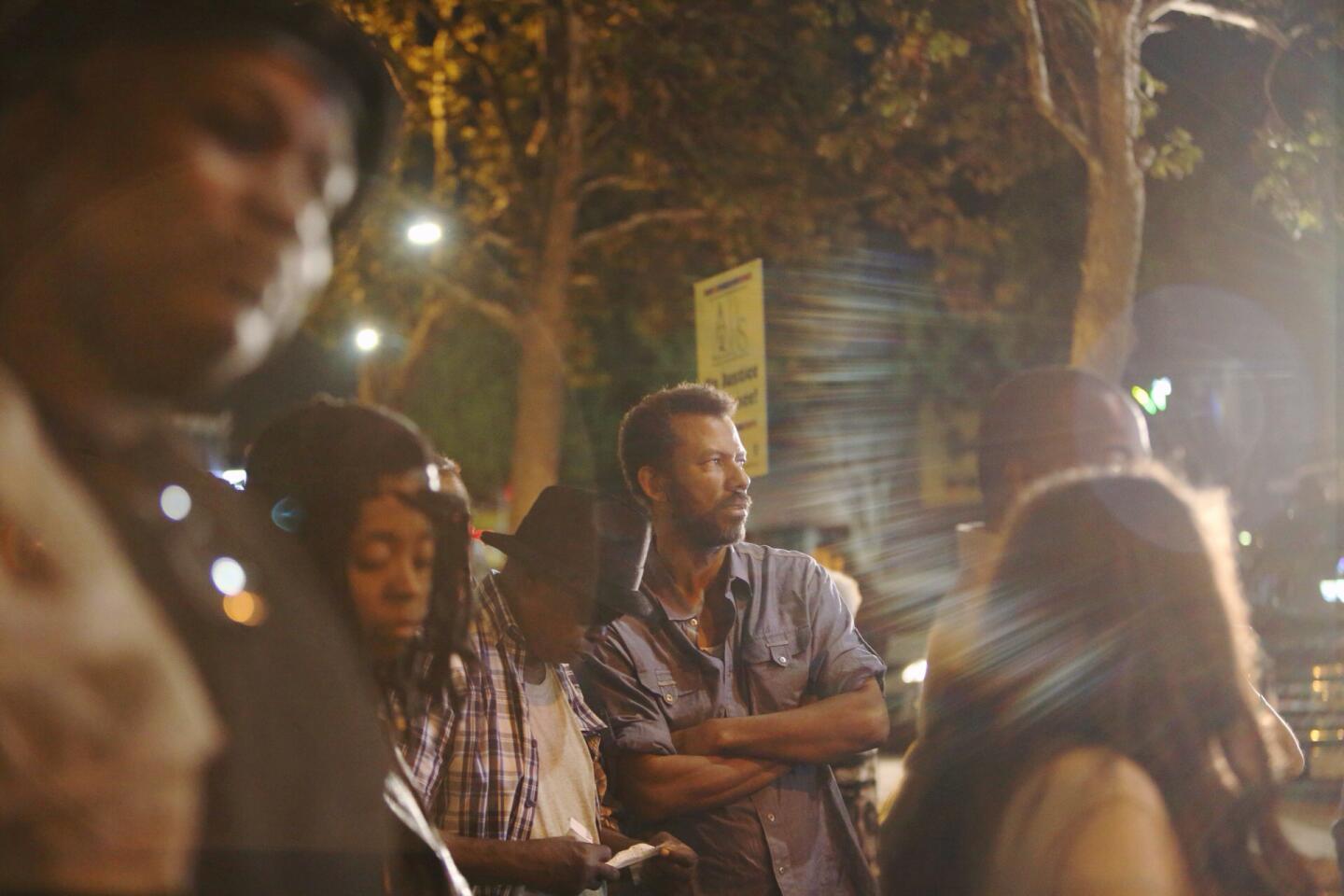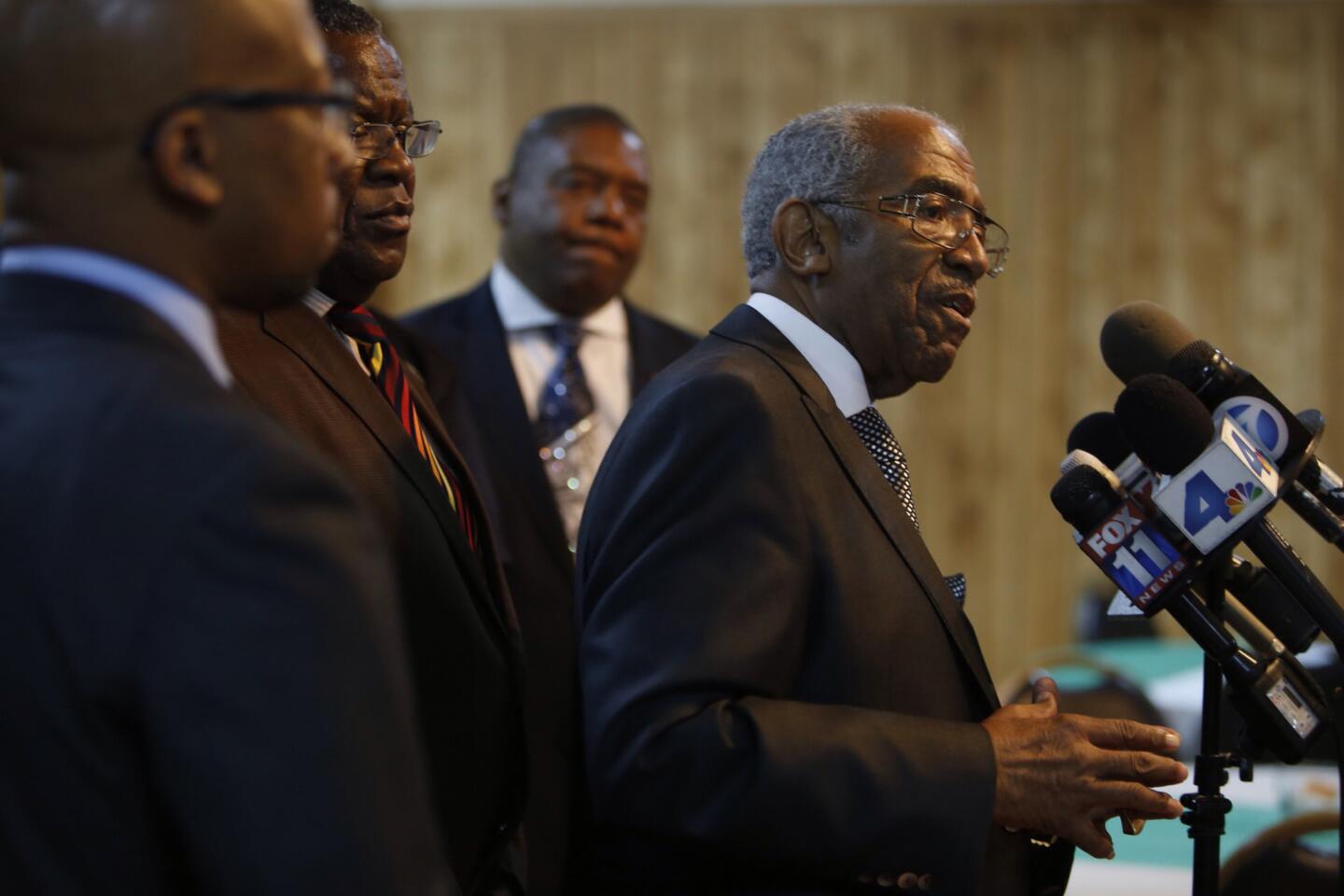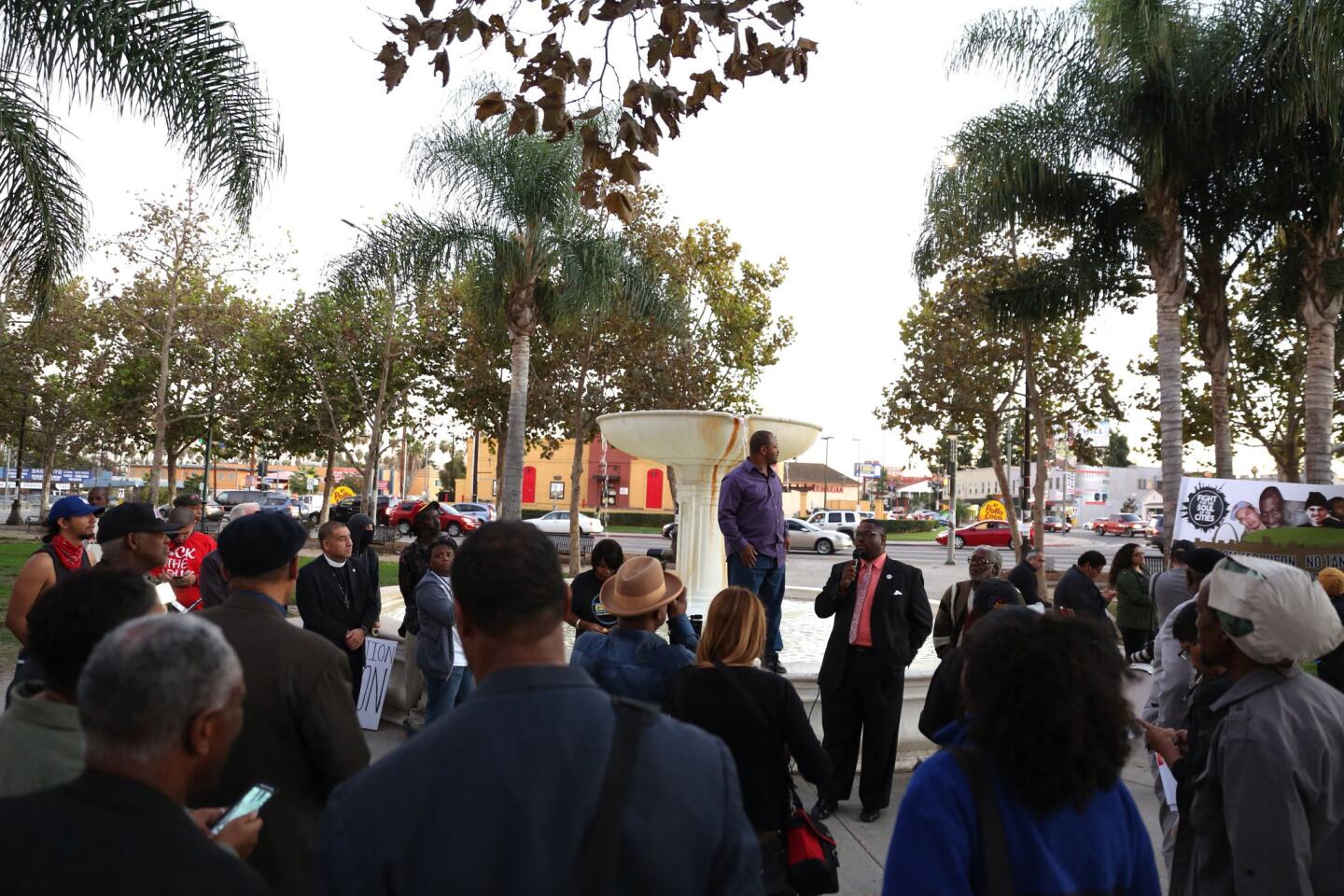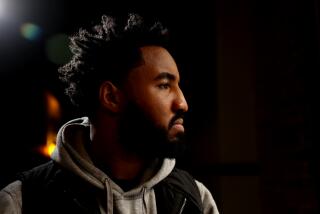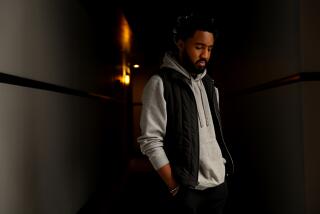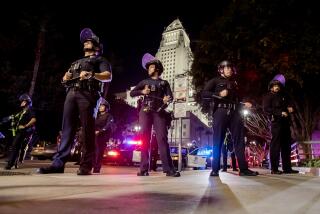Ferguson protesters say LAPD overreacted with arrests
Jasmyne Cannick blended into the throng of protesters as they reached 7th and Figueroa streets, the crowd swelling to several hundred. As the protesters moved forward, those in the front of the pack tried to outmaneuver the police by moving through downtown’s alleyways and side streets.
But within an hour, the most feverish of the protesters on the front lines Wednesday evening had scattered, leaving a group that quickly found itself boxed into a cul-de-sac near 6th and Hope streets.
“I was waiting for the dispersal warning, thinking, ‘OK, fine, I’m tired anyway,’ ” said Cannick, a political consultant and writer who has written critically about the LAPD’s chief and other top brass. “There was zip, zero.”
As protests continued in the wake of a Missouri grand jury’s decision not to indict a Ferguson police officer in the killing of 18-year-old Michael Brown, some of the hundreds of people arrested in Los Angeles said they had broken no laws and never heard the order to disperse. Several said they inadvertently marched into tight areas where they became easy marks for arrest.
On Thursday, with an additional 145 people jailed overnight, Chief Charlie Beck ordered all of the protesters released in time for Thanksgiving dinner.
“We were a little surprised that there was that many and frankly, a little disappointed,” Cmdr. Andrew Smith said. “All our actions are predicated on the behavior of the crowd. My understanding is that they gave multiple dispersal orders.… And [protesters] would move down the street and continue the behavior that we consider unlawful” such as “blocking streets, banging on cars.”
Times reporters heard police announce that protesters had four minutes to disperse or face arrest, but many in the crowd were chanting or had begun to walk away from the area, and it is possible that at least some did not hear the order.
Those being released were asked to sign a promise to appear in court but were not required to post bail, Smith said. Any protesters with warrants out for their arrest were not eligible, he added.
About the time of Beck’s announcement, two bail bondsmen lingered outside the Metropolitan Detention Center downtown. They offered their cards and services to those who came to pick up their friends and family members — only to learn that the detainees had been released without bail.
Police had been monitoring the protesters since about 3 p.m. Wednesday. In the coming hours, members of the group would block traffic, lie in the street, and at one point, attempt to take over, the freeway, Smith said.
Authorities eventually received information that the group was headed to the Staples Center, so police stopped protesters at 7th and Figueroa, Smith said. Authorities used a sound truck to order the group to disperse, and after an attorney informed officers that some protesters had not heard the order, police gave the order a second time, Smith said.
“Nobody should have been surprised when they got taken to jail last night,” Smith said. “We gave them warning.”
Charmaine Chua, 29, of Los Angeles, spent the night in the Van Nuys jail and got a ride downtown Thursday morning to await the release of a friend who had also been arrested.
She said she felt penned in by police near 7th and Figueroa, and was taken by surprise when LAPD officers began making arrests. Chua insisted that authorities did not issue an order to disperse.
“We were made an example of. The LAPD set out and intended to arrest us,” she said, adding, “I’m even more determined to keep organizing, and keep showing that the system that we live in is broken.”
Marcos Mata, 23, of Los Angeles took the bus downtown Thursday morning after spending the night in a holding cell at the 77th Street Regional Jail. His wallet, phone and keys are still being held by LAPD, he said, and he was told he wouldn’t be able to retrieve them until next week.
Mata said he felt the arrests were an overreaction because protesters were generally well behaved. They marched and chanted, he said, but did not destroy property, he said.
“It was completely unnecessary,” he said of the arrests. “The only crime I saw was maybe jaywalking. Nobody was breaking windows; there was nothing serious going on.”
Smith said that all detainees had been booked and processed. A spokesman for the city attorney’s office said it had not been referred any cases as of Thursday afternoon.
The high number of arrests reflects a no-nonsense approach from the LAPD, said Laurie Levenson, a professor of criminal law at Loyola Law School. After the 1992 riots and more recently, Occupy L.A. protests at City Hall, police in this city may be gun shy about letting protests go on too long, she said.
“They want to send a clear message that they’re not going to let this get out of hand,” she said. “This is a strong showing of police presence, and I think the reason they’re doing it is they think they have the community support.
“Most Angelenos don’t want to become like the images they’ve seen of Ferguson,” she added. “We’ve already been through that … and we would like to think we’ve gone beyond it.”
Times staff writers Tre’vell Anderson, Taylor Goldenstein and Samantha Masunaga contributed to this report.
More to Read
Start your day right
Sign up for Essential California for news, features and recommendations from the L.A. Times and beyond in your inbox six days a week.
You may occasionally receive promotional content from the Los Angeles Times.
